Radical Intimacies: The Many Different Fruits From Our Dialogue
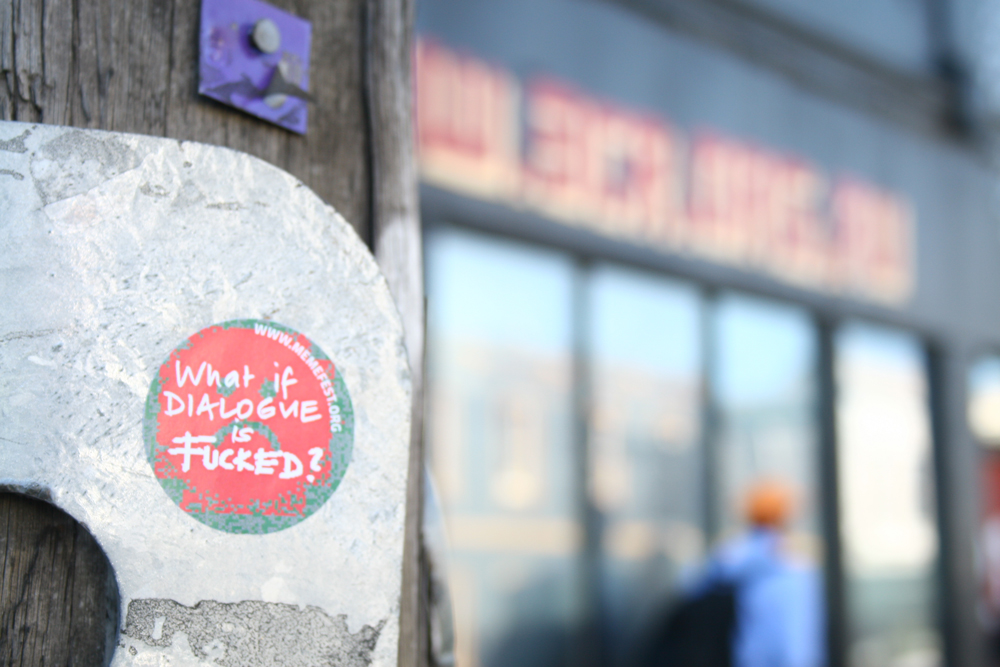
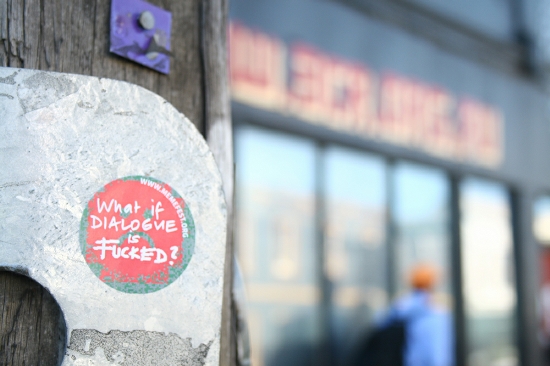
The inaugural international Memefest/Swinburne Extradisciplinary Symposium/ Workshop/Intervention was held from November 18-25th and focused on Memefest’s 2014 theme - Radical Intimacies: Dialogue in our Times, curated by Dr Oliver Vodeb and Alana Hunt. It was a continuation of the global Memefest festival Friendly competition on the same theme and was connected to the Memefest/Swinburne Award for Imaginative Critical Intervention. The purpose of this focus was to research current perspectives on dialogue in times of growing uncertainty and environmental degradation and to work on productive solutions through innovative and interdisciplinary approaches connecting theory and practice, pedagogy and research.
Approximately 100 participants attended the three-day Symposium. Thirty-two leading experts from the fields of Communication Design, Media and Communications, Games and Art presented their work. They included speakers from Europe, Canada, North America, South America and Australia.
Speakers included the four recipients of the Memefest/ Swinburne award, members of Memefest international network, Swinburne University students and academics, and members of Aboriginal communities: The Brisbane Aboriginal Sovereign Embassy (QLD), Grandmothers Against Removal (NSW), First Nations Liberation (VIC) and other Victorian based Aboriginal networks.
Sixty invited participants attended the five-day mentored workshops which followed on from the Symposium including International guests from the Memefest network, Swinburne academics and students from Communication Design, Media and Communication, Politics, Games, Sociology and Business as well as invited students from RMIT, Federation University and the Queensland College of Art whose work ranked highly in the Memefest Friendly competition process. Members of Aboriginal networks participated through the whole time of the workshop.
More than 40 high quality communication/design/media projects were developed and designed during the workshops. These include strategies, posters, web sites, booklets/publications, videos, stickers, stencils, sound based media, a participatory educational game and a series of events as well as 70+ hours of documentary video material about the event itself.
Most of the groups working at the Memefest event continue to collaborate and are fine-tuning and expanding the projects developed at the workshops. A number of projects have already been implemented into the public space of Melbourne as well as various locations around Australia. This work will continue as projects are further expanded during 2015.
PROJECTS
Stop forced removals
Stop Forced Removals is a website that provides information and resources to support groups trying to keep Aboriginal families together. It was collectively decided that this was a time critical project. Our research showed that the practice of forced child removals in Aboriginal communities is a bigger issue now than in 1997 when the then government produced the Bringing Them Home: The ‘Stolen Children’ Report. Shocking statistics in the Productivity Commission report, Overcoming Indigenous Disadvantage – Key Indicators 2014 details a massive 436 per cent increase in “care and protection” orders on Indigenous children between 2004 – 2013. Overwhelmingly, children on such orders are living away from their parents in “out of home care”. While members of GMARacknowledge that, due to the effects of poverty and disadvantage, children may need to be removed from their primary home, they also believe that such decisions must directly be made under the guidance of Aboriginal community groups and elders. This website was promoted to Aboriginal communities and activists by GMAR at the National Protest against ongoing Stolen Generations held on February 13, 2015 at Parliament House, Canberra.
Whisper Campaign
The Whisper Campaign and website are focussed on the issue of child removal. We named this website Maayali, which means whisper in the Gomeroi language. Whispering in Aboriginal culture is an intimate gesture used to heal and alleviate pain.
Aunty Hazel, a workshop participant and one of the co-founders of GMAR, spoke to us about her personal experiences of child removal. These broken families, she said, are allowed very scarce supervised contact. Parents and grandparents are forced to whisper to their children when they are saying we love you, we care for you, so that the workers from community services that supervise these intimate reunions cannot hear. The workers don’t approve of these expressions of love and care from parents and grandparents, as they do not want to encourage children to want to go home to their real families. It is an incredibly powerful story.
We also see ‘the whisper’ as a medium, as tactical communication, as the opposite to the dominant way of communicating in the public sphere, which is often more about screaming. Whispering is a communicative act, quiet and many times hidden, but whispering, because of its human intimacy, has immense power.
The project will use specially curated sound files taken from an interview with Aunty Hazel, as well as posters and videos developed at the workshops, and make these available as remix media. These highly potent communication designs/media will be available for remix and the wider creative community invited to use them in their artwork. Sound samples can be used in songs, radio programs, live performances, and the visuals can be used in VJ performances, video and graphic design work. In this way, our communication will become part of the gift economy, both as a tactic and a medium for distribution of our messages. Remixed samples will be exhibited on the web site, special events in collaboration with the wider Melbourne creative communities and art institutions are also planned. The web site is supported by a special poster campaign promoting Whisper, while raising awareness about the issue of child removal.
This is a first of its kind project using the commons and socially responsive communication/design in order to raise awareness, spark dialogue and initiate participatory creative processes.
The project is at the moment in furhter development and members of this workshop group are working on it.
Posters
All together thirty-five posters were developed conceptually and designed at the event. Using a variety of communication design approaches, ranging from humorously pop to more politically oriented and informational, the posters aim to raise awareness, educate, encourage debate and raise questions. Many seek to reframe Aboriginal iconography in the Australian urban landscape in order to do this. The posters are being continuously implemented in public spaces in Melbourne, Brisbane, Sydney, Warmun, Canberra and other places. Here is a small selection of these.
Decolonise your mind game
Decolonise Your Mind was framed within the genre of critical games studies, which performs and examines gaming and game-play as a strategic and exploratory intervention into social, cultural and political issues and imperatives.
When we were introducing prospective players to the game, we prefaced it with the following carefully considered principles that concisely drew together instructions for how to critically engage with the politics of decolonisation while playing a role in which you do not play to win, but unknowingly play to lose. And to lose everything.
Decolonise Your Mind is a critical game. It is not about winning or losing. It is a prompt for participants to re-think, to reconnect, rebuild and respond. Decolonise Your Mind is made for a non-Indigenous audience and aims to create dialogue through listening to voices that are not being heard.
Country/Decolonization/Family/Law
In contemporary Australia the words ‘country’, ‘decolonisation’, ‘family’ and ‘law’ are loaded with meanings that differ greatly from person to person across this nation’s Aboriginal and migrant communities.
We developed a collaborative project that explored this diversity while also challenging people’s (and our own) understanding of the terms through a four-part publication and street poster series.
Mapping Stories
The stories of those affected by past, current and potentially ongoing forced removal of children from Aboriginal families and communities are incredibly important. This project will archive the personal stories on a website and visually map them contextually in relation to geographical locations. The connection between the intimate stories and space/place/time will show the hidden dimensions of the politics that are driving the removals. The visualisation will allow the Grandmothers Against Removal to collect, with permission, stories as evidence for their political and practical purposes. The web-based archive is supported by promotional posters.
The project is at the moment in furhter development and members of this workshop group are working on it.
Aunty Hazel’s Testimony
Grandmothers Against Removals (GMAR) was formed by NSW regional Gunnedah grandmothers led by Aunty Hazel Collins. Aunty Hazel’s stories of her own and her family’s experiences with forced child removal were one of the main catalysts for many of the projects that groups undertook during the workshops. But the telling of those stories, which she has to repeat often in order to continue to raise awareness for GMAR and its concerns, is a harrowing experience for her. Reliving these stories is difficult and emotional and exhausting.
We created a one hour film of her testimony to both create a permanent record of her stories and for GMAR to use so that they can continue to share them with the community without having to put Aunty Hazel through this experience over and over again. It is powerful, intimate document of the personal trauma that forced removals have on individuals and families.
Teach-in and BBQ
One of the aims of the symposium and workshop was to bring members of Aboriginal groups such as BASE and GMAR from across Australia to Melbourne and to connect those groups to each other and the broader Melbourne community. GMAR has now extended its network to the Northern Territory and Perth and is particularly keen to establish networks in Melbourne and Adelaide.
Melbourne is home to many well-known Aboriginal activists. Dr Gary Foley, Robert Thorpe, Vivian Malo, Dr Tony Birch, Richard Frankland and Jack Charles are just some of the people that are based in and around Melbourne. Melbourne also has a reputation for being one of Australia’s most multicultural and least racist cities. It seems ironic then that many Melbournians have had very little, or any, personal contact with local Aboriginal people. One group was invited to take a tour of Smith Street in Collingwood with Viv Malo, an Aboriginal broadcaster from 3CR radio.
The tour commenced at 3CR’s Smith Street studios and continued up to an area known as The Rocks located at the corner of Stanley Street and Smith Street where the group was able to meet with and learn from the local Aboriginal people that use the Rocks as a meeting place. While there, we learned about the history of this space and the people connected to it from Uncle Joe Boy. He also gave a lecture on the kinds of casual racism people experience in Smith Street every day. Uncle Joe Boy takes care of and looks out for the many homeless people that live in the area, many of whom are Aboriginal. He also busks with his guitar to raise money to help others and to support a local youth group. One activity that binds the group together is music and many people in this community are learning to play guitar. The local community centre only has two guitars that are shared between around thirty people. It was decided that our group would collaborate with the Smith Street crew to help them to raise extra funds to purchase guitars. In order to bring these people together, we held a free BBQ on the Edinburgh Gardens and donated two more guitars to the group. Local musicians Kiwatt Kennell and Murial Plum played and sang and have agreed, along with Robert Thorpe, Steven Thorpe, Kristy-Lee Horswood and Viv Malo to record a music CD that can be sold by Uncle Joe Boy to raise funds for the community. So far, two of the tracks have been recorded https://soundcloud.com/swinmc/sets/kiwat-kennell. More importantly, strong local connections have been made that can be built upon in the future.
Ongoing activities, events and evolving projects can also be viewed at Memefest website and here: https://www.facebook.com/groups/6450969543/
MEMEFEST/SWINBURNE AWARD
Curated by Lisa Gye and Dr Oliver Vodeb, the recipients of the award were invited to Melbourne to speak at the Symposium and to participate as mentors during the workshops. Their works are excellent and represent world-class contributions to the field of Socially Responsive Communication/Design and Art.
The list of winners follows below.
1. In the category Visual Communication Practice:
Bernadette McGough, Kyle Anthony Magee; (Australia) for their work Global Liberal Media Please.
Kyle Magee’s work, papering over advertisements in public places, takes the position that advertising colonises the public sphere and privatises what should be ours, and that it does so without our consent. He questions the right of commercial interests to take over what is rightly ours, democratically, and thus opens conversations about the dialogic nature of our public sphere.
Kyle’s fundamental argument for democratic engagement is strengthened in a profound way because Kyle’s practice not only intervenes in public space but does so publicly, in broad daylight. In this way he is able to create an intimate and open dialogue with bystanders, police and other media while undertaking his actions. He has spent six months in prison for what often amounts to less than one hundred dollars worth of damage. This has allowed him to also open a dialogue with the judiciary about what he is trying to do and they have, in many instances, been able to advise him on legal strategies because, despite having to punish him for his activism, they also sympathise with what he is trying to communicate. What does this say about the Australian media landscape, and what does it say about Australian democracy? Does one need to be arrested and jailed for bringing such issues to public attention? Kyle’s interventions are intimate, articulate and very brave. His interventions are complex, sophisticated, passionate and inspirational. We have seen a lot of culture jamming from around the word but this activism is truly imaginative. In times where advertising is becoming harder and harder to "touch" as it is less and less image, but more and more data, Kyle shows the power of the embodied dialogue.
This work opens many new and old questions - one thing is sure -in a rapidly changing media landscape in which transparency and trust will be the currencies of the future, advertising will have to change.
Kyle’s work has been beautifully and elegantly captured by Bernadette McGough, Daniel Chittick, David Murphy and Jordan Brown and this video made public is an intervention in itself. A fantastic initiative
2. In the category Critical Writing:
Dr Mariano Mussi (Argentina) for his work Health and Art: a Dialogue of Provocation
Mariano Mussi’s paper questions our understandings of the ontological underpinnings of art and health and asks us to question our assumptions about what we mean by these terms. If health is just an absence of disease, then what is art? What does art lack? And how can art be used to dislodge our assumptions about health? Conventional scientific thinking hinders the dialogue between art and health and the author argues that this needs to be overcome as the two are intrinsically linked. He says that “art and health are turned toward the same aperture, women’s and men’s infinite possibilities that appear on the horizon of their projects.” The award is given for the text’s daring and imaginative intervention into the relations between two powerful discourses and their strictly calibrated points of access to each other.
and Dr Jane Naylor (Australia) for her work What’s in the name? SnackArt and The Ekphrastic agency
Jane Naylor’s work also calls into question the ontological status of art and questions art’s function as cultural capital. Her research has led her to a “near total rejection of the artworld, and a substitution of the very foundation of dialogue, words, with [her] own terminology and neologism, *Rt.” This manifests in her works SnackArt and The Ekphrastic Agency, which she writes about eloquently in her Memefest submission. Her work is a proposition for a possible working alternative. In the age of "the end of history",her approach is timely, relevant and subversive. What could be more imaginative than that?
3. In the category Beyond ... :
Ren Fah and Anna Mitterer (Austria) for their work Lamentopos
It is hard to imagine something more intimate than mourning. But emotions as fundamental as those that we experience when we lose someone to whom we are close are difficult to articulate publicly. While emotions are the currency of emotional/cognitive capitalism, public expression of strong emotions such as pain and grief are mostly only welcome when mediated through spectacular media.
Lamentopos makes the profoundly intimate public while creating strong poetic situations which in turn amplify the loneliness of the act of mourning. A very beautiful, strong, poetic and intimate work!
Once more our warmest congratulations to all authors!!
Have a look at the festival outlines here: http://www.memefest.org/en/competition/intro/
Well one more thing, its a big one- there is of course the Memefest main Friendly competition, with results here:
http://www.memefest.org/en/memeblog/2014/11/memefest--friendly-competition-results/
Keep The Fire Burning!
ps: The first international Swinburne Memefest Extradisciplinary Symposium/ Workshop/Intervention was held in the Factory of the Future at Swinburne University and was sponsored by the office of the Pro Vice-Chancellor (Student Advancement), the Faculty of Health, Arts and Design, the Schools of Design and Arts, Humanities and Social Sciences and the Departments of Media and Communications and Education and Social Sciences.
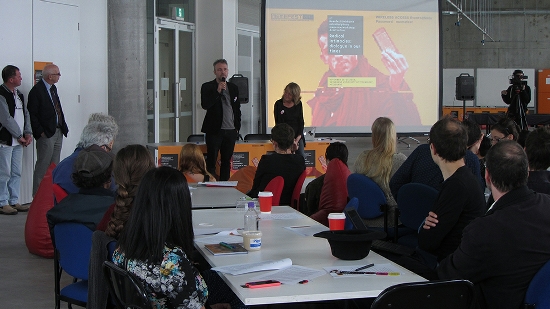

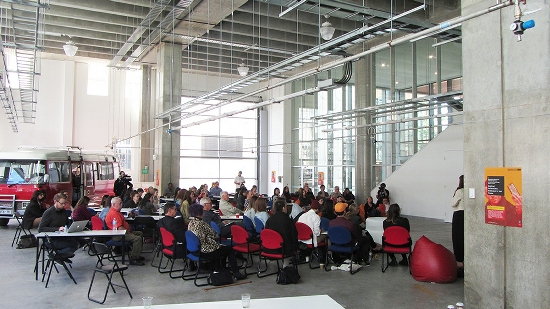
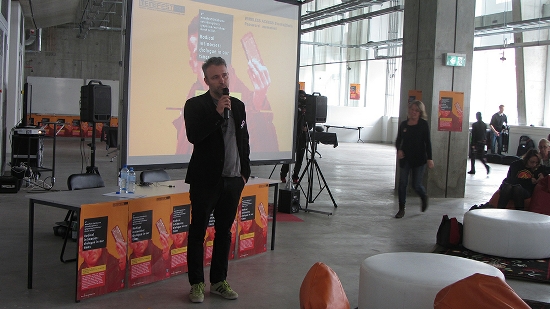
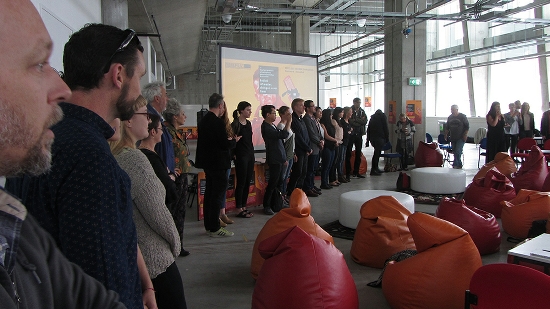
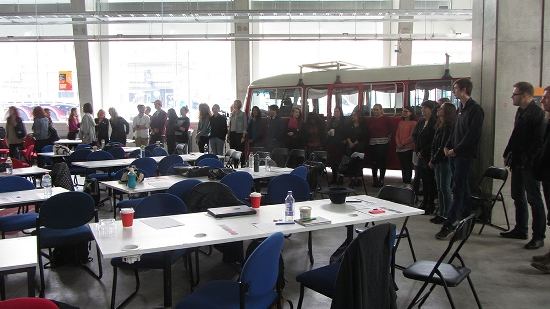
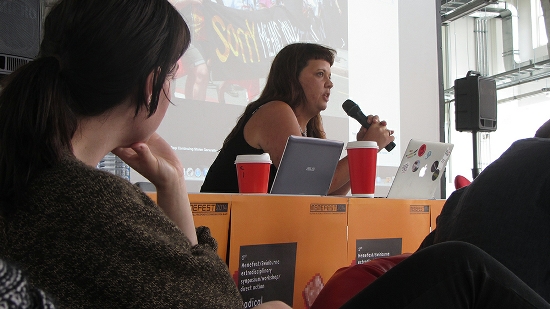



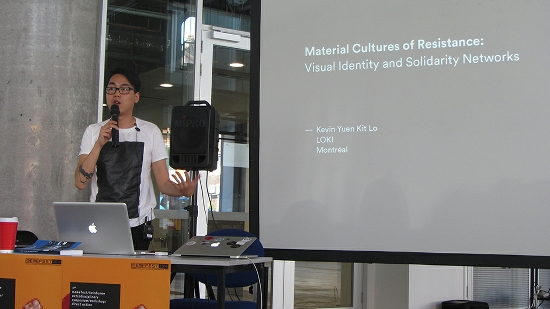
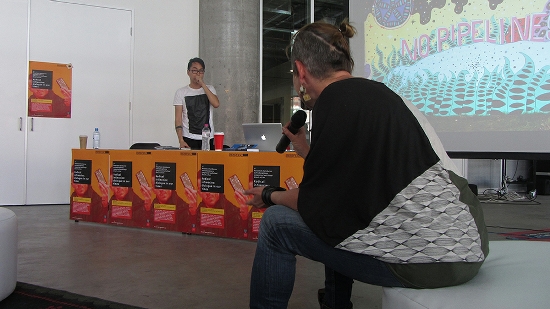
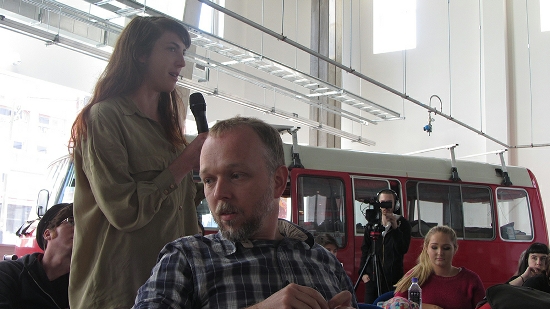
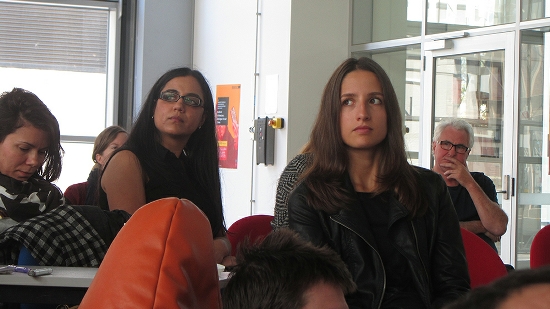
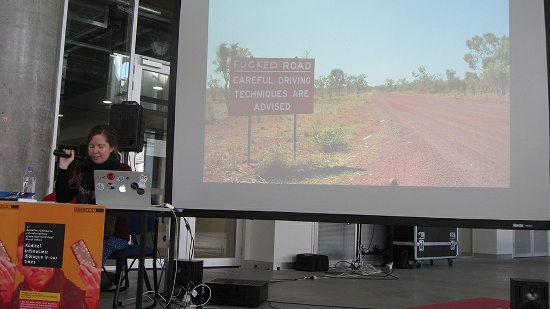

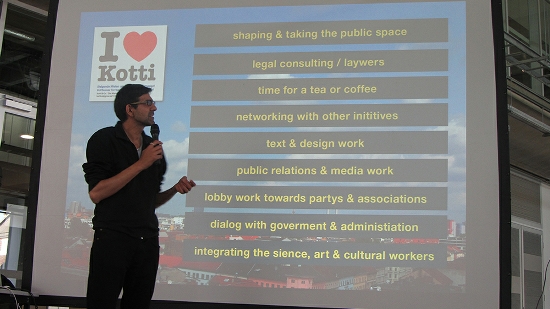
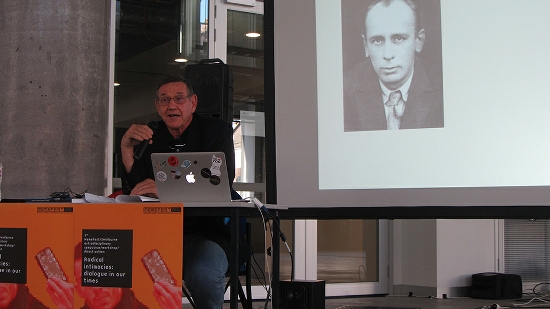


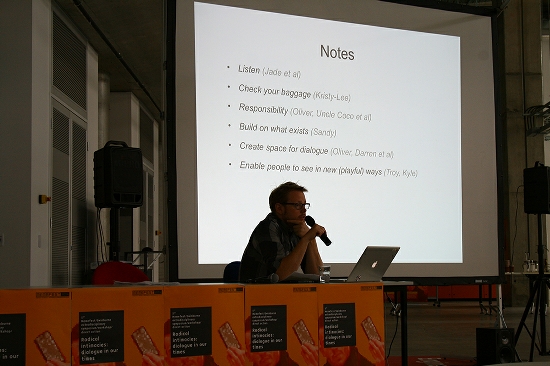
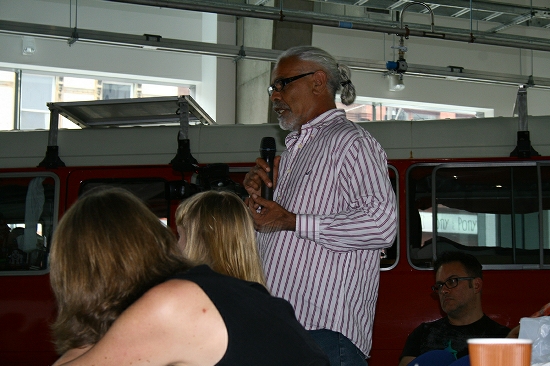
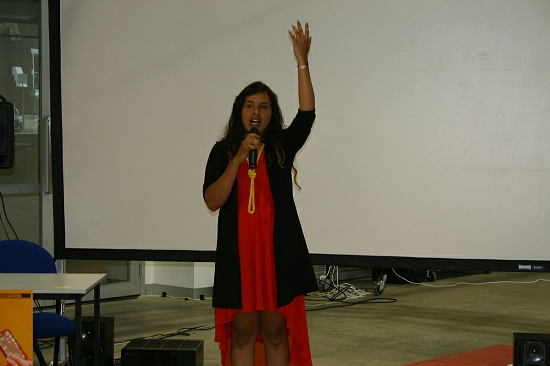
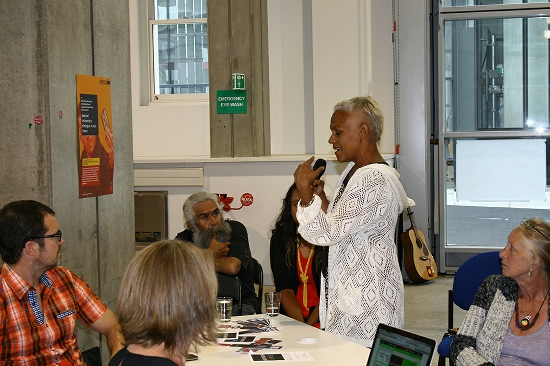
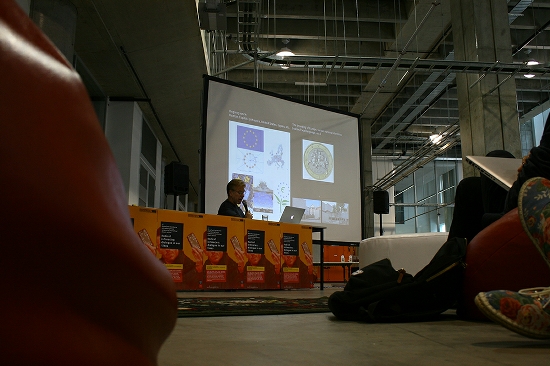

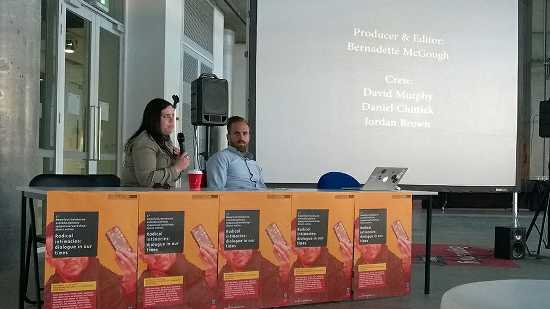

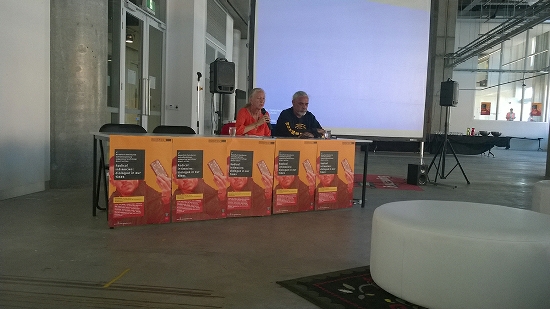

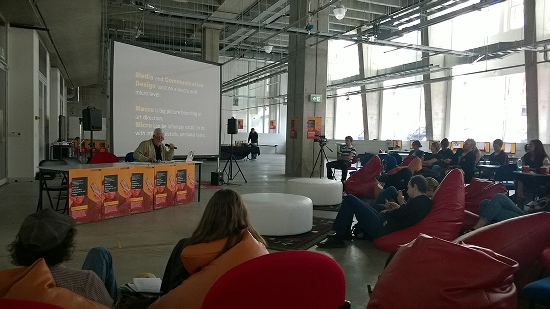

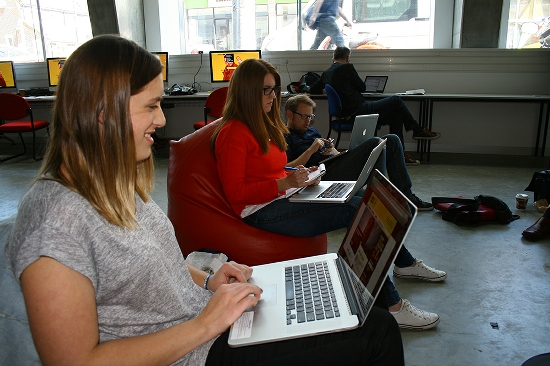
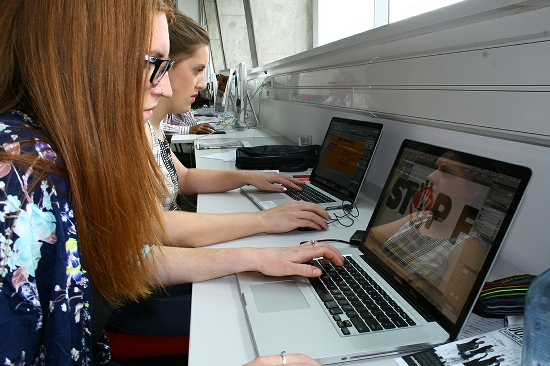

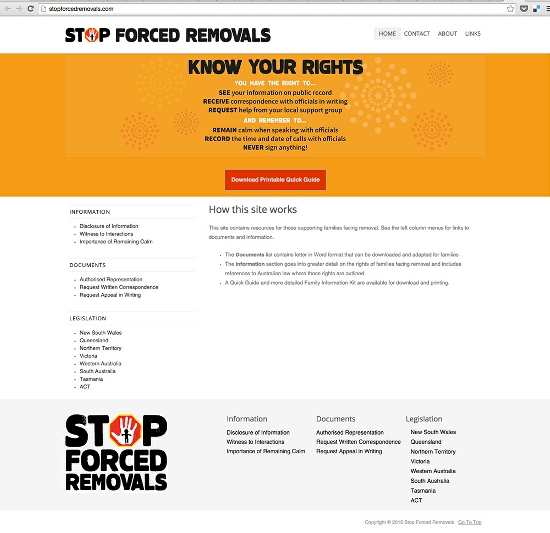
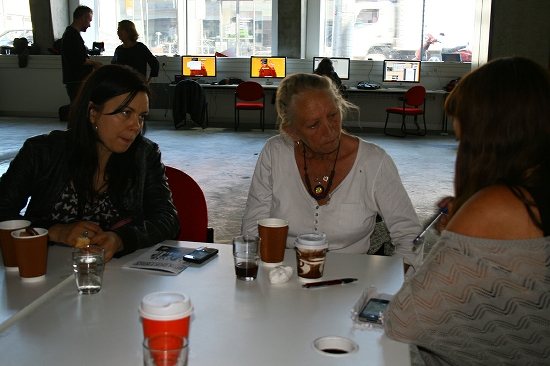
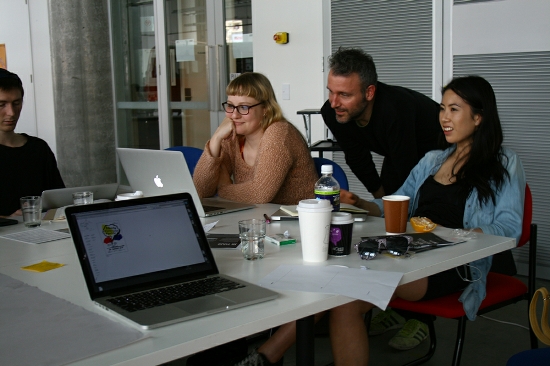
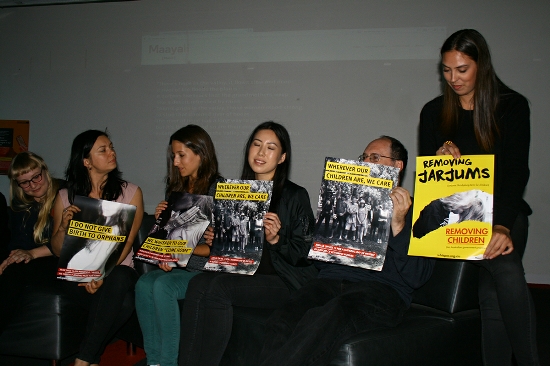
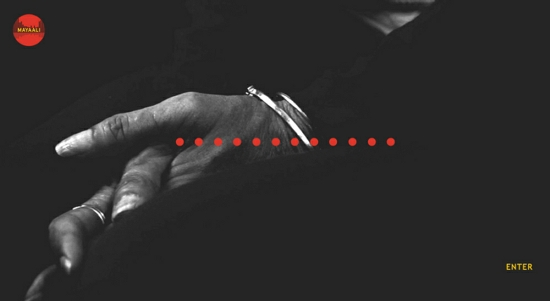

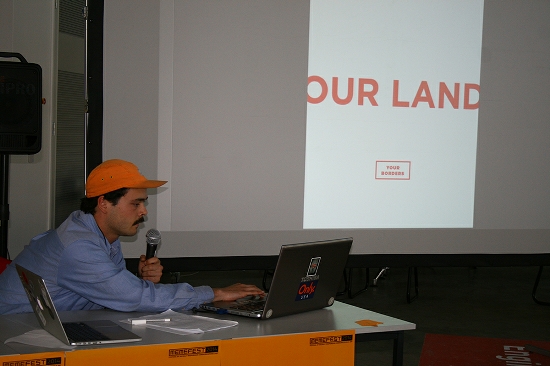

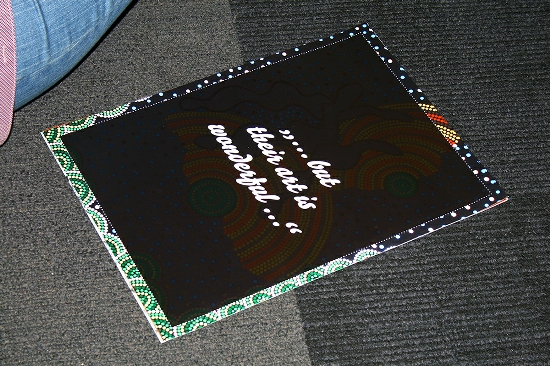

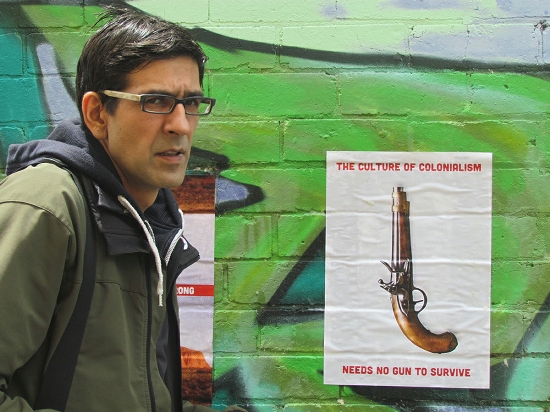
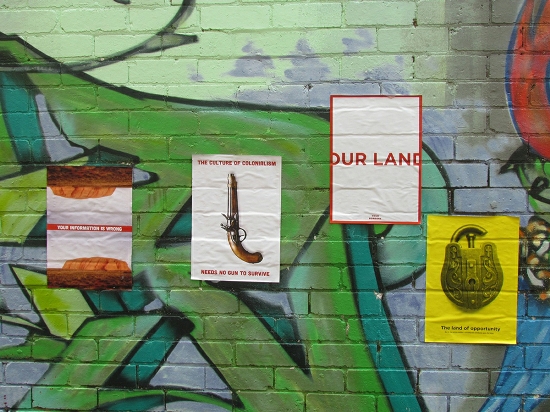
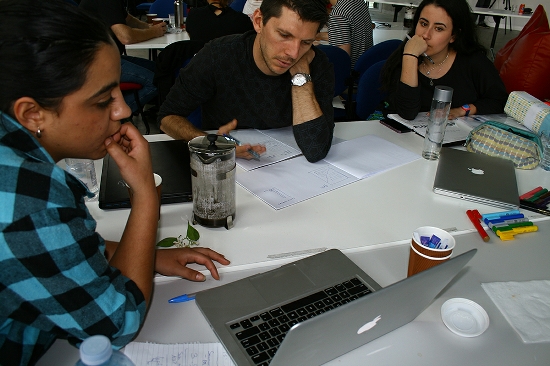
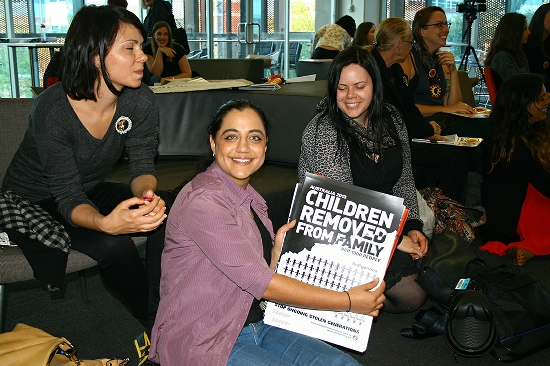
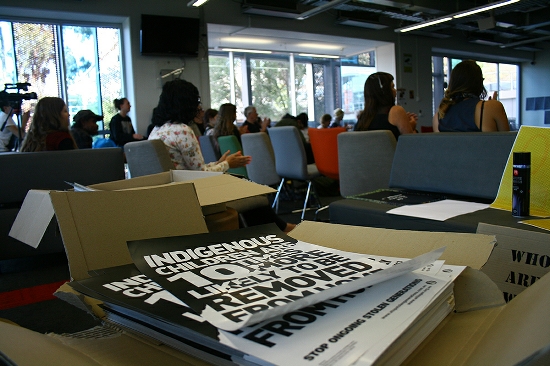
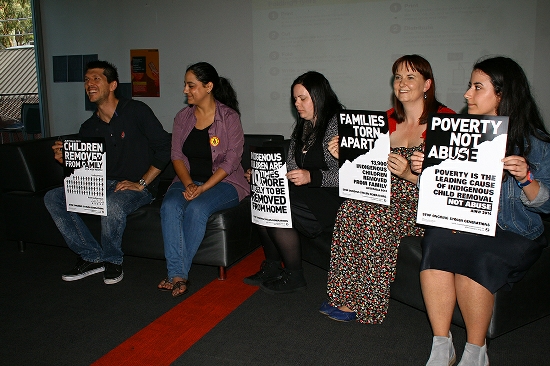
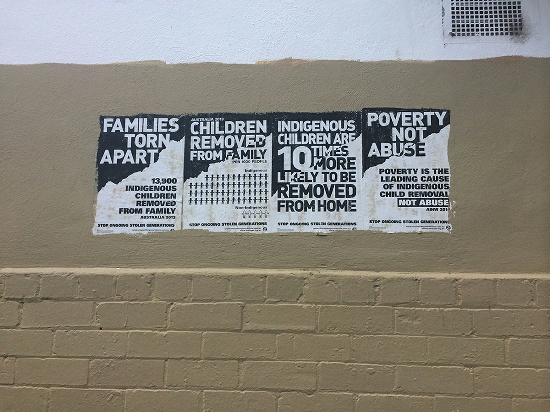
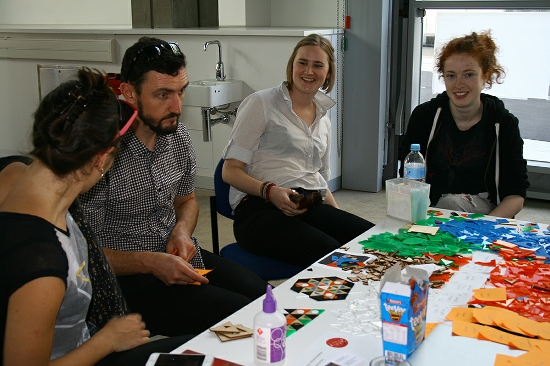


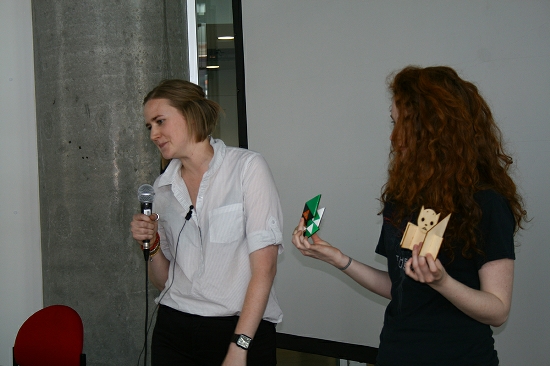
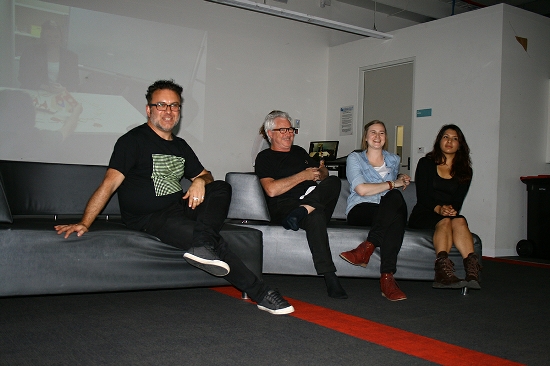
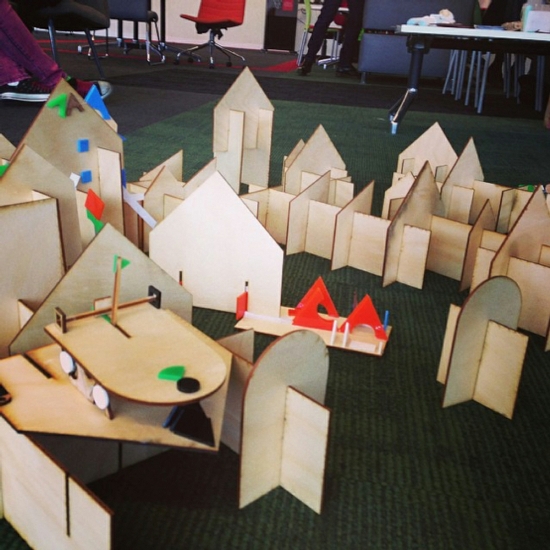
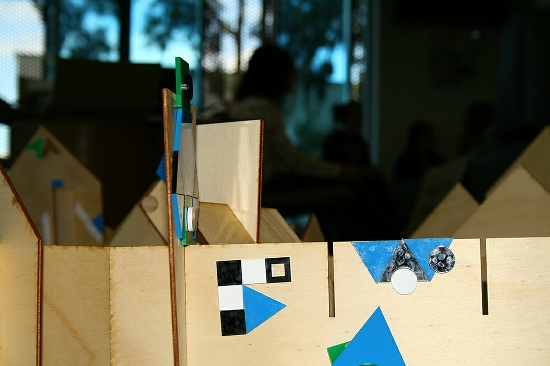
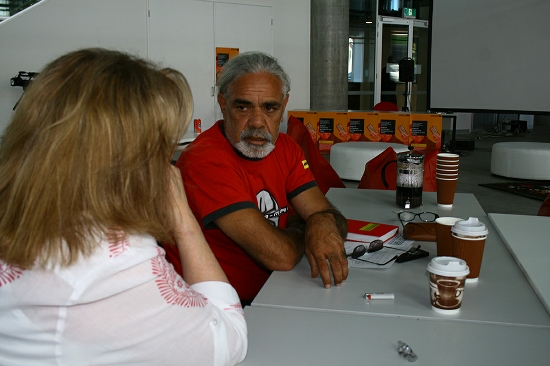
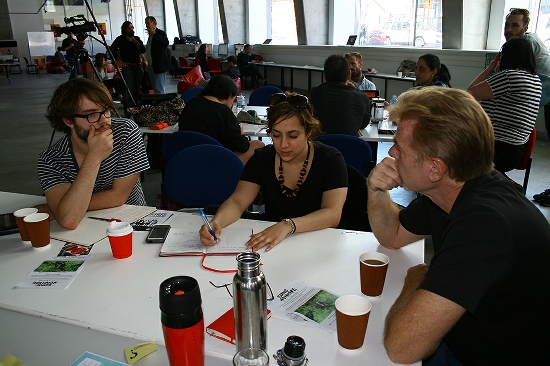

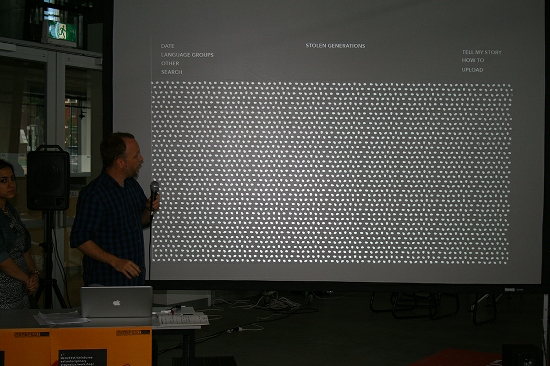

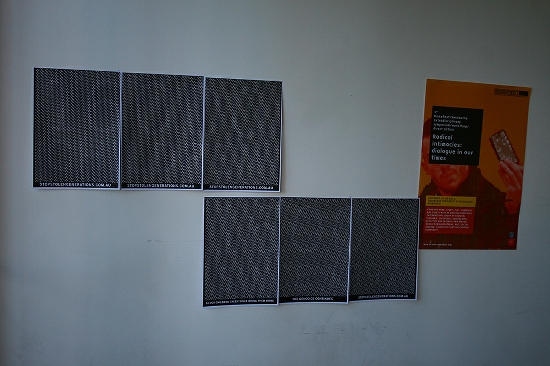
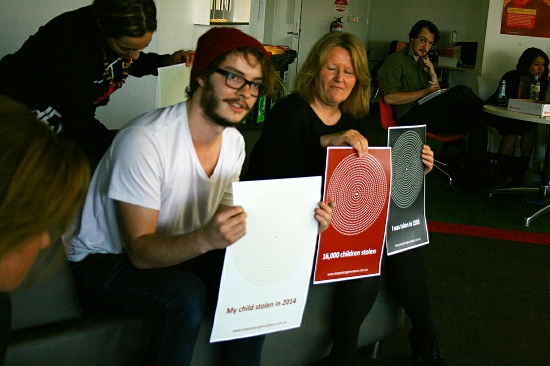

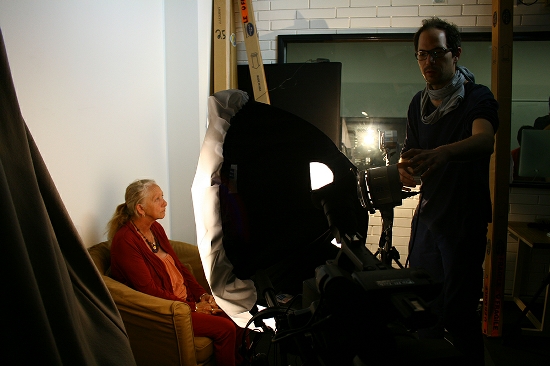

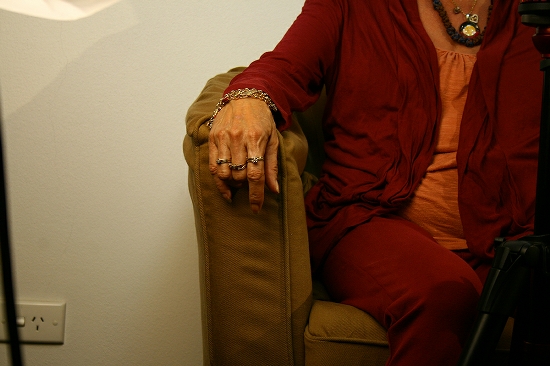
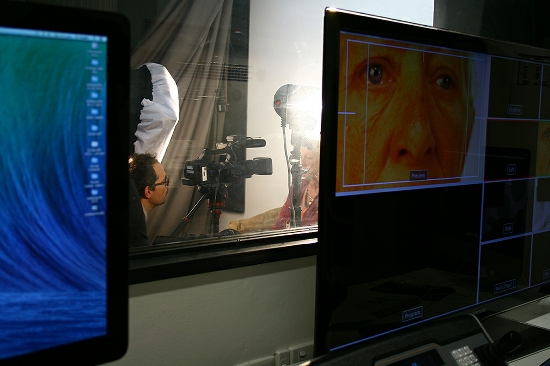

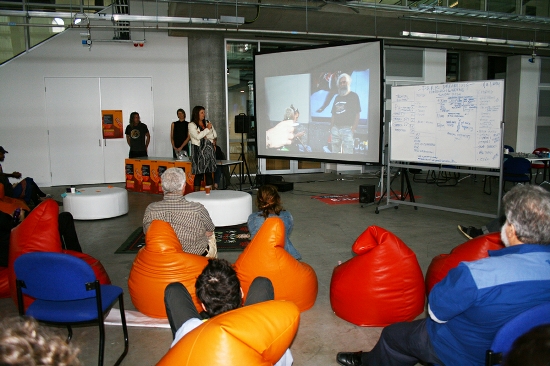
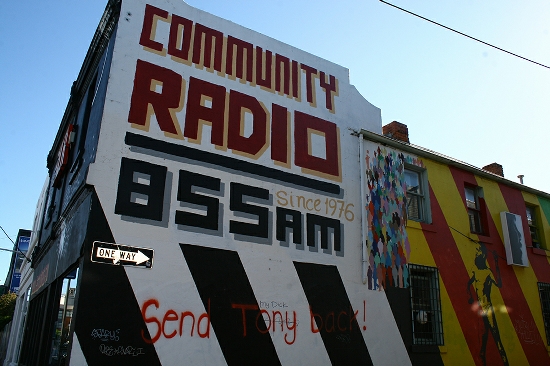
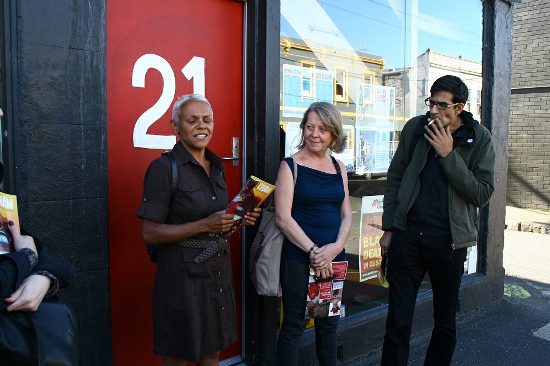

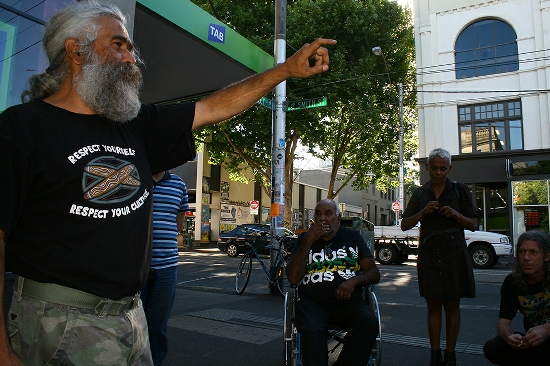

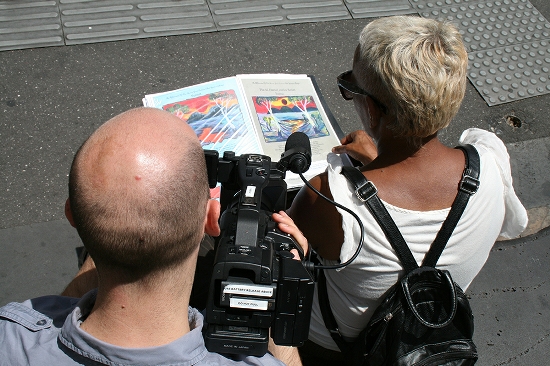




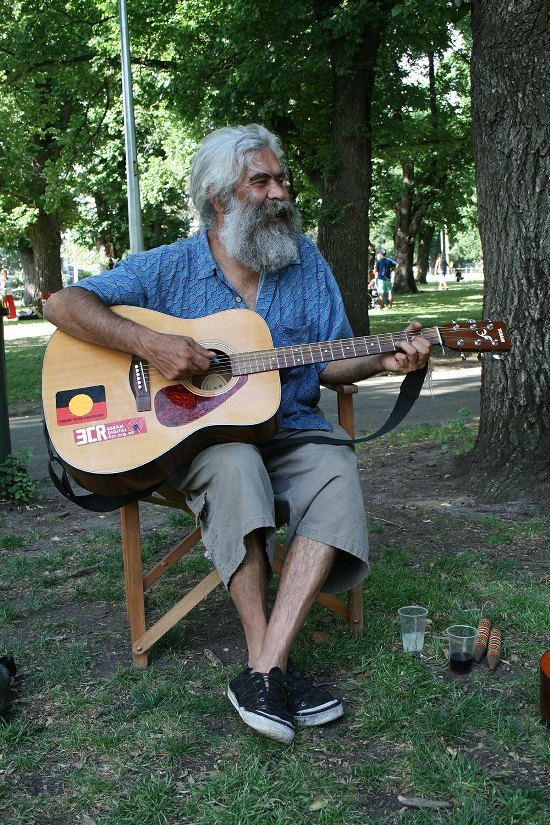


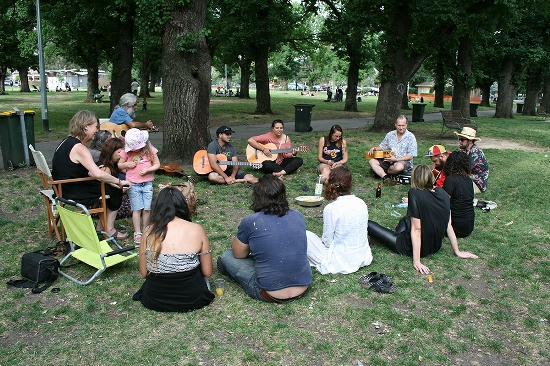
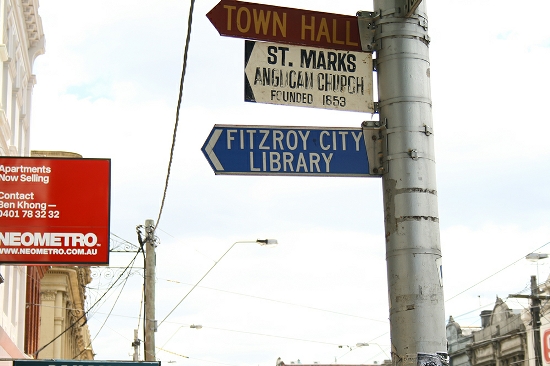

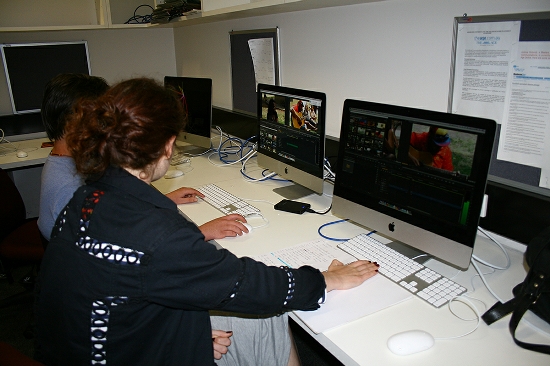


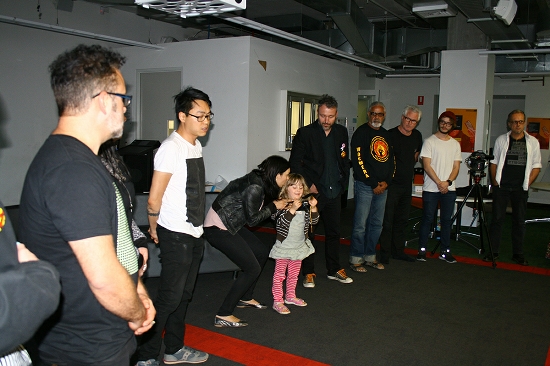
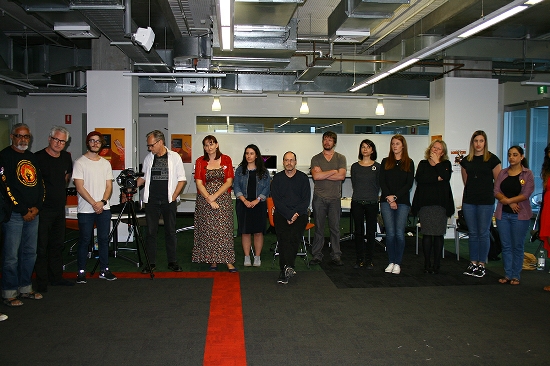
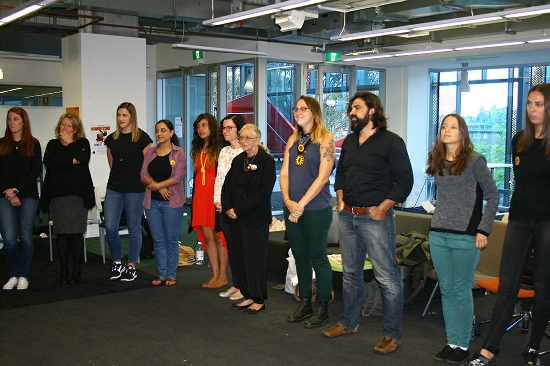
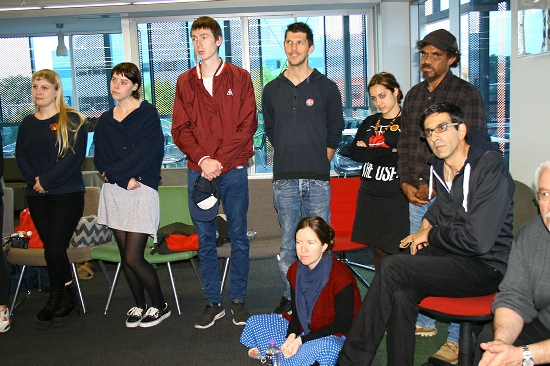

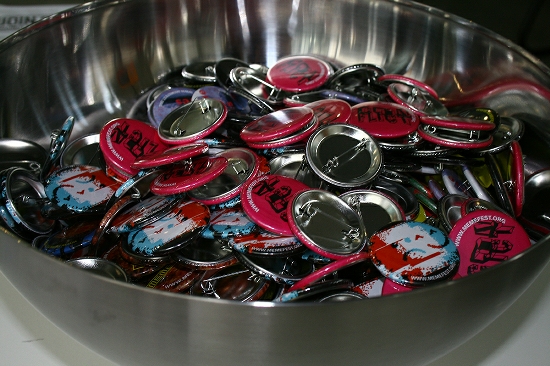
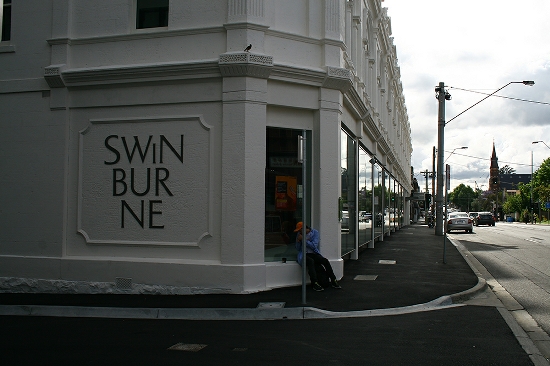

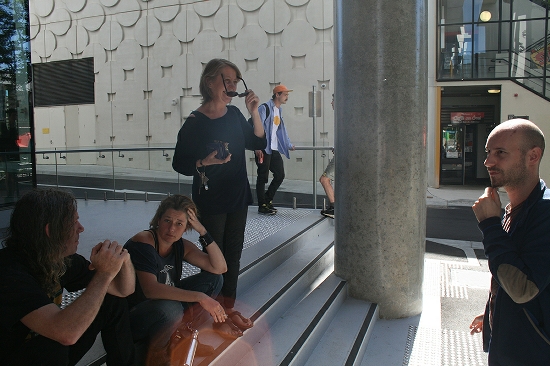
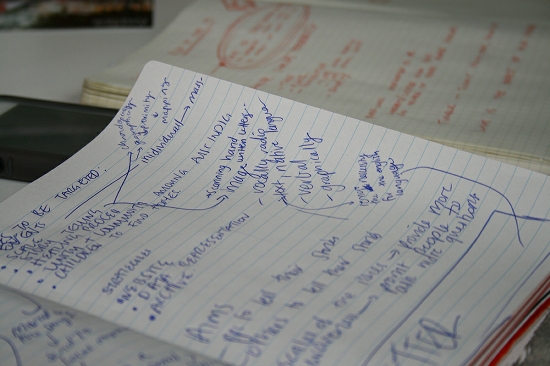
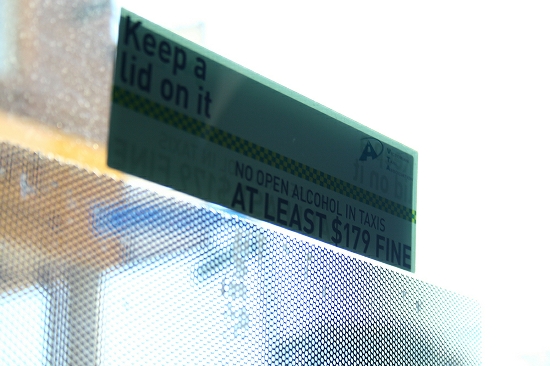
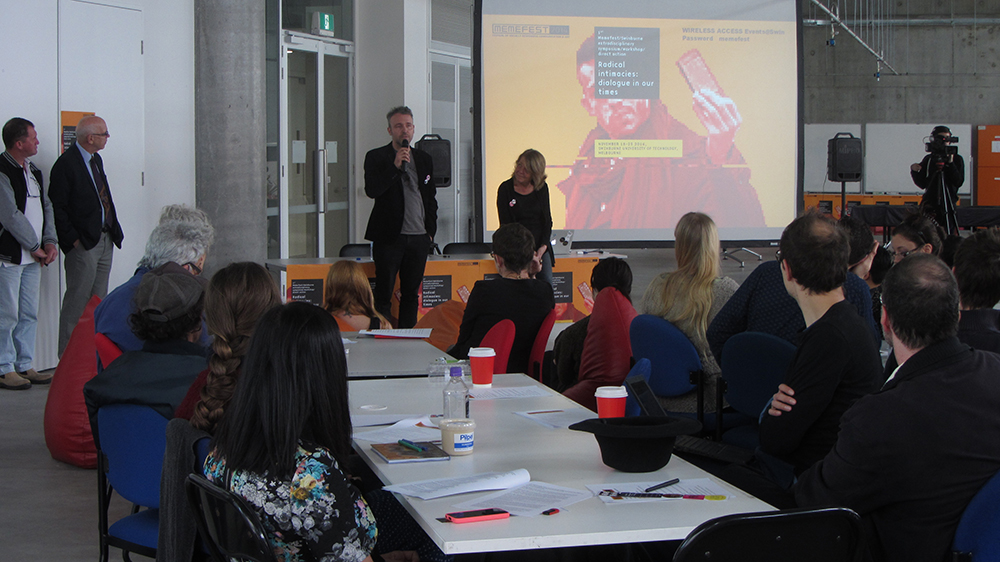
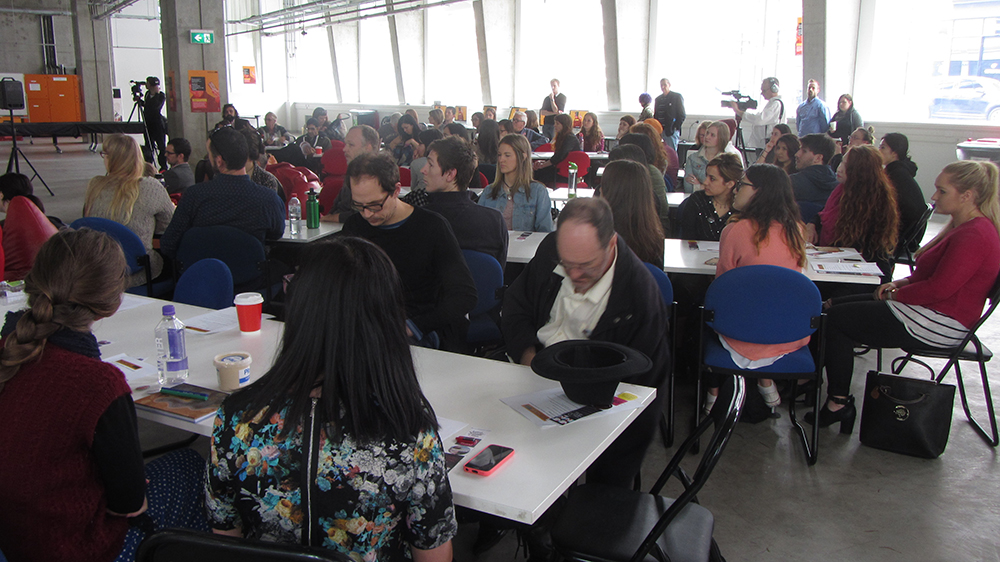
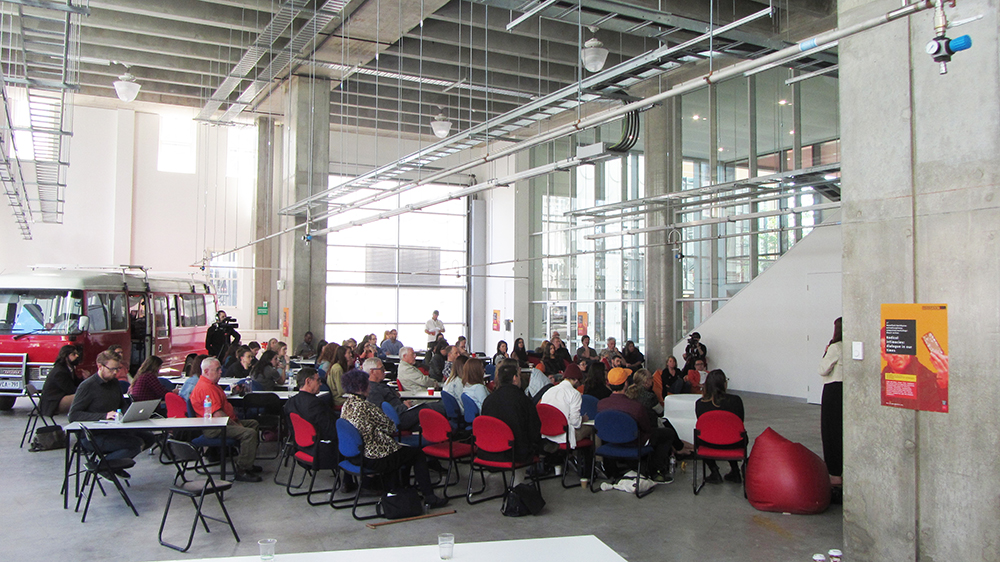
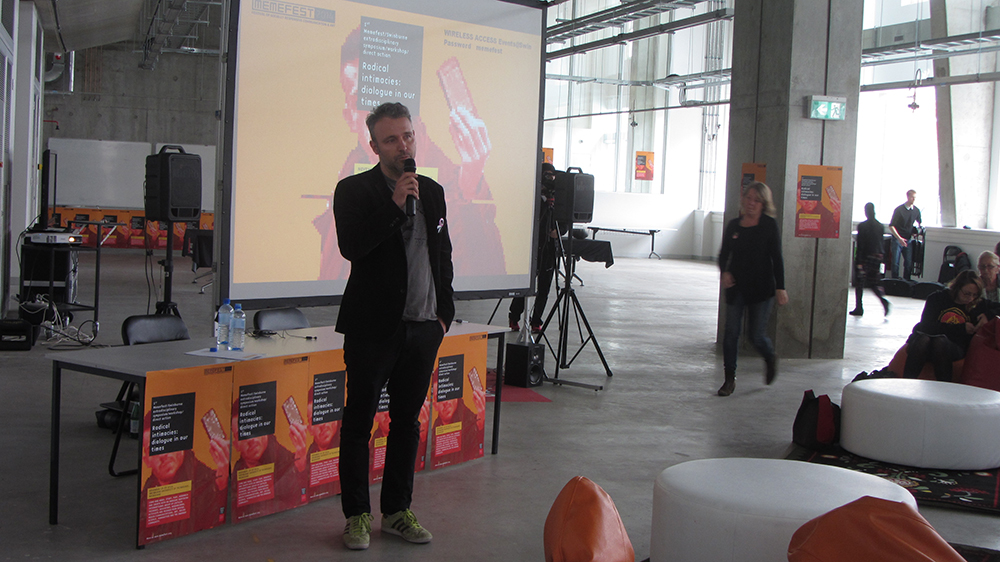
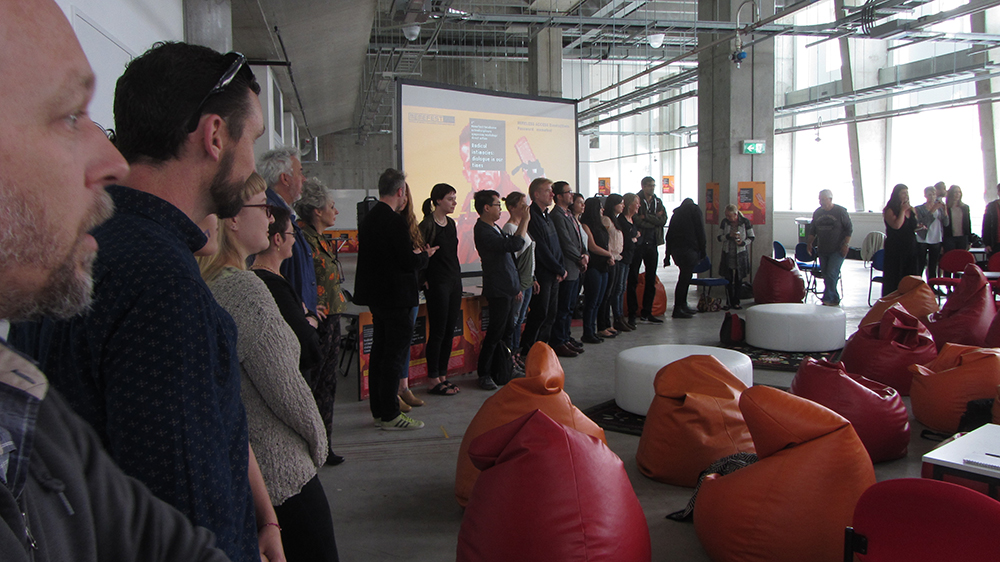
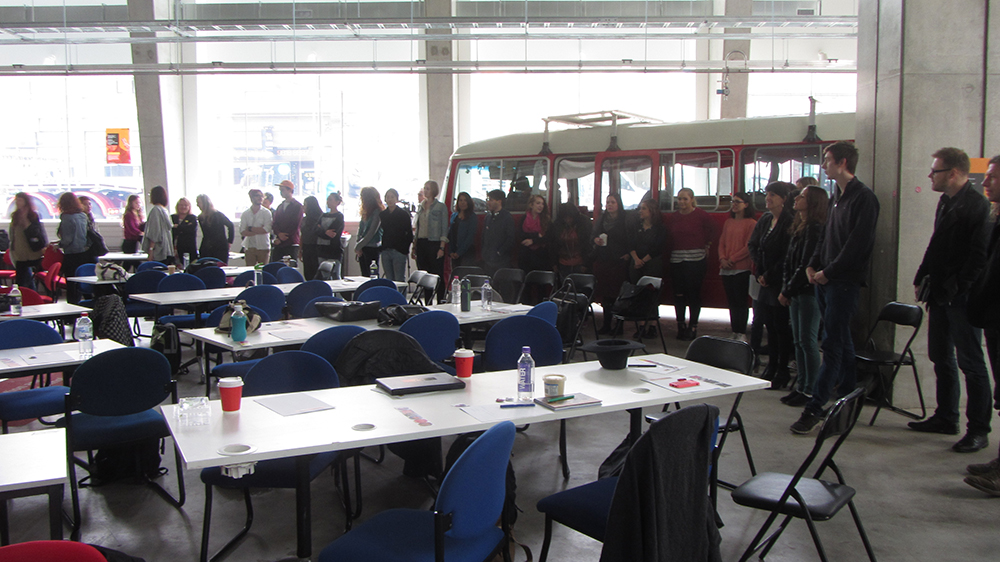

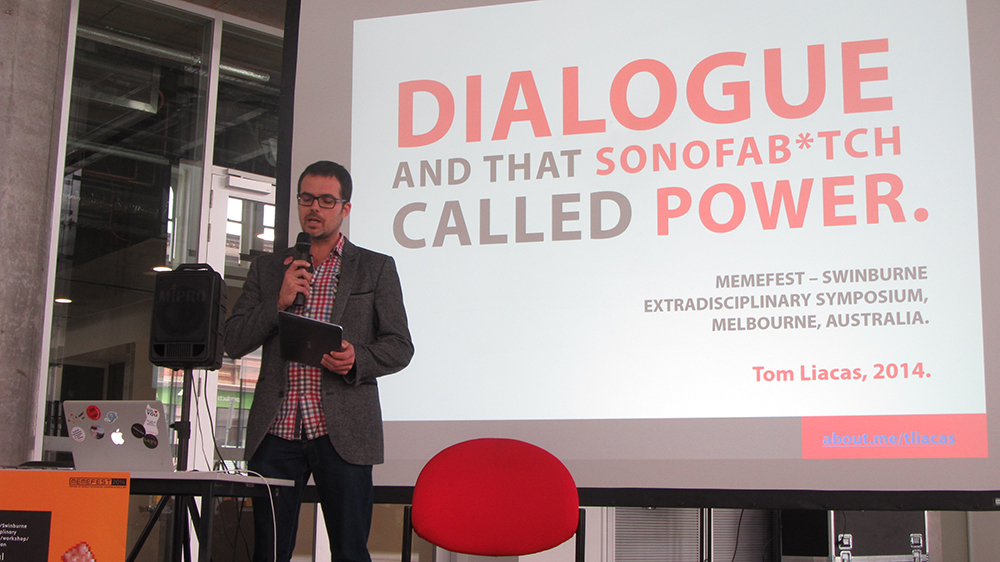


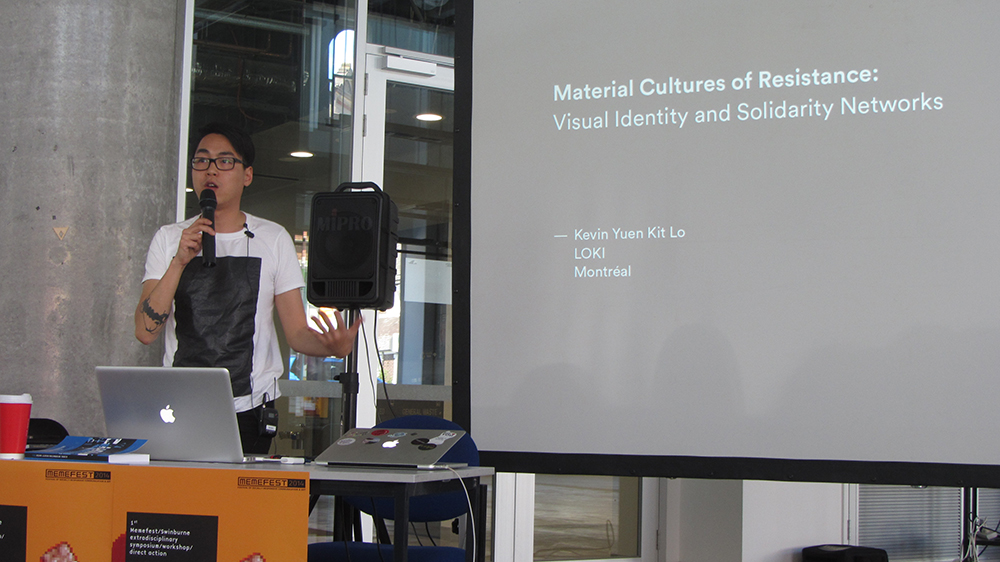

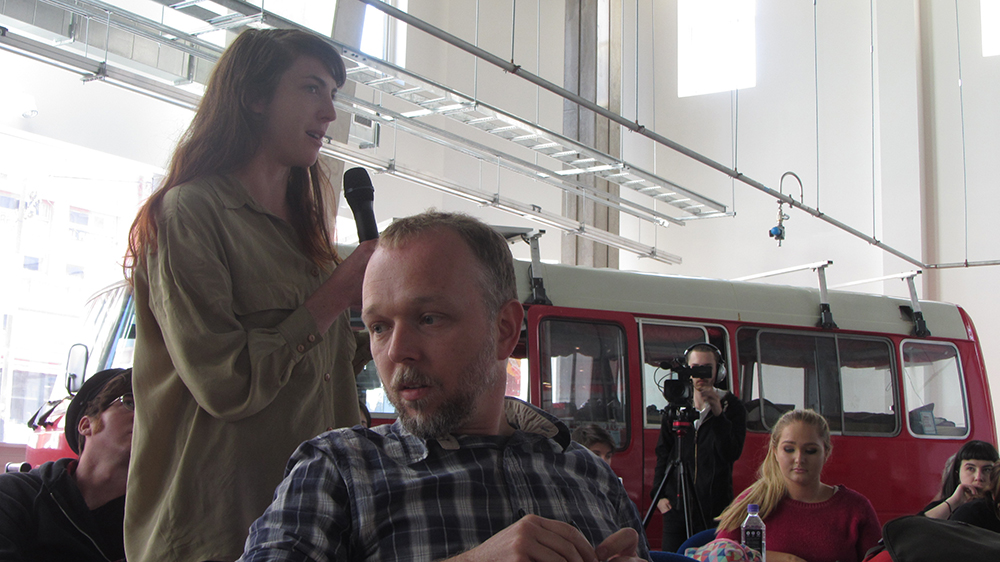
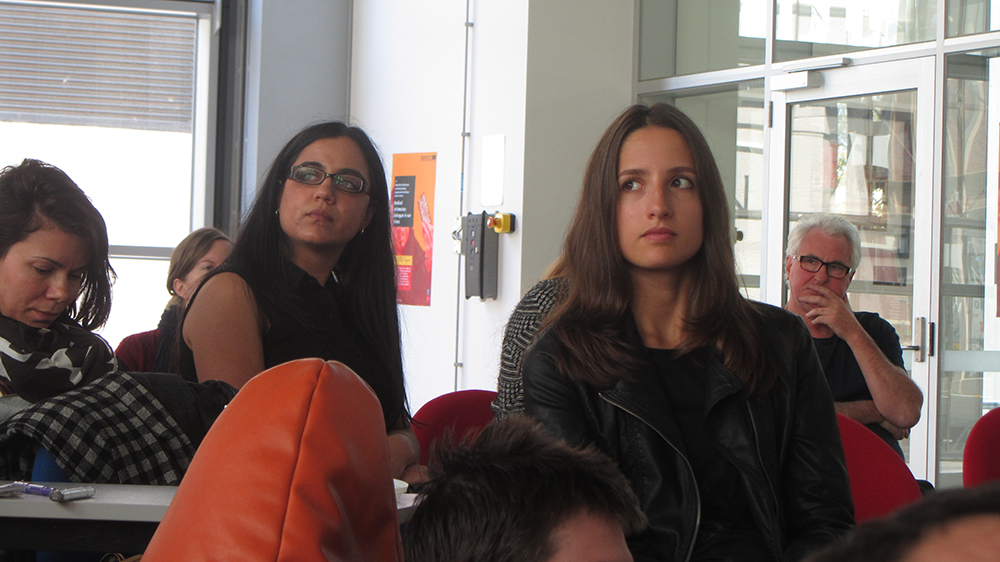
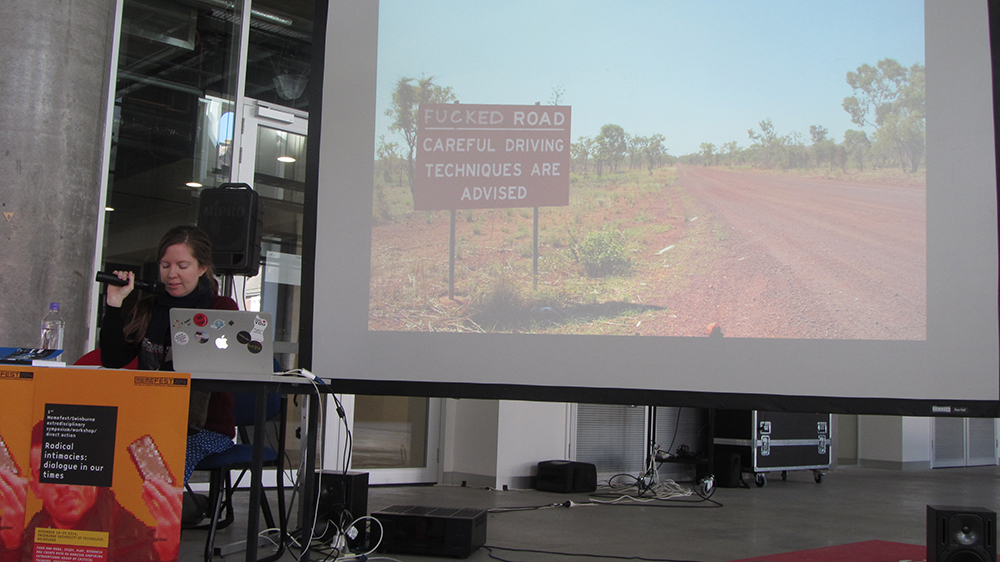

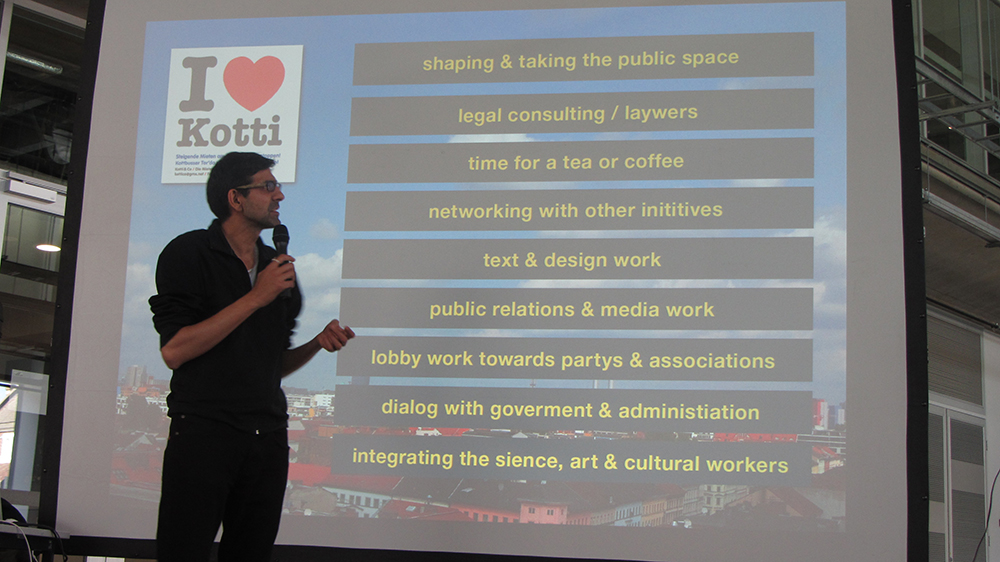

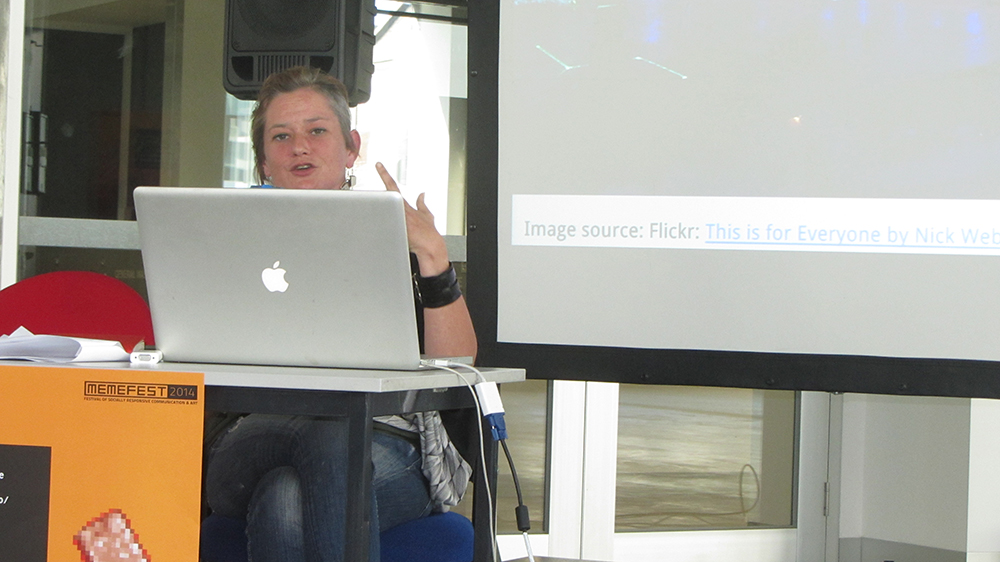
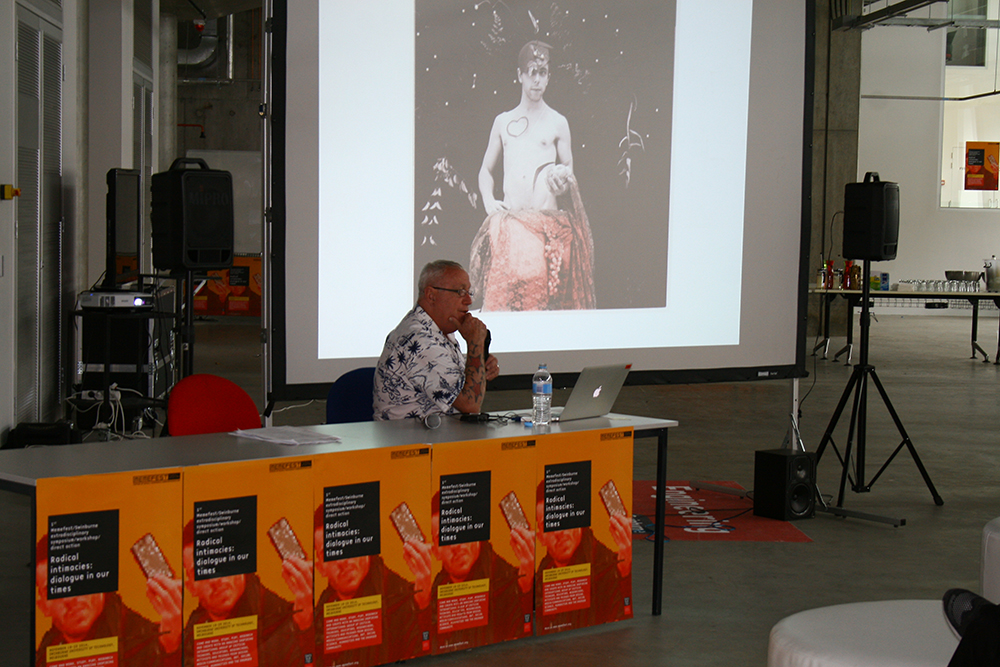
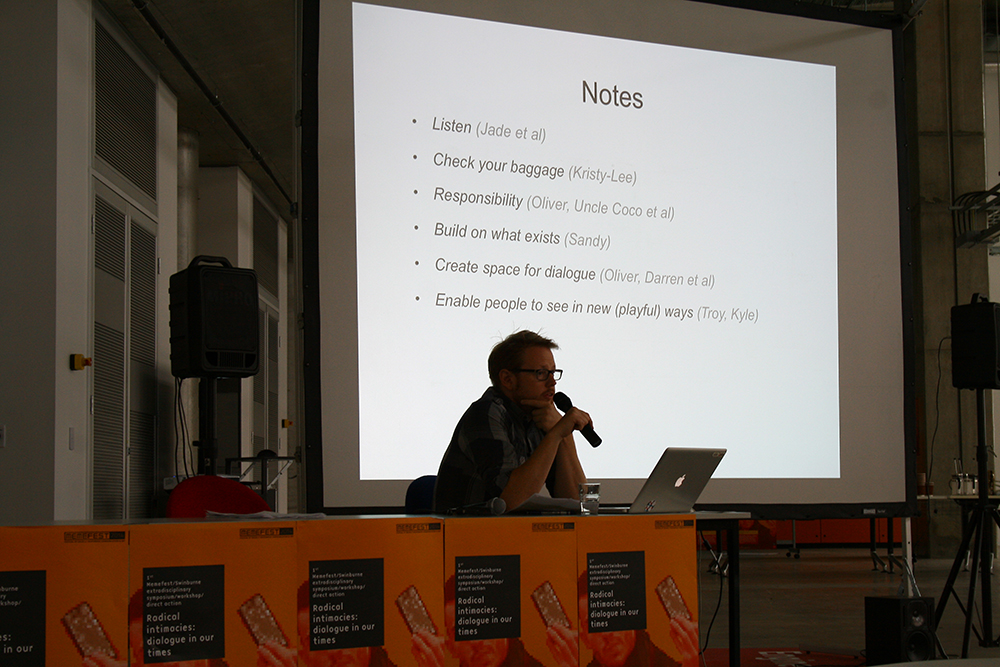

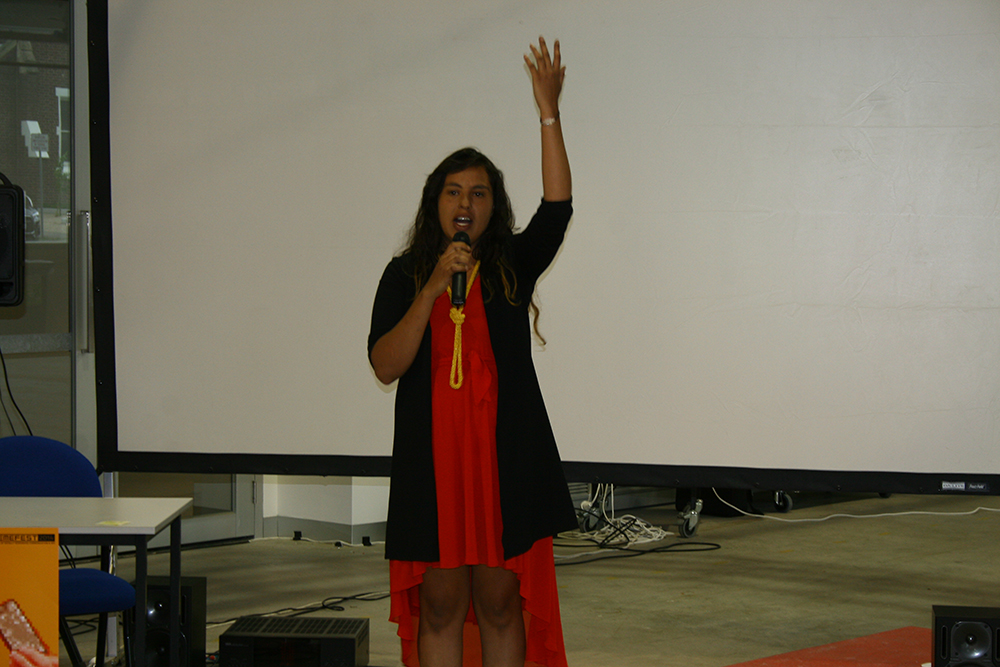
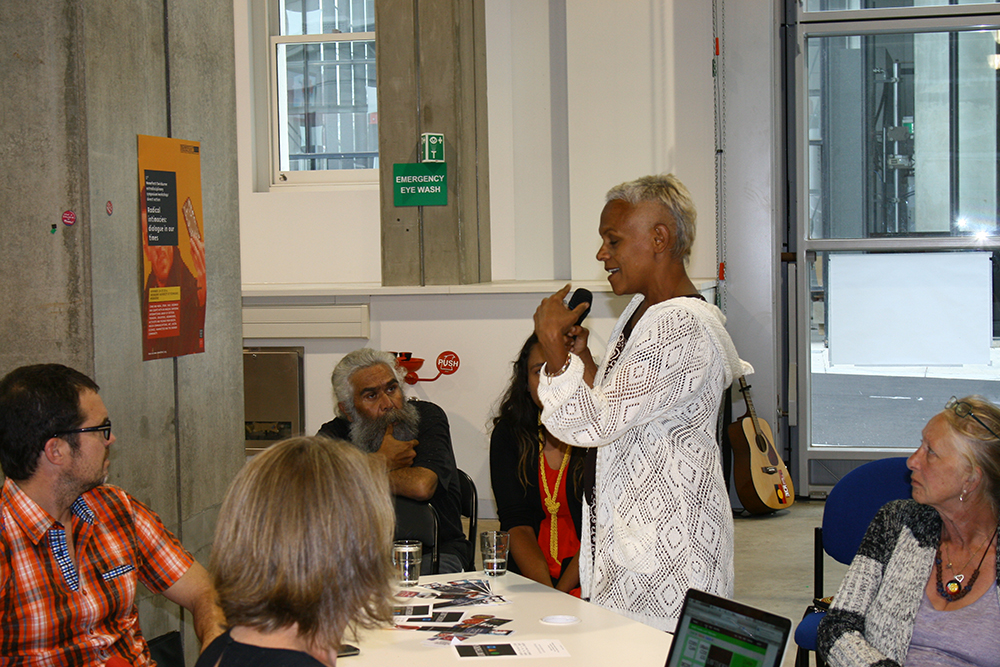
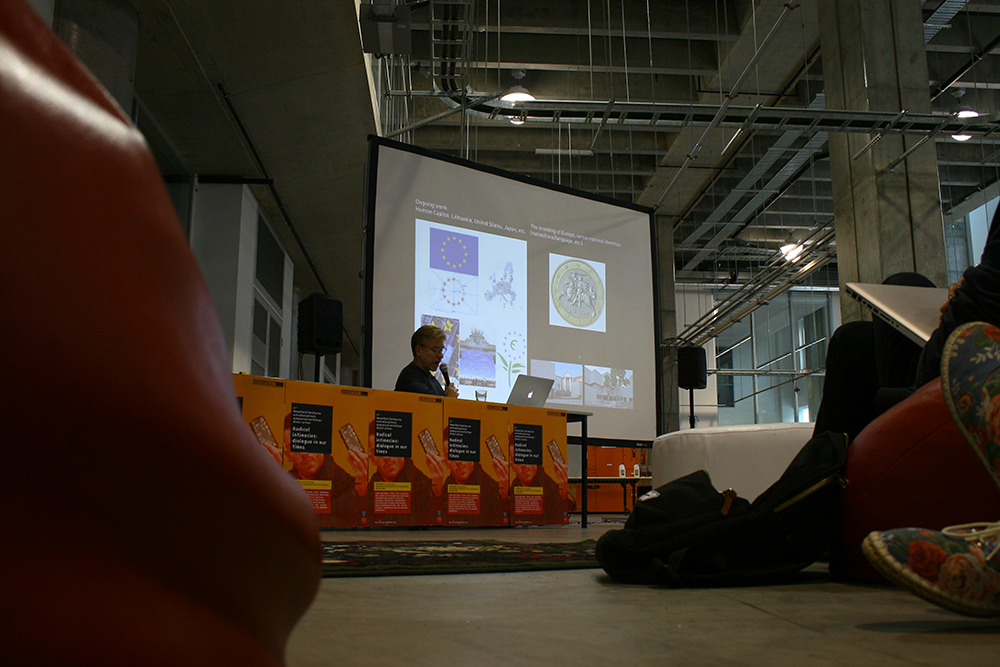
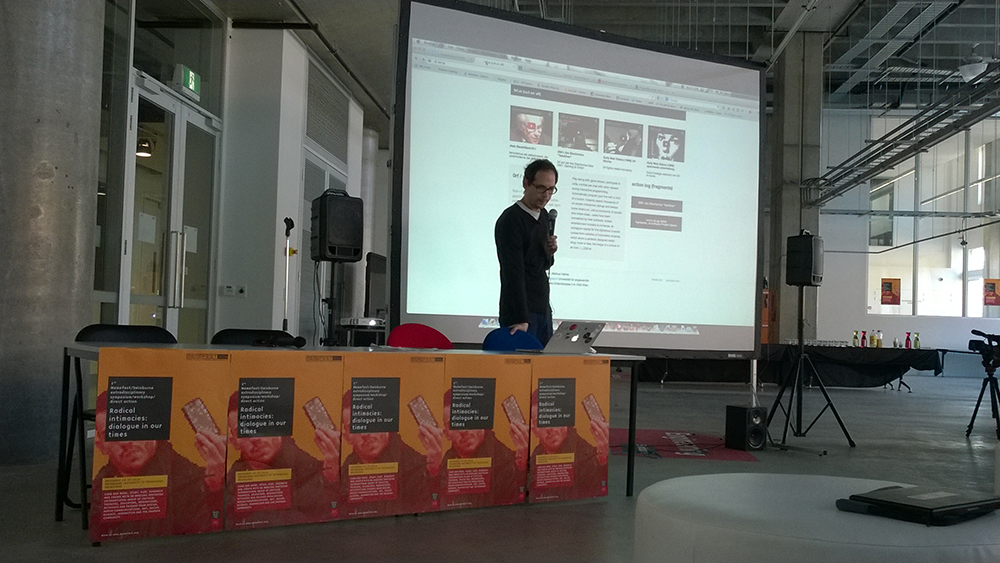
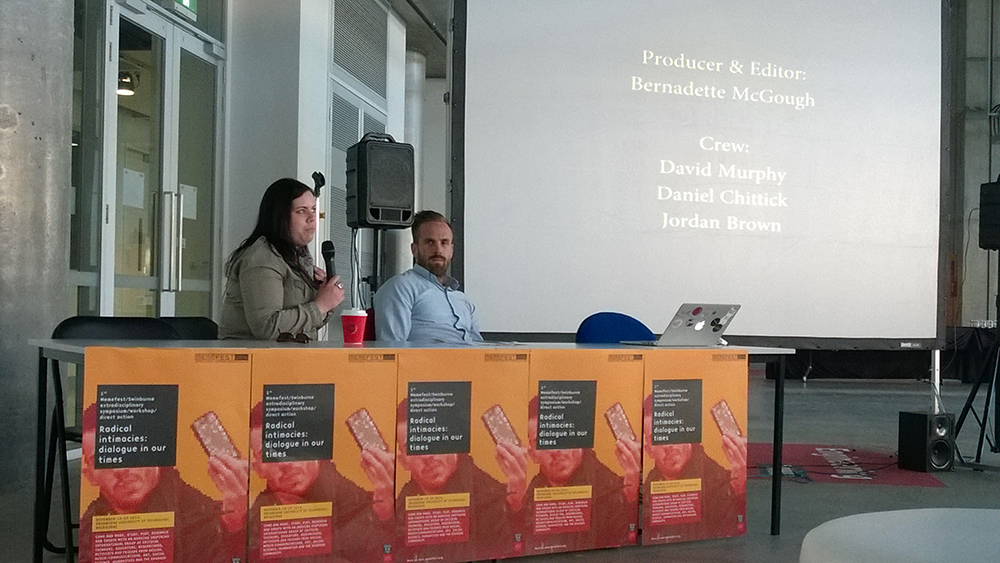
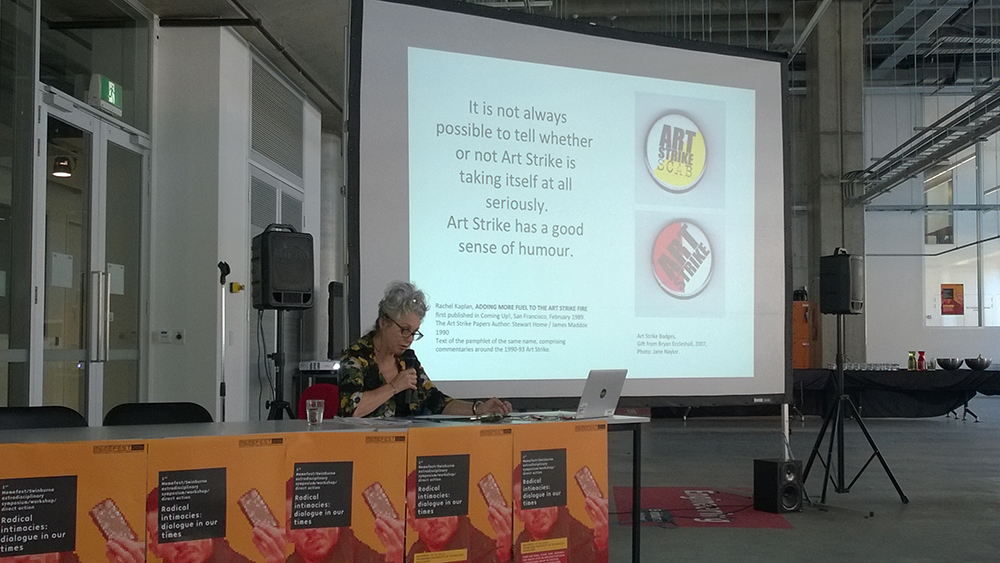
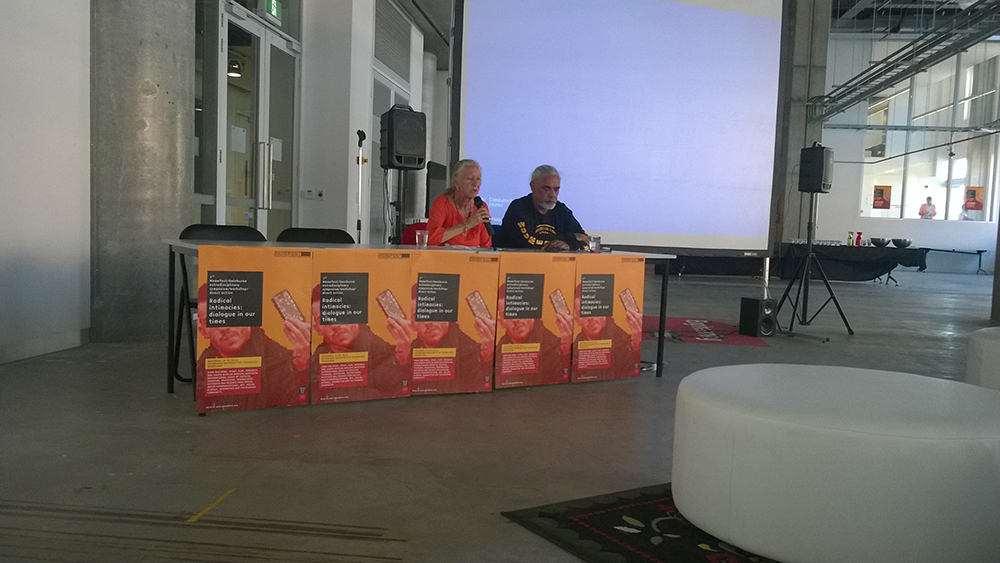
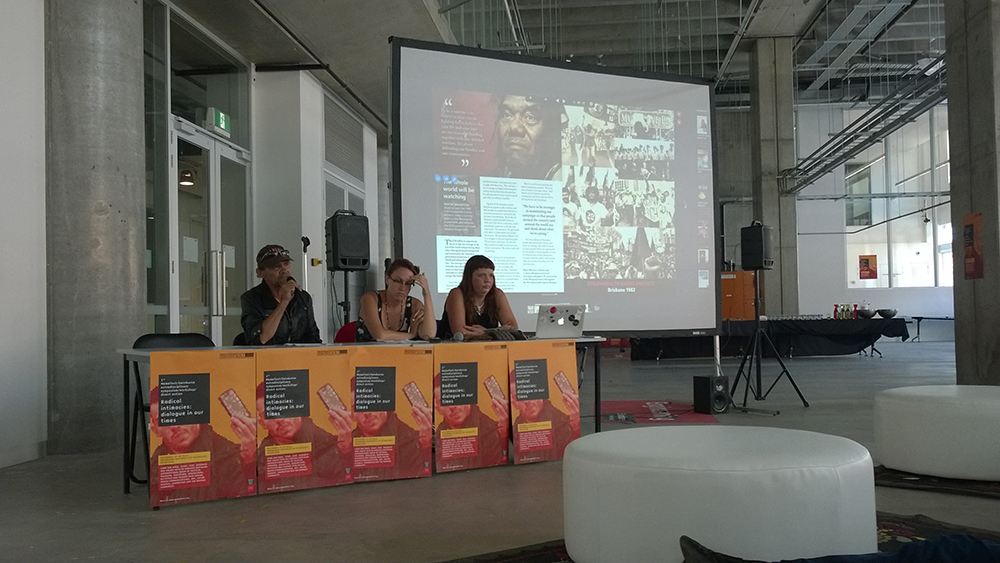
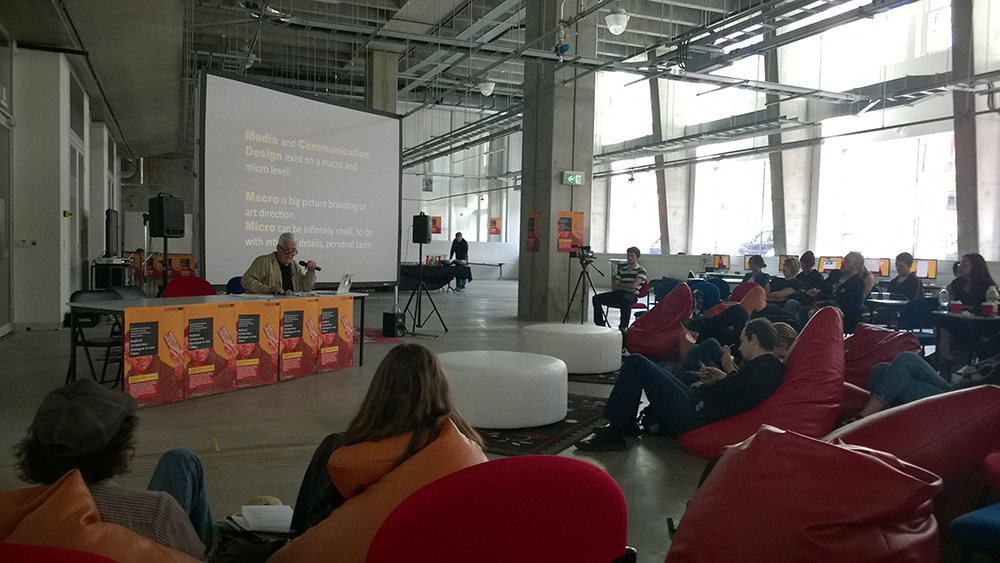
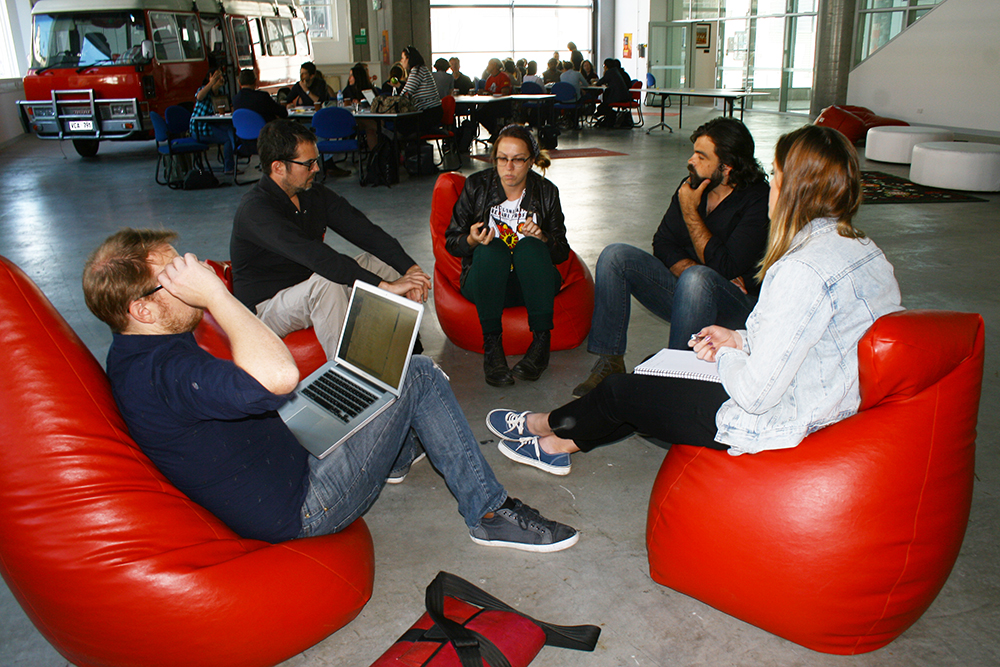
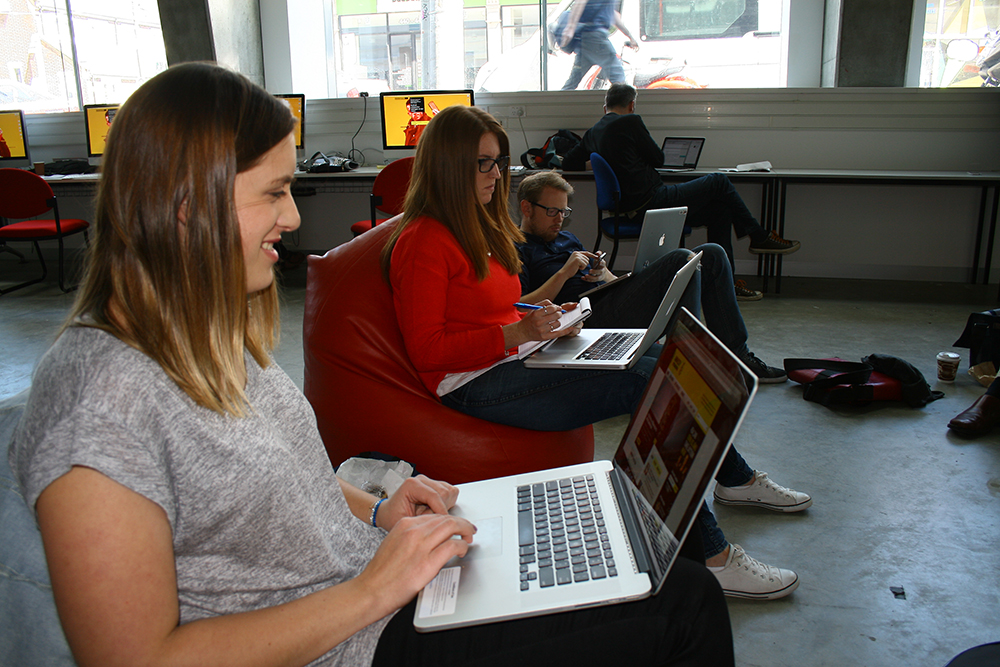
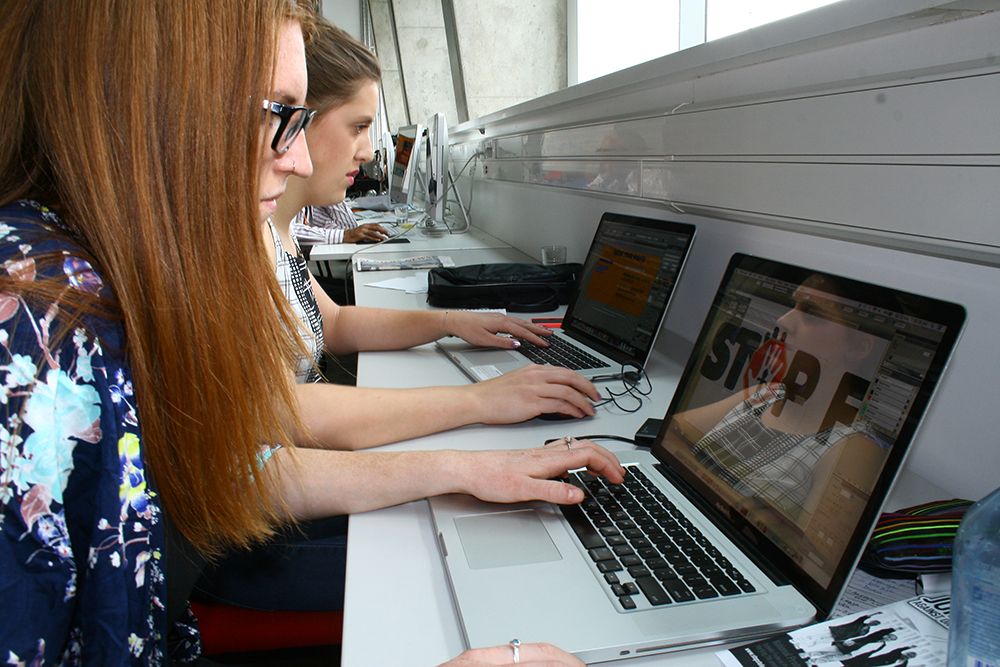
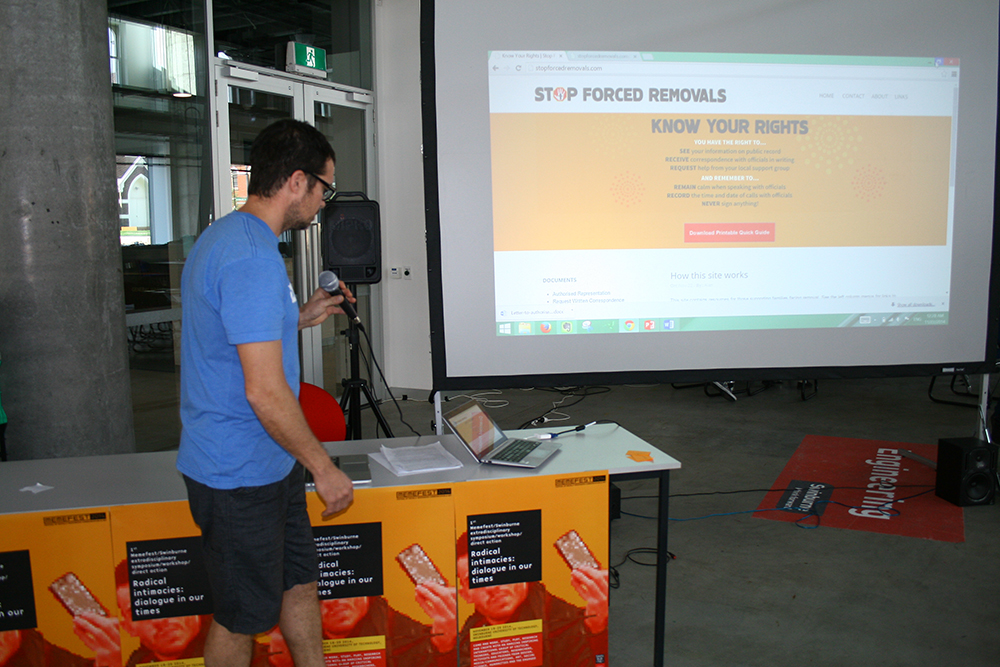

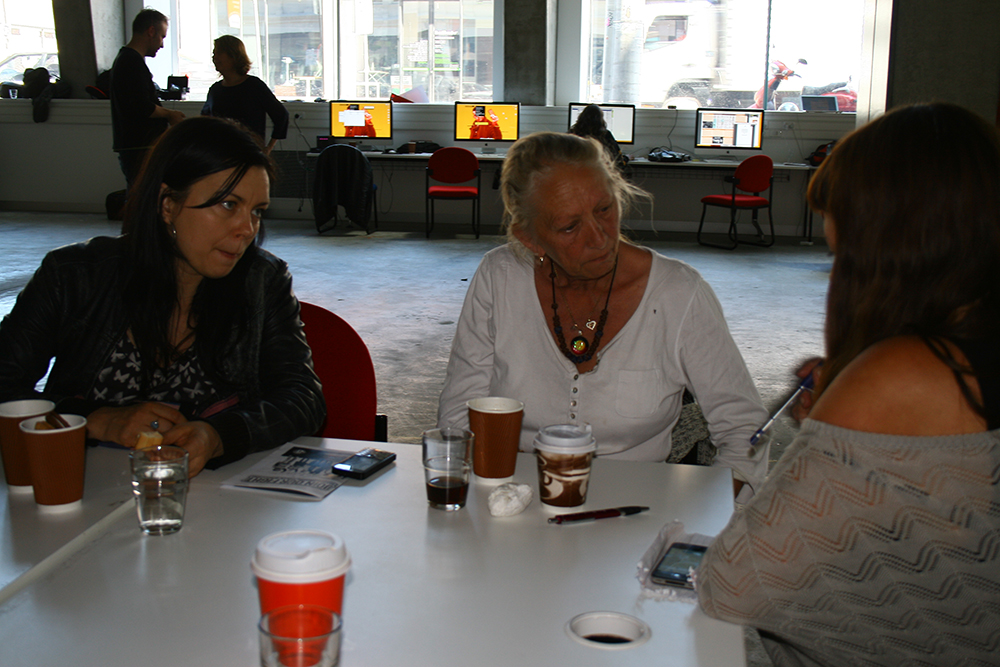
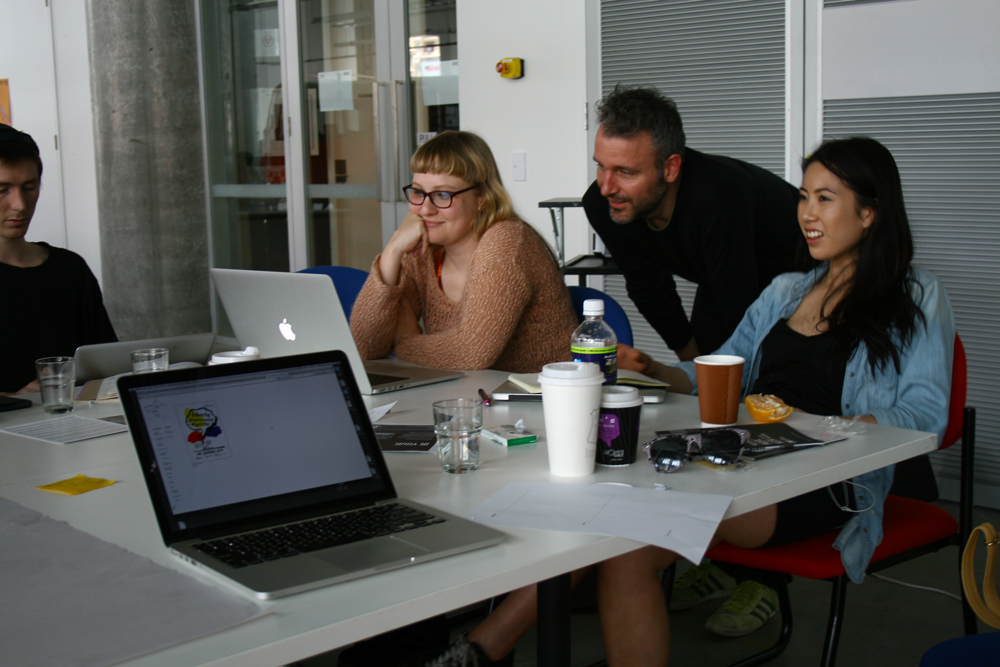
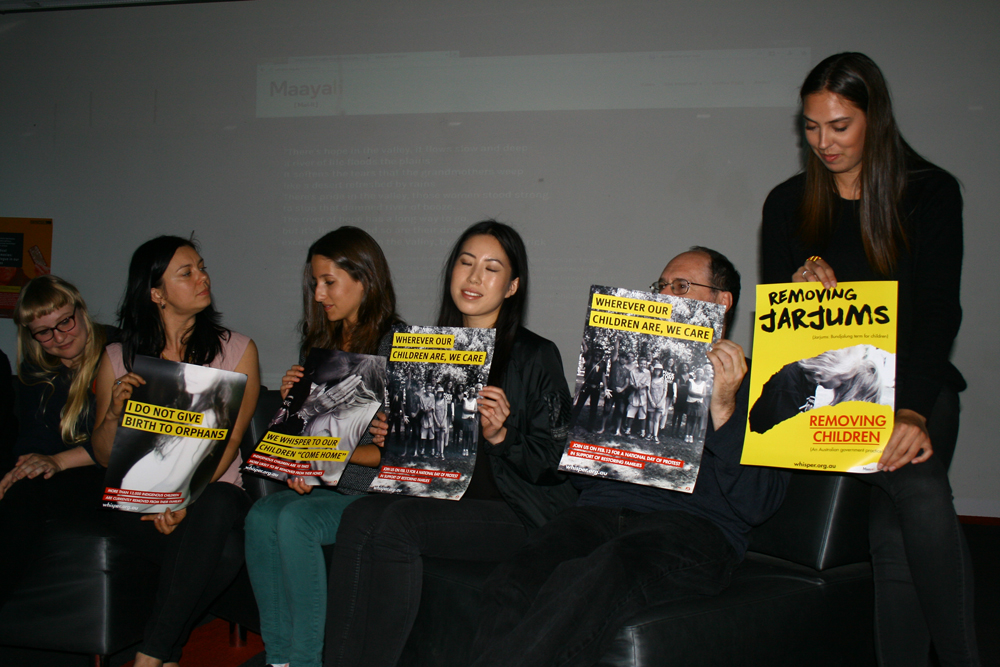
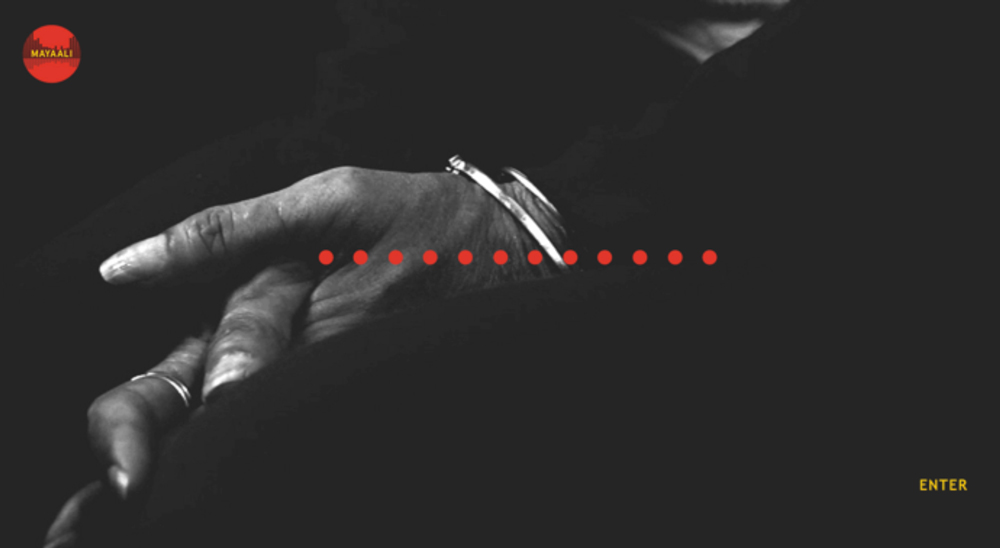
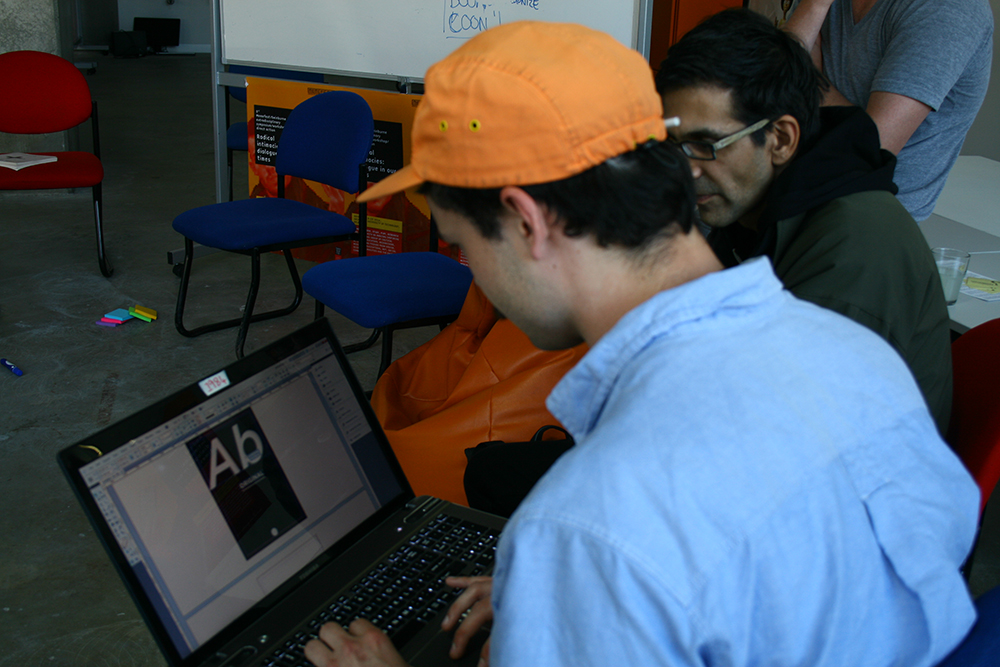
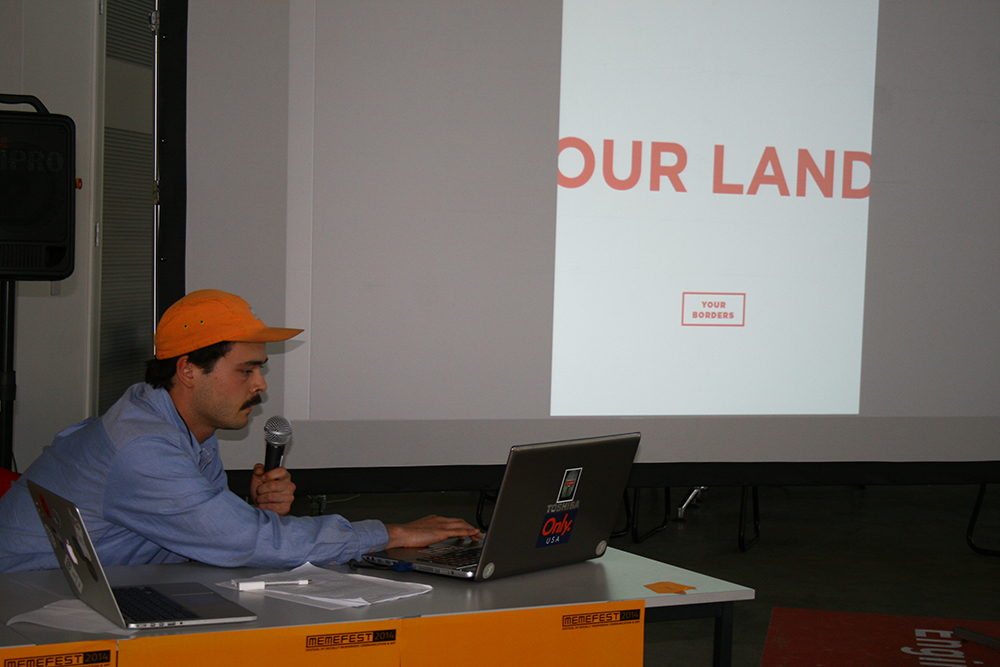
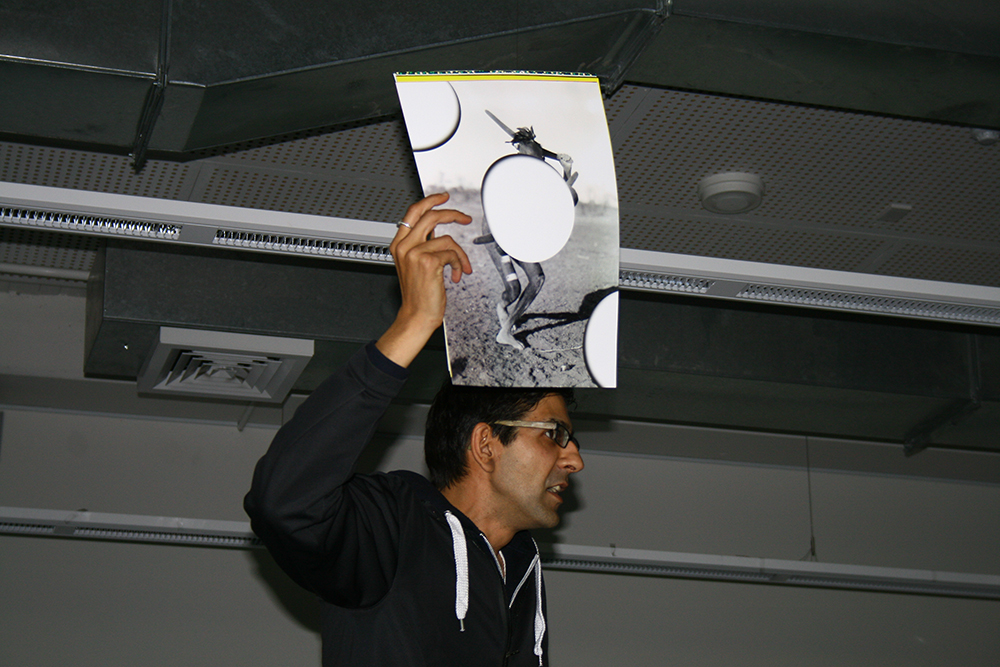
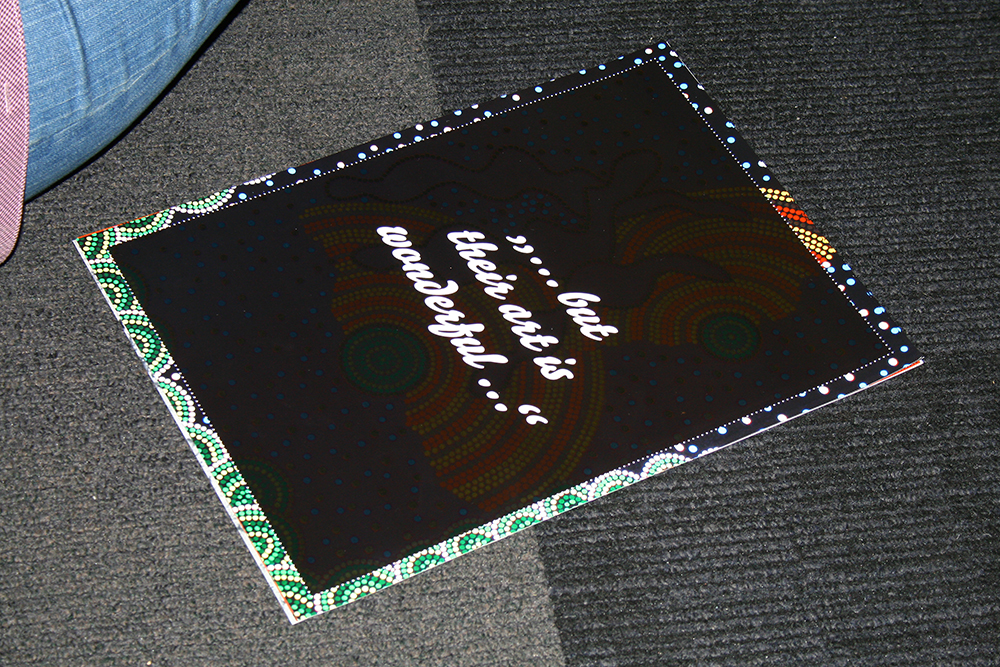
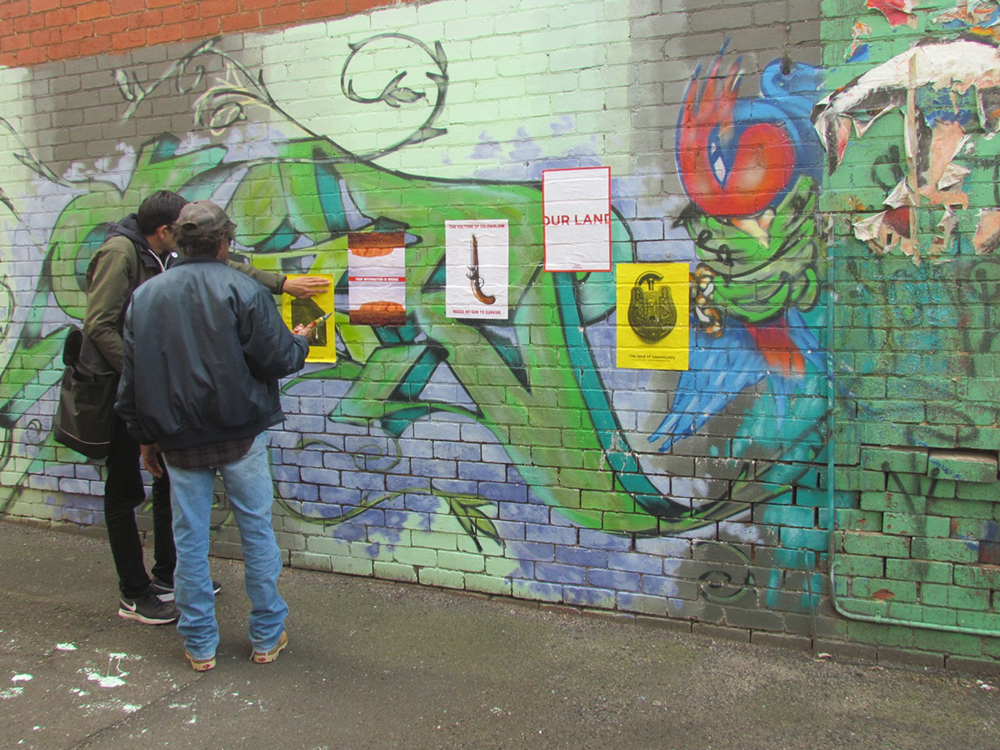
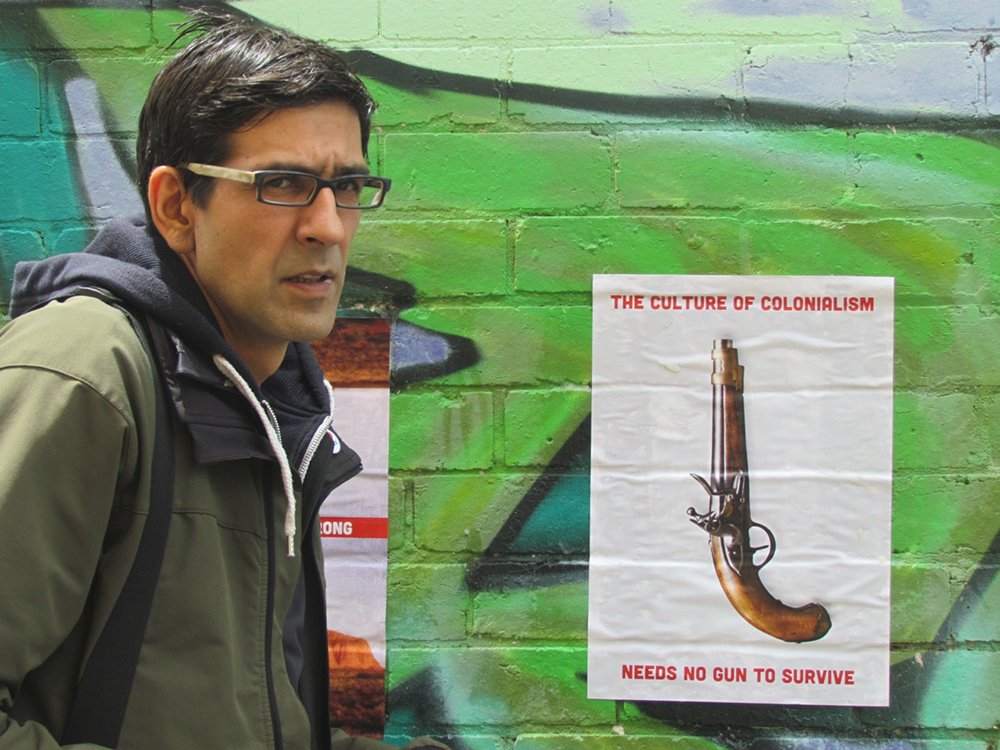
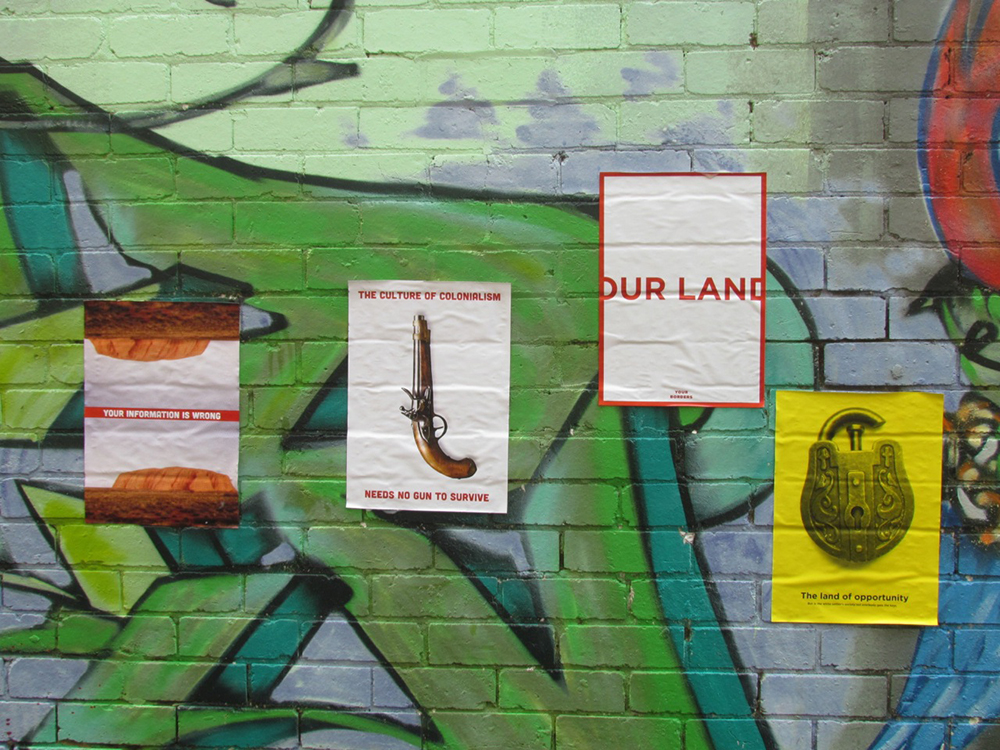
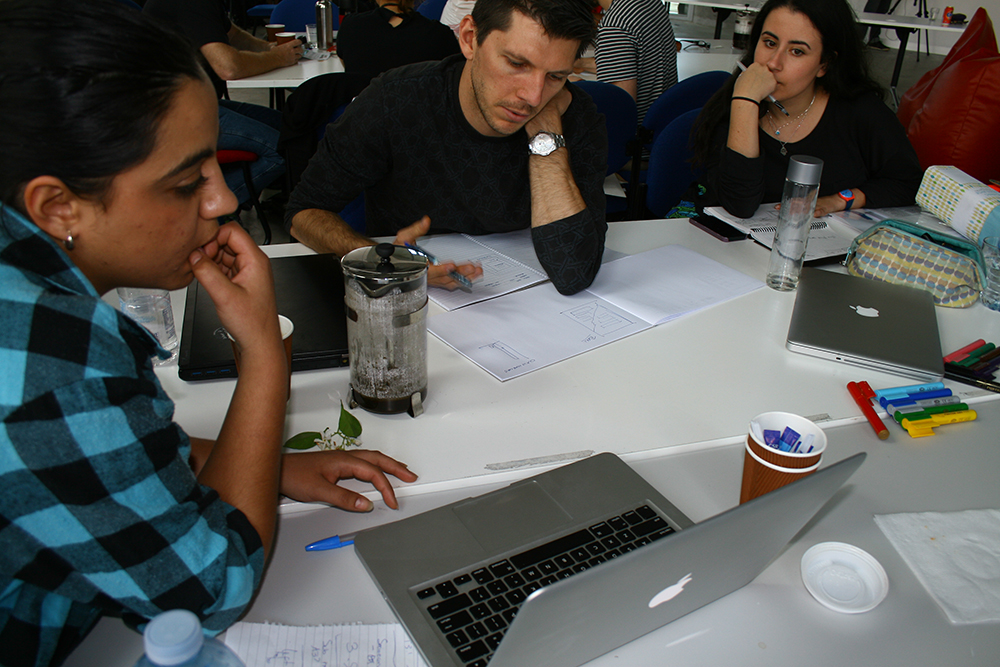
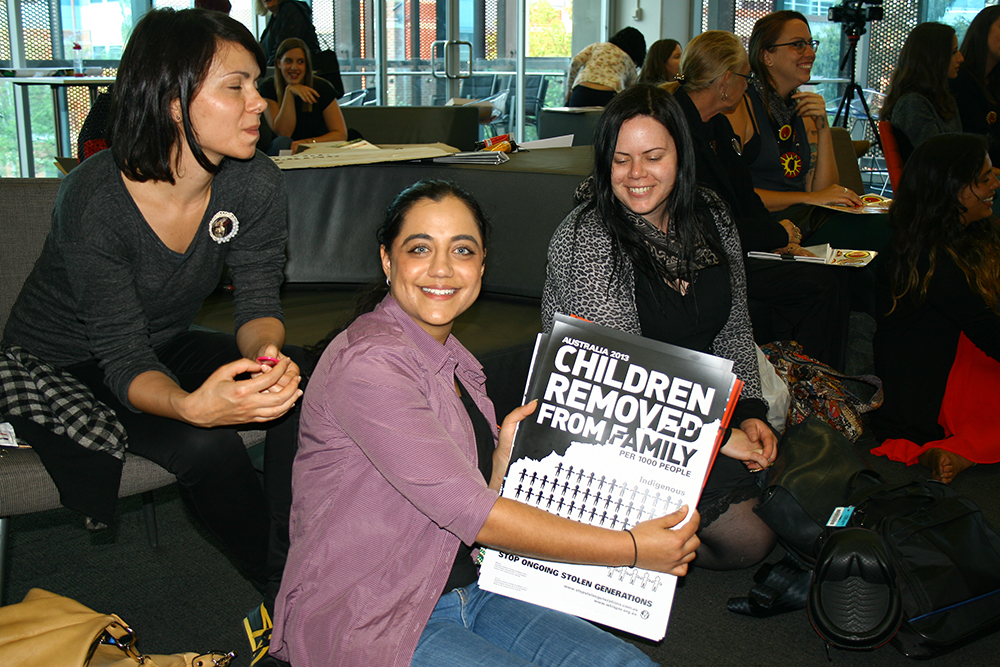
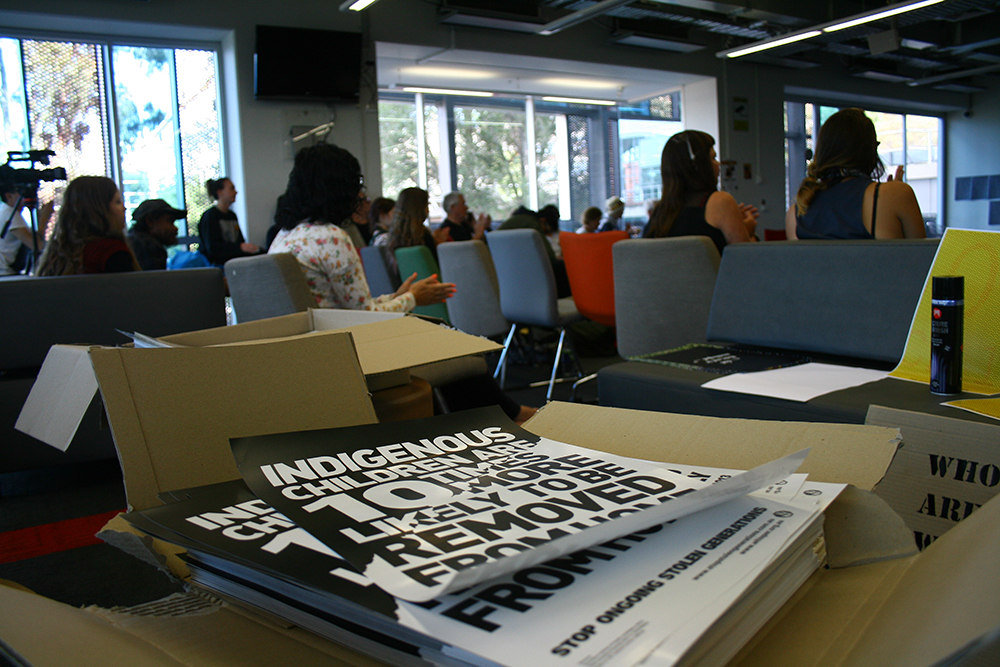
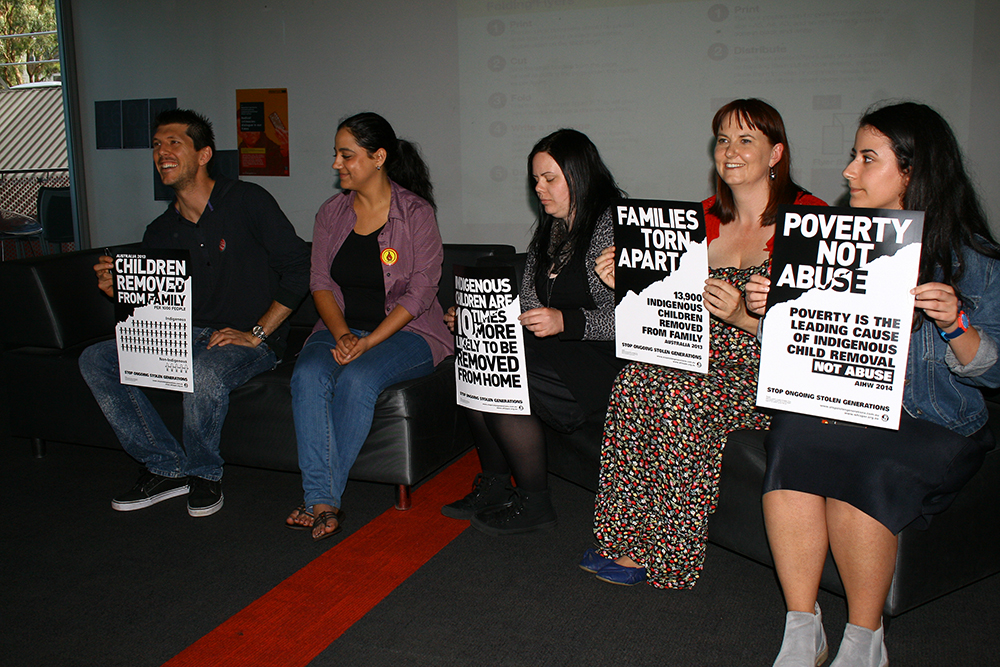
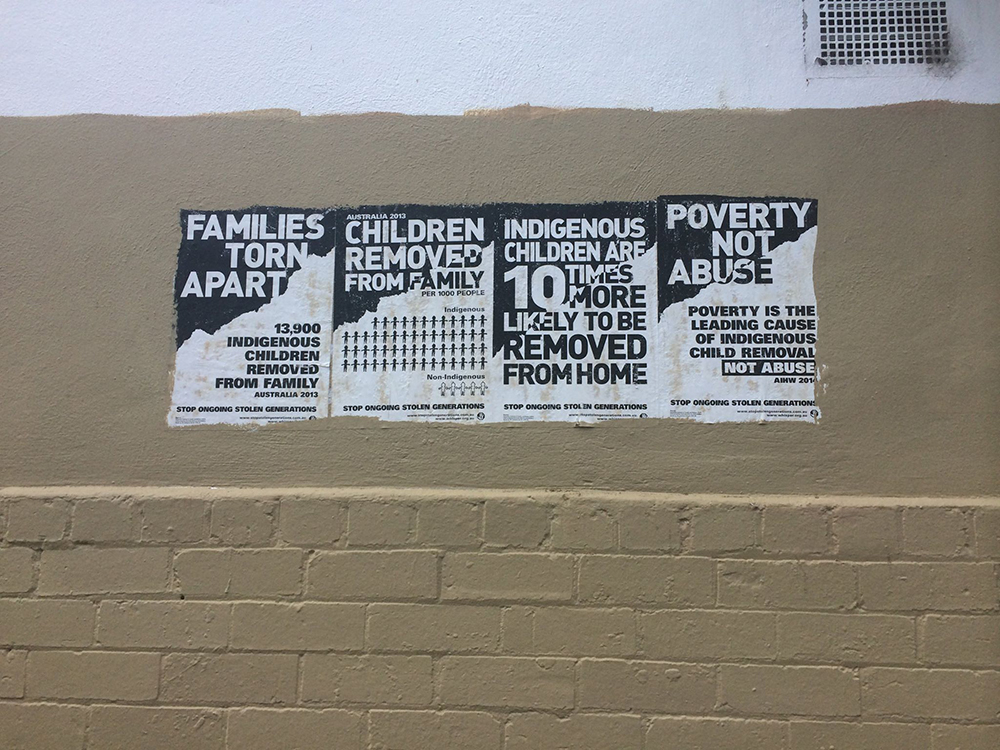
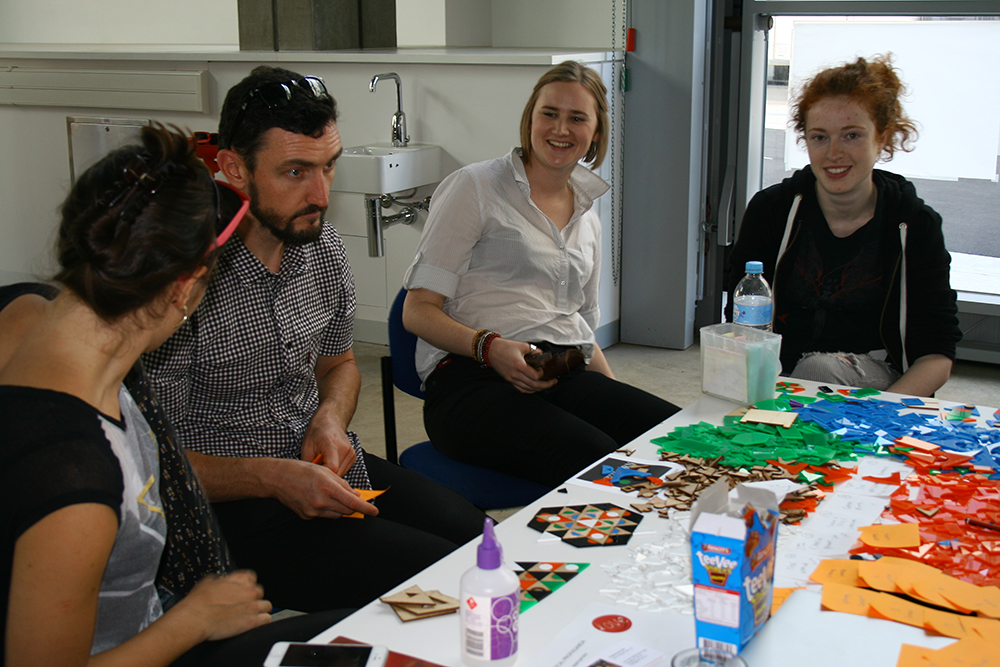
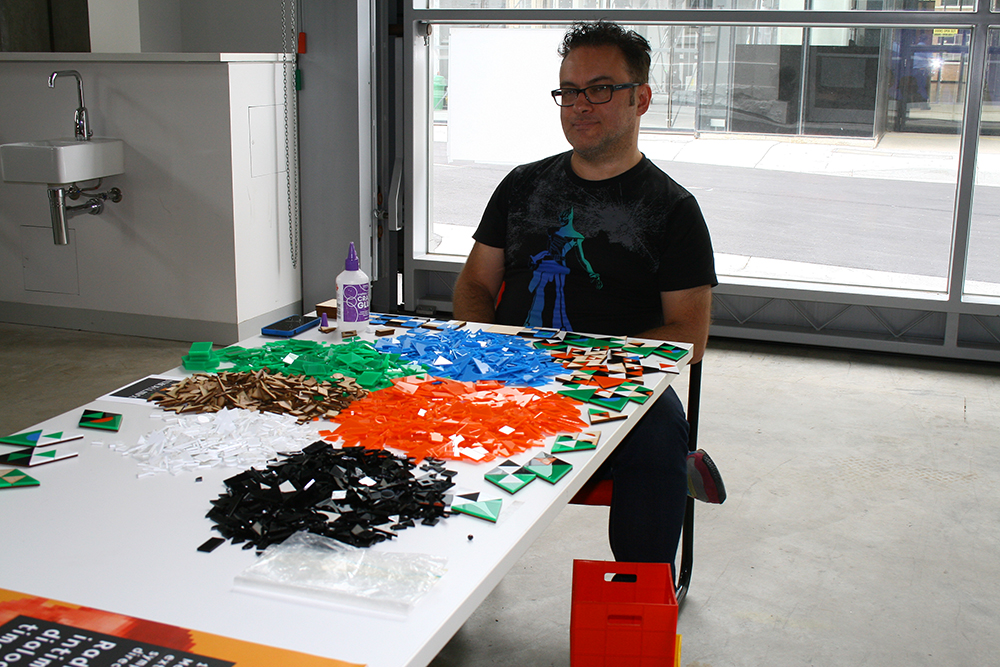
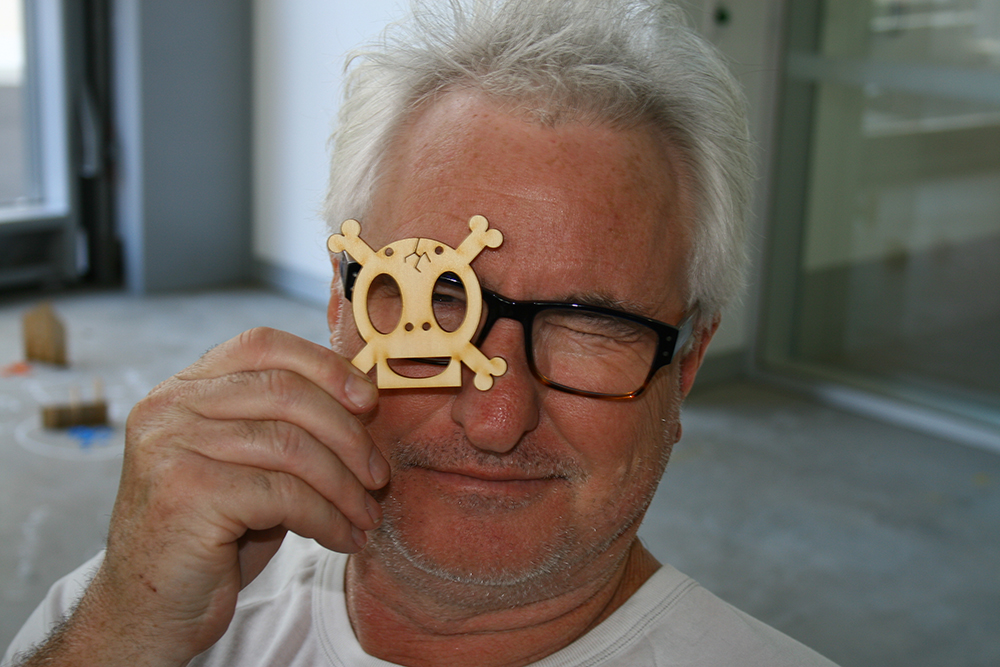
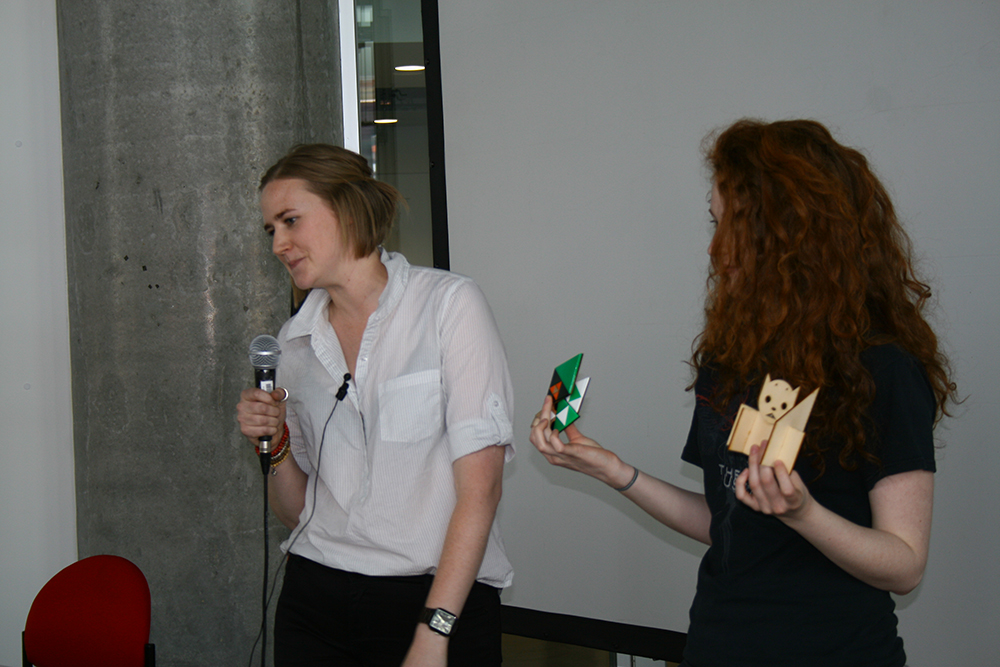
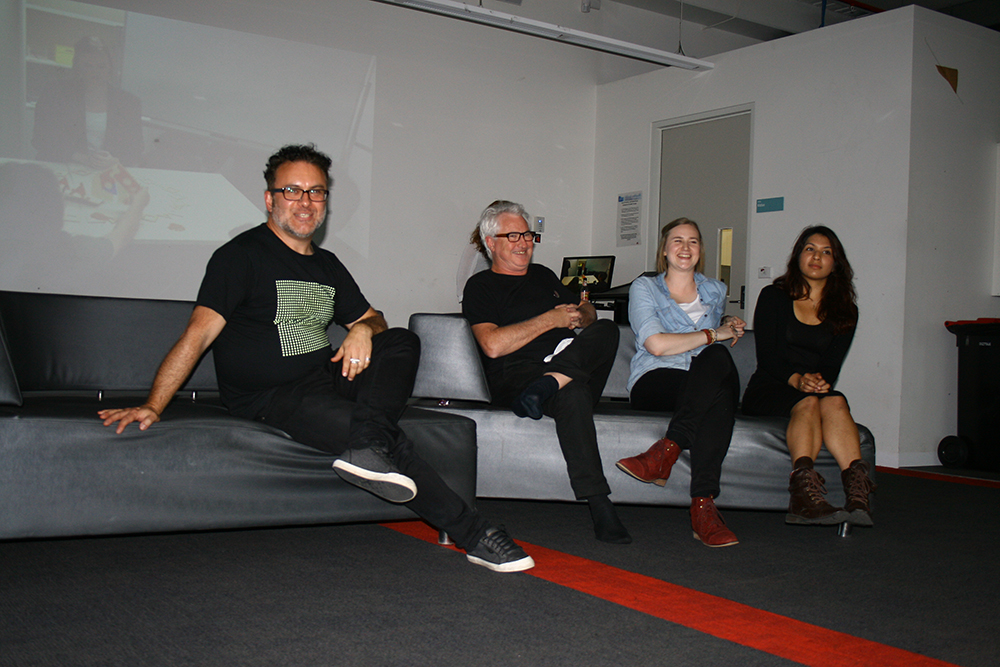
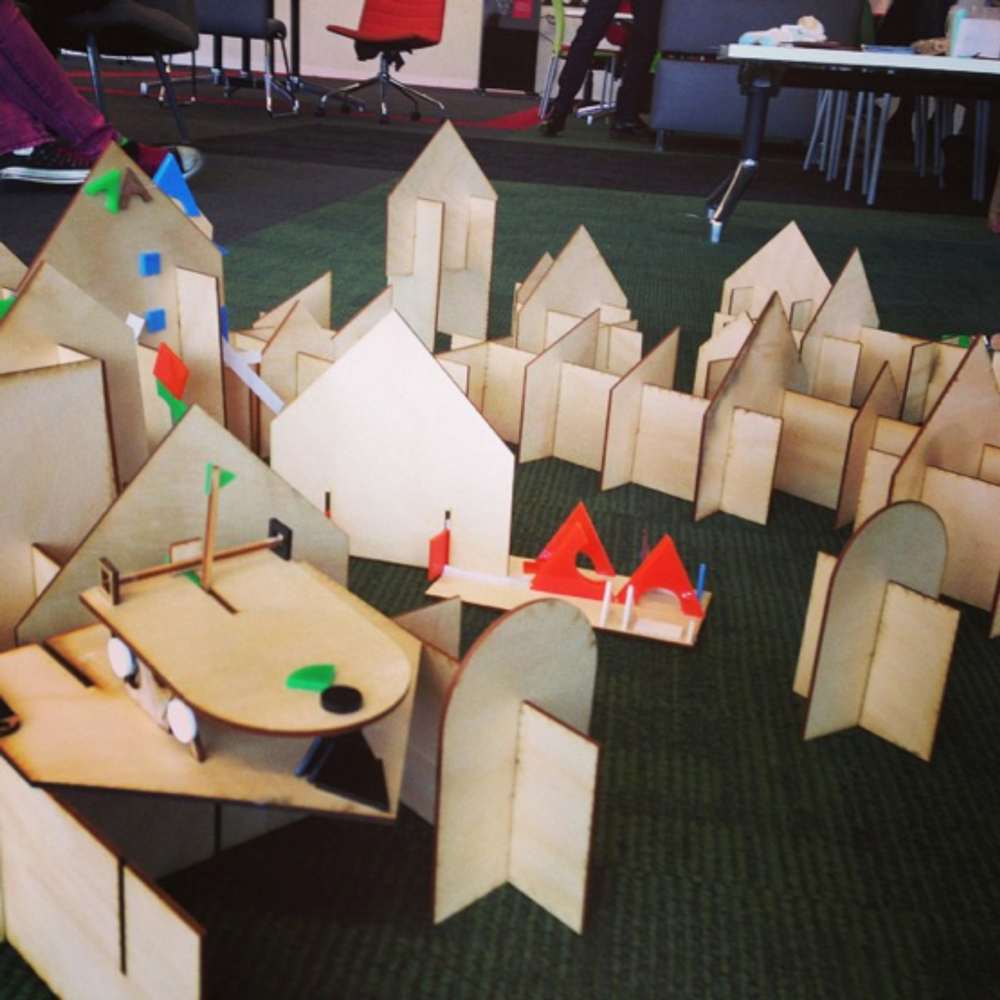
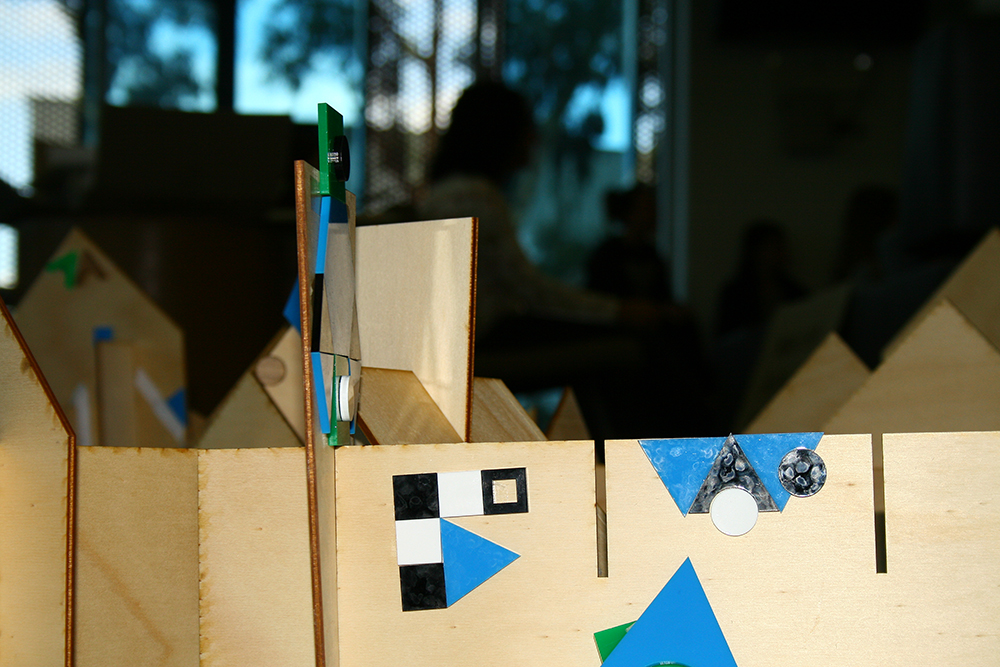
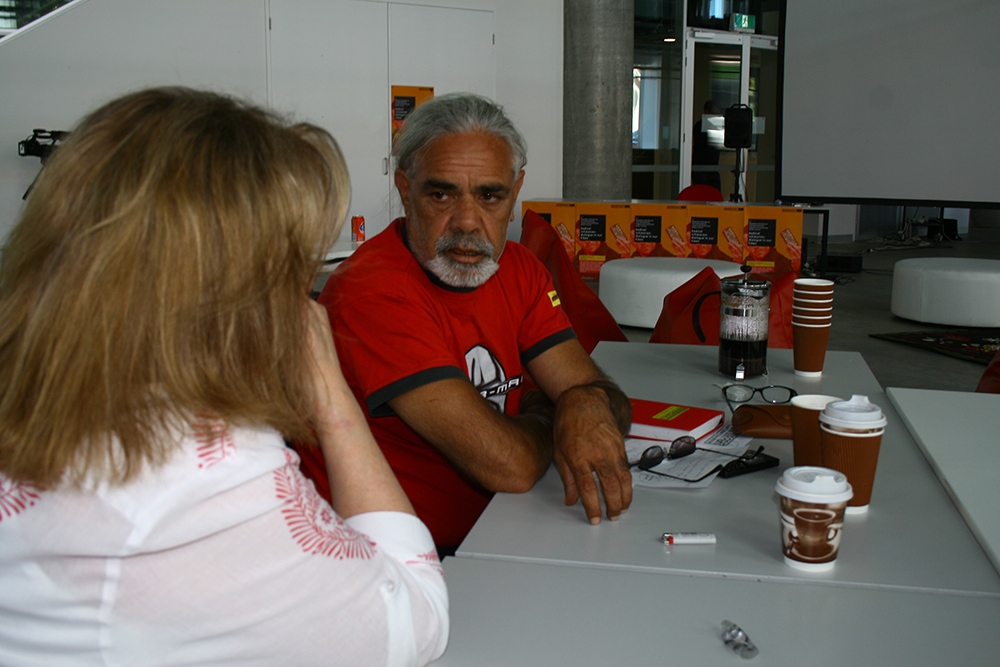
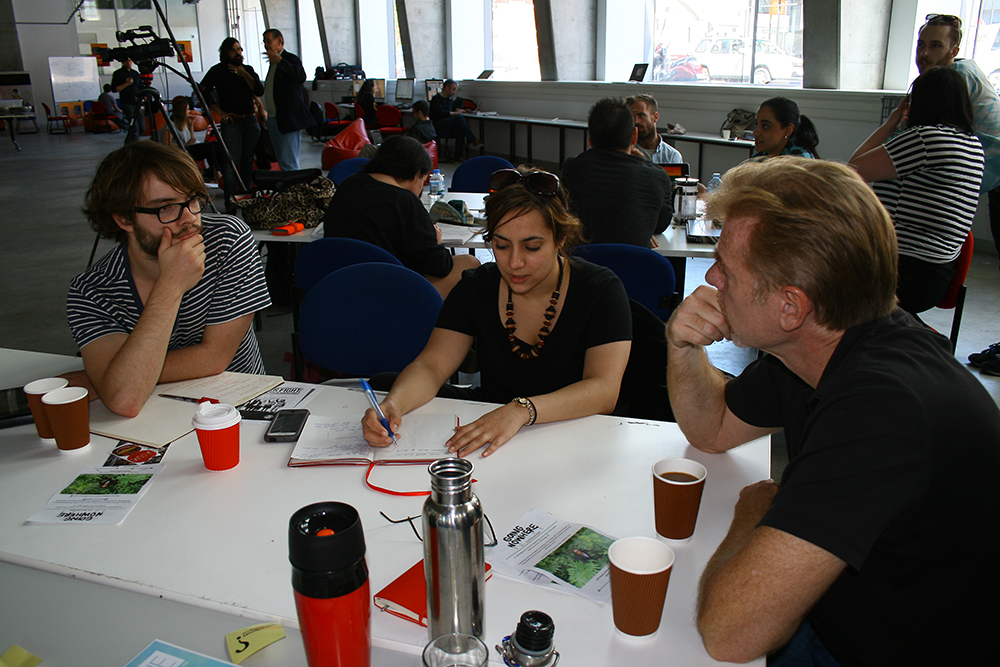
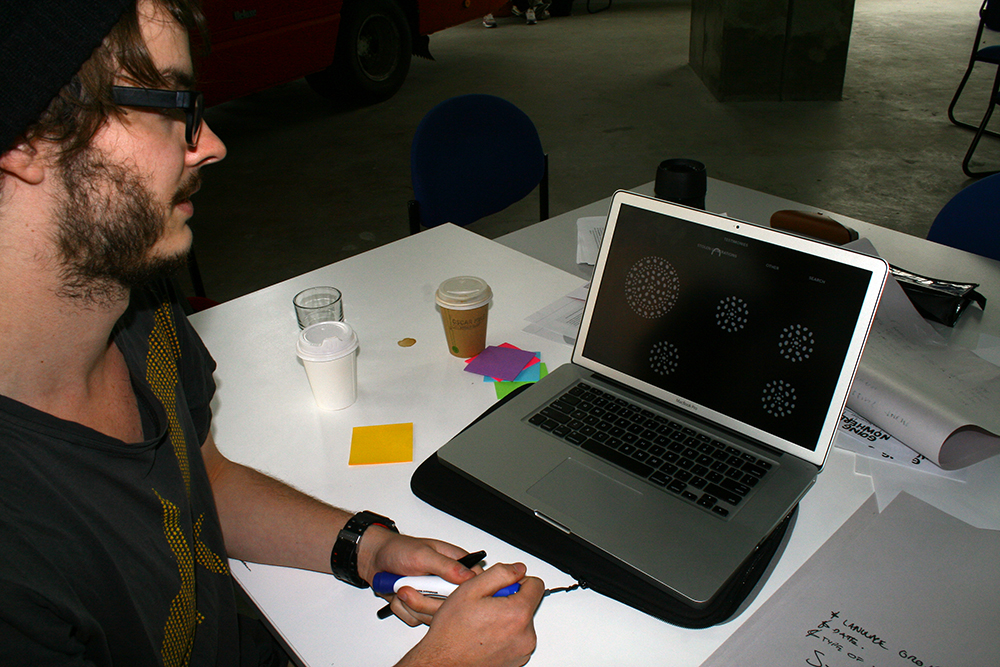
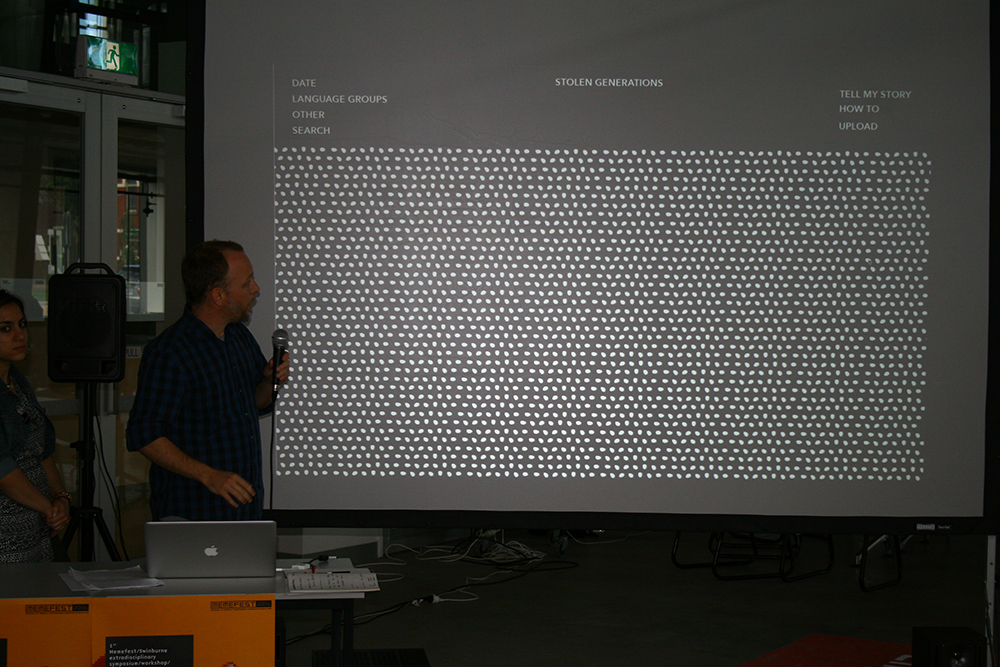
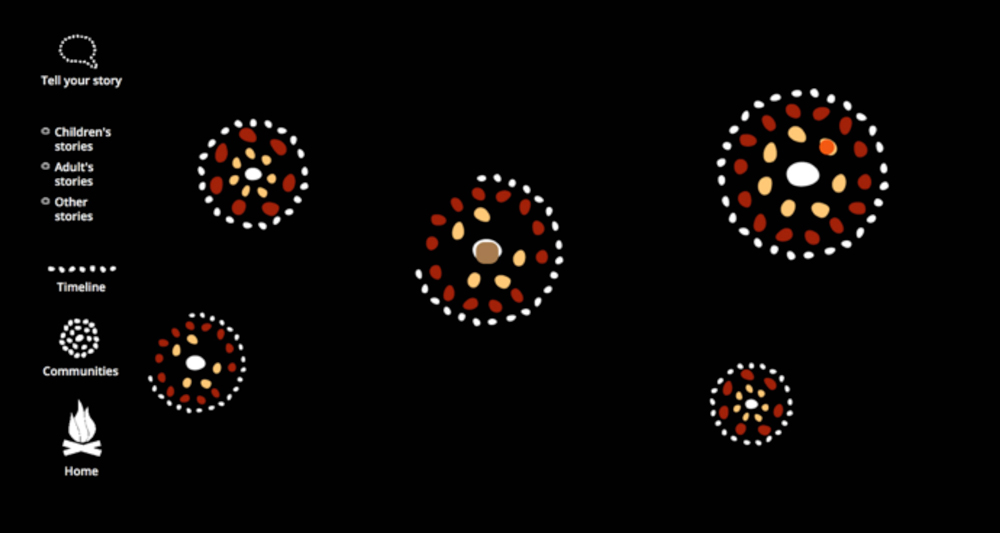
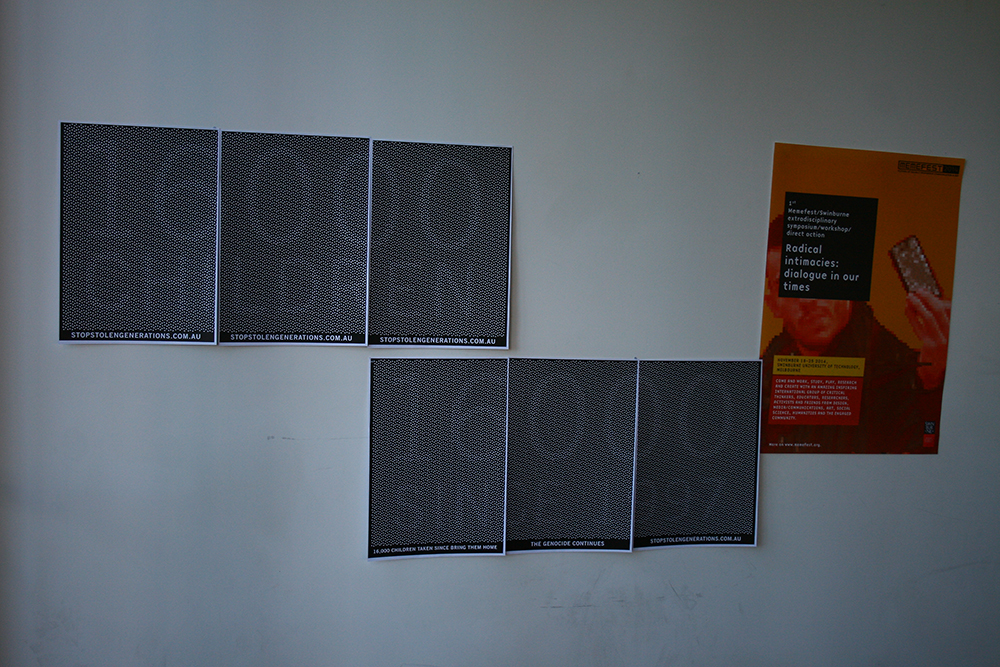
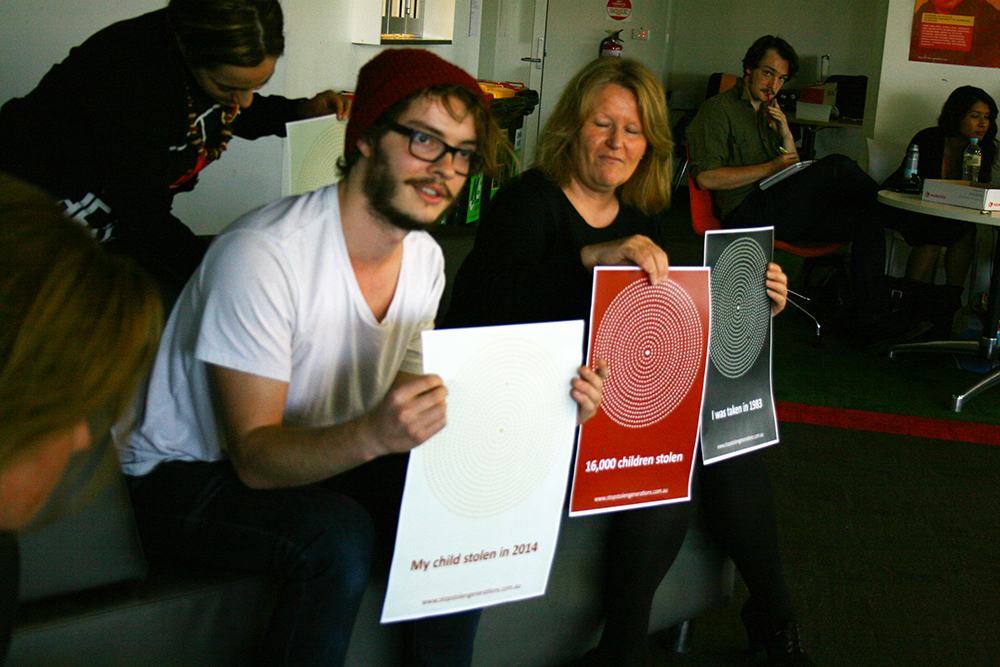
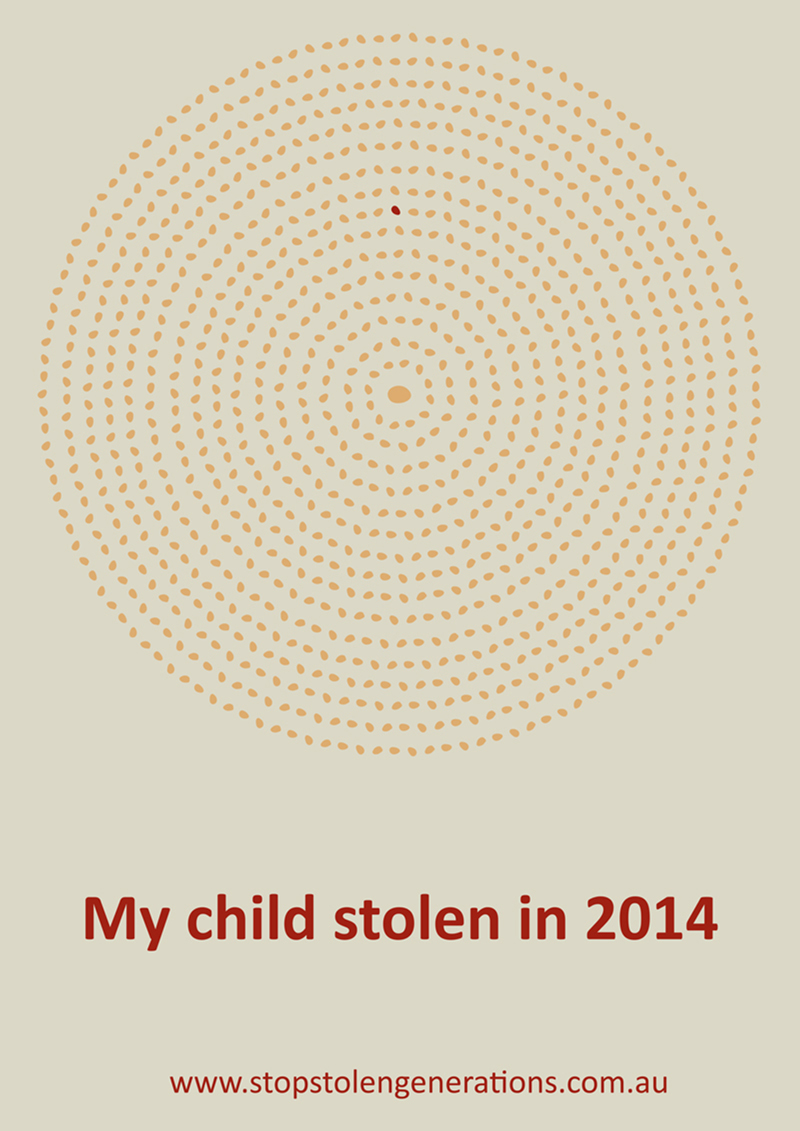
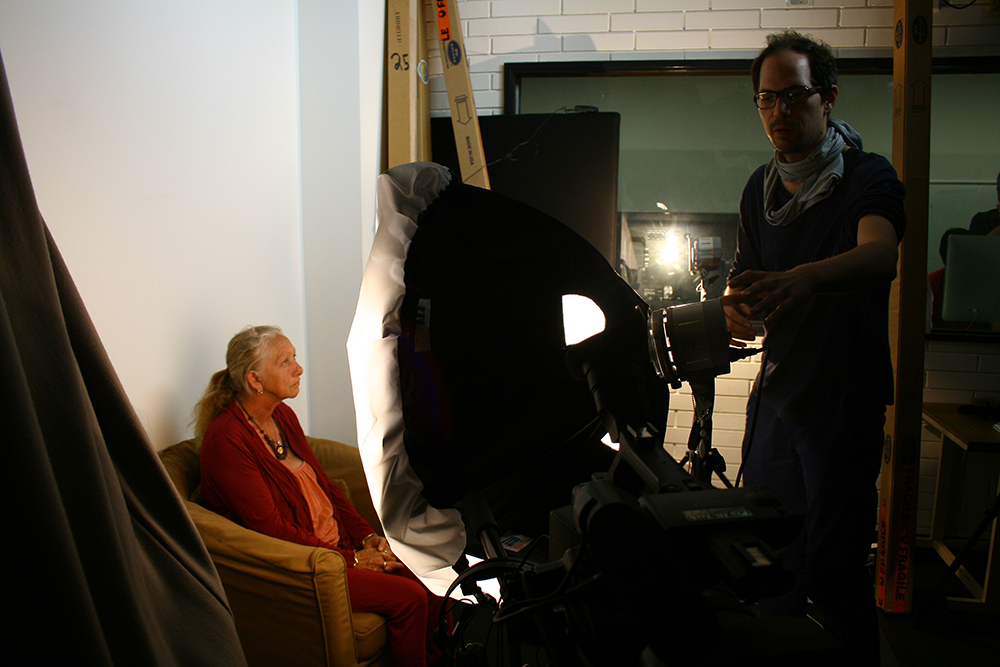
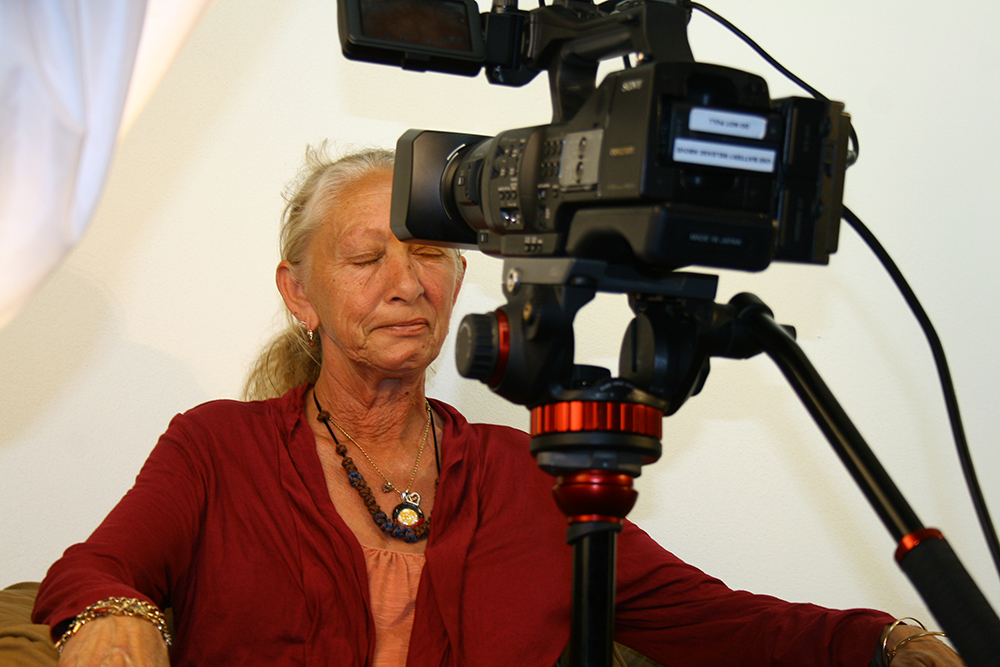
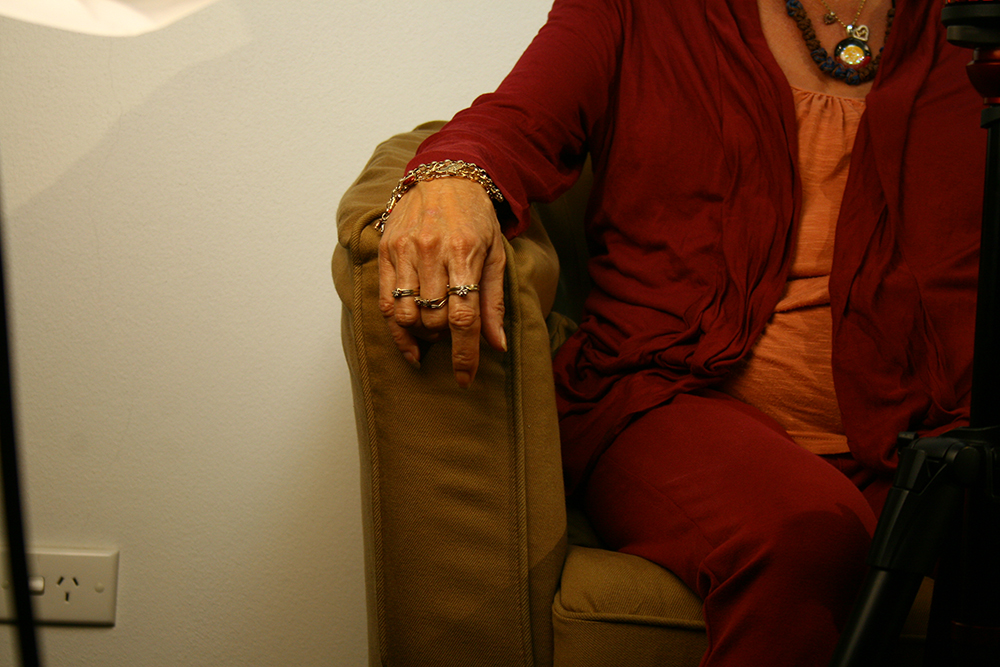
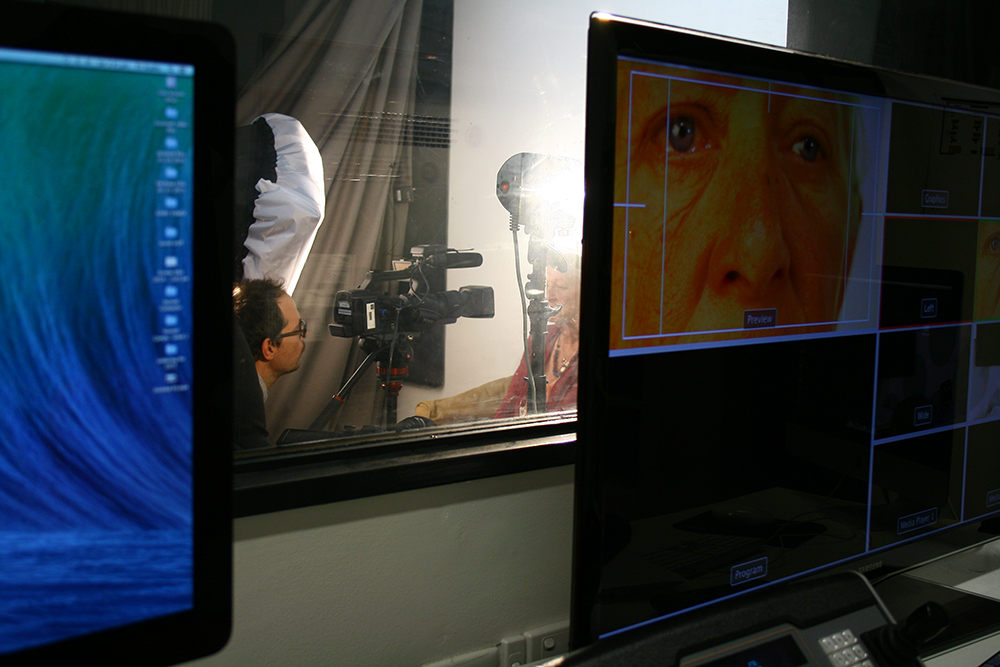
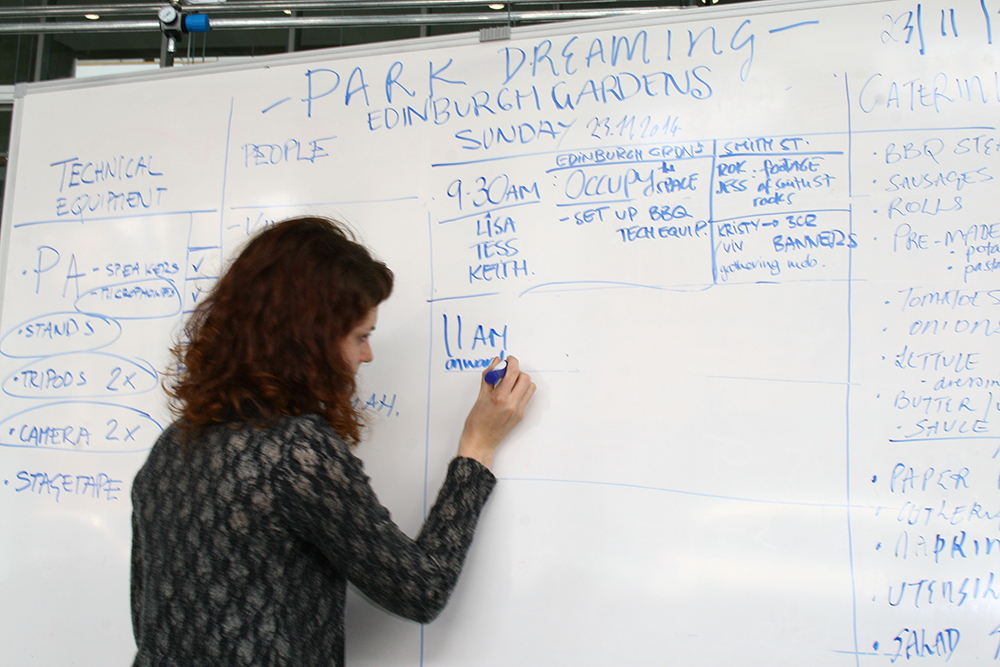
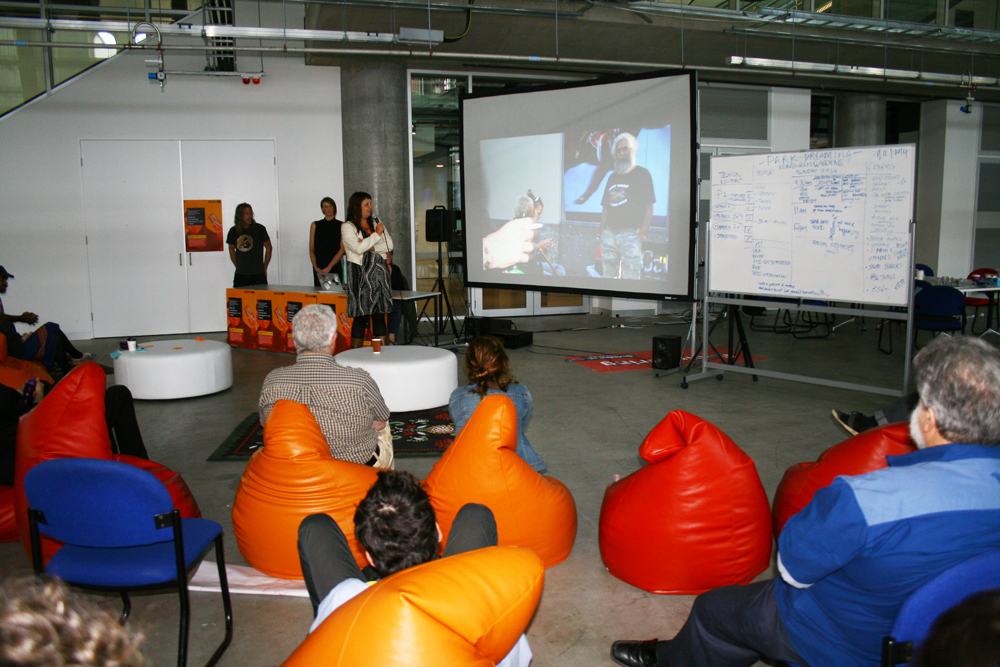
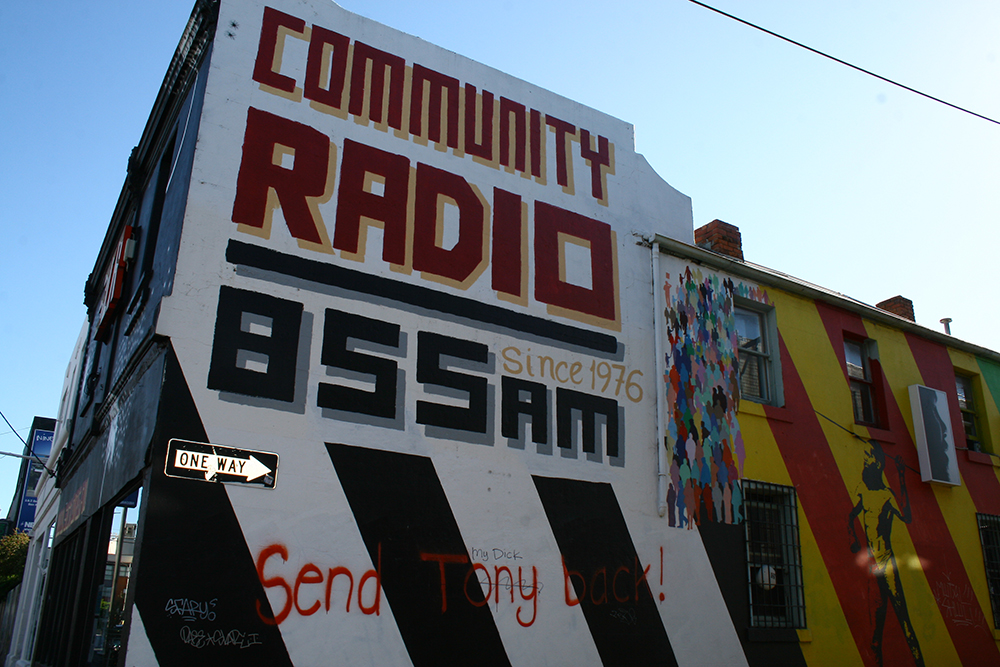
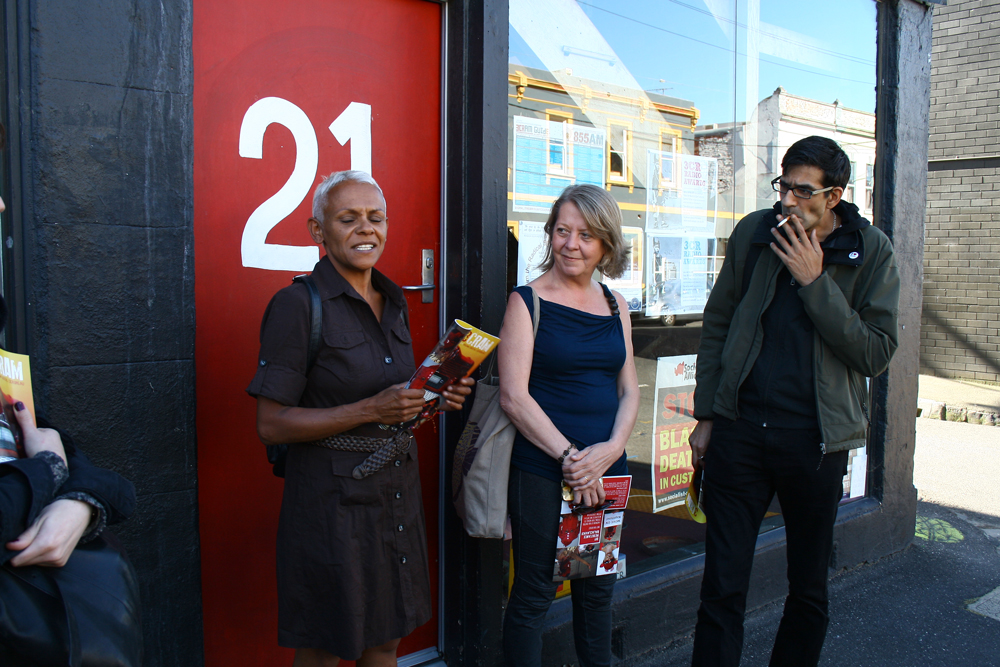
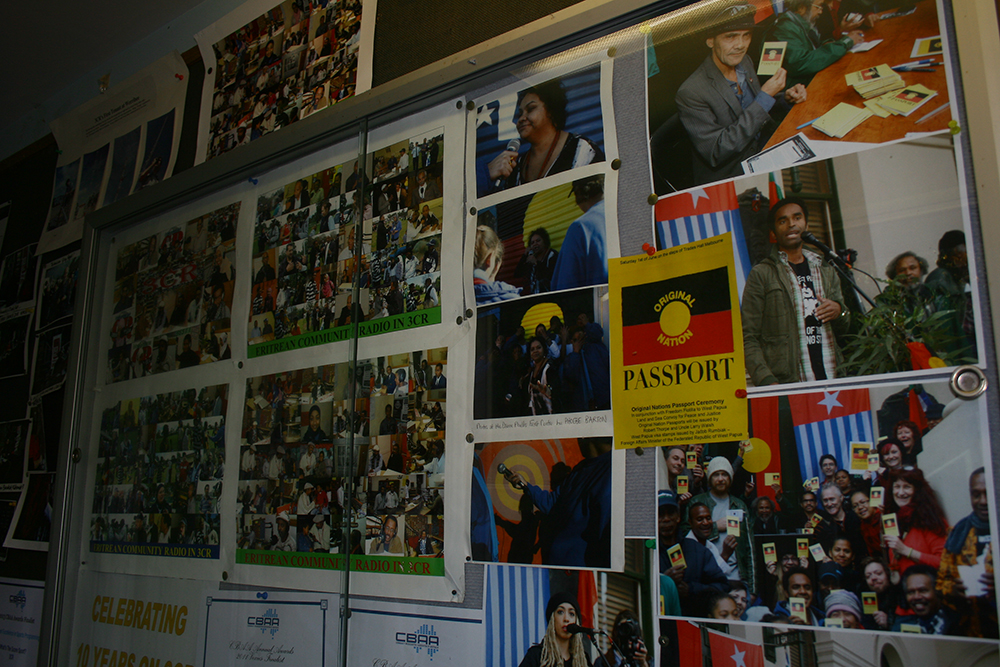
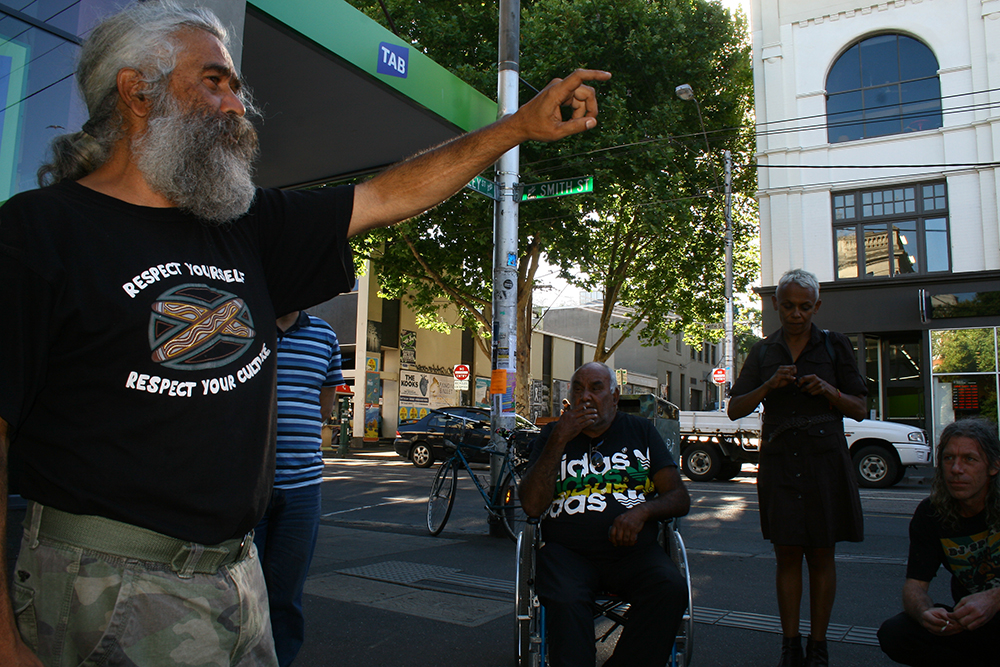
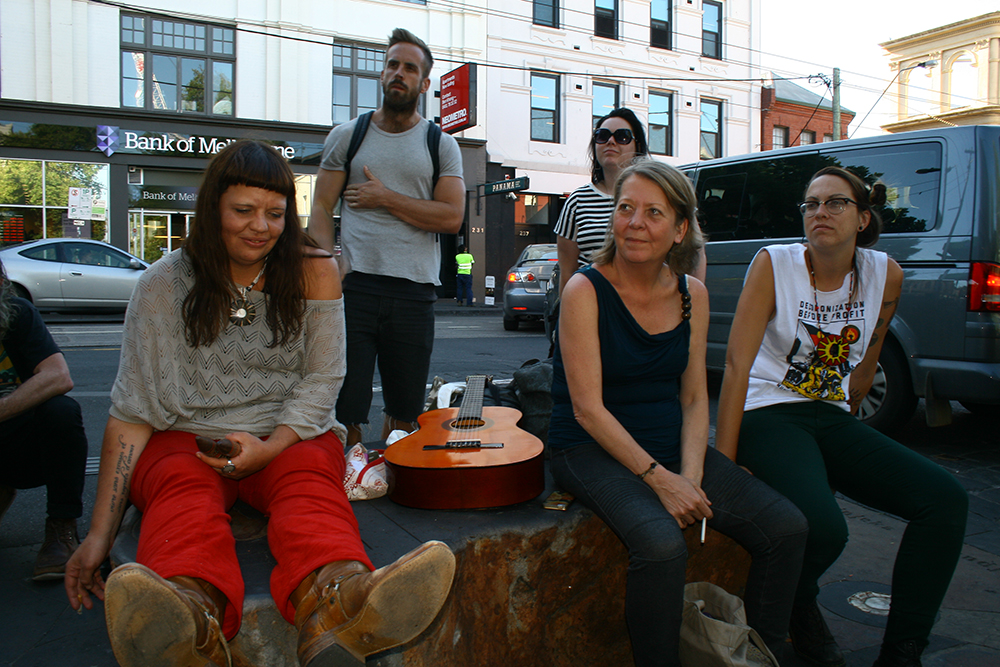
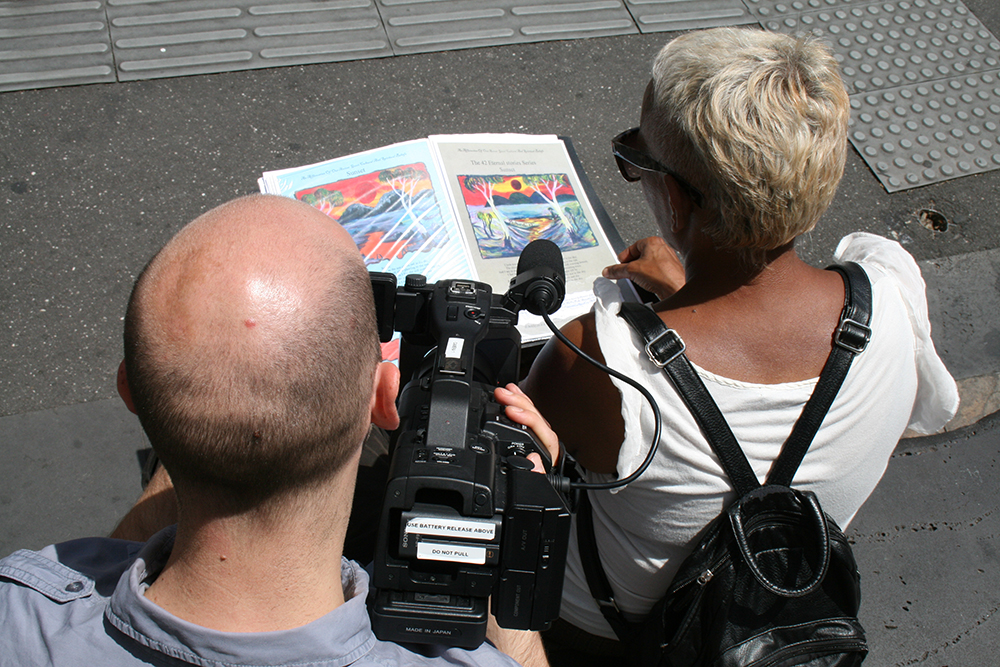
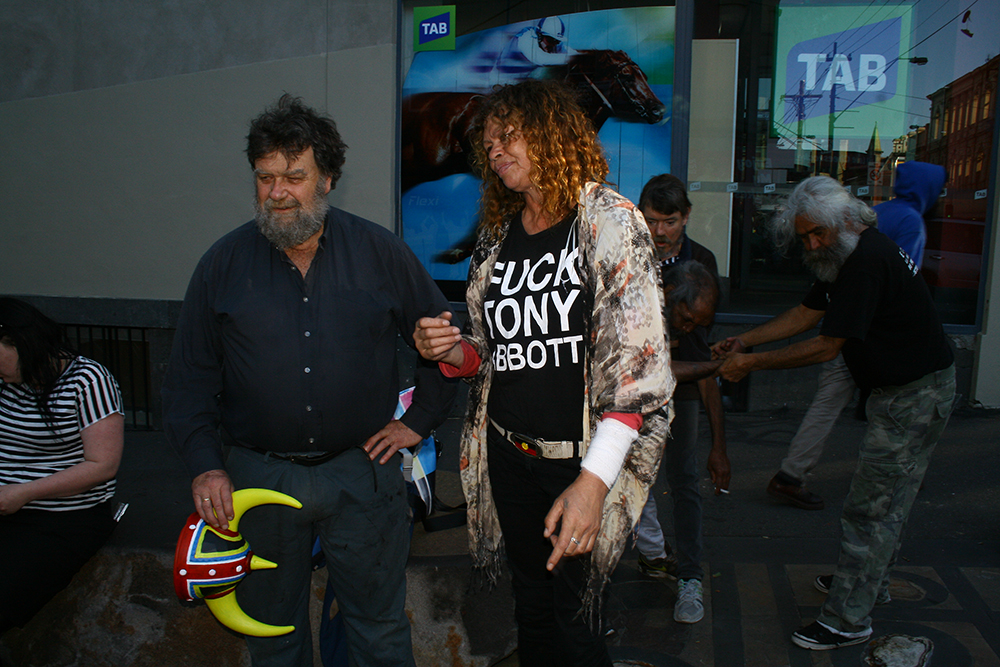
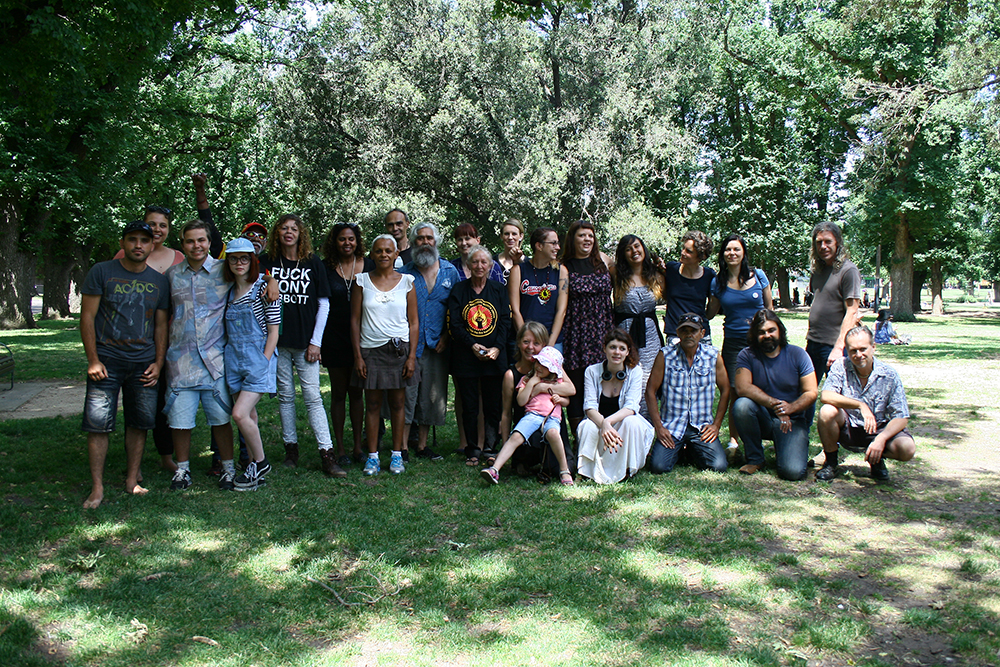
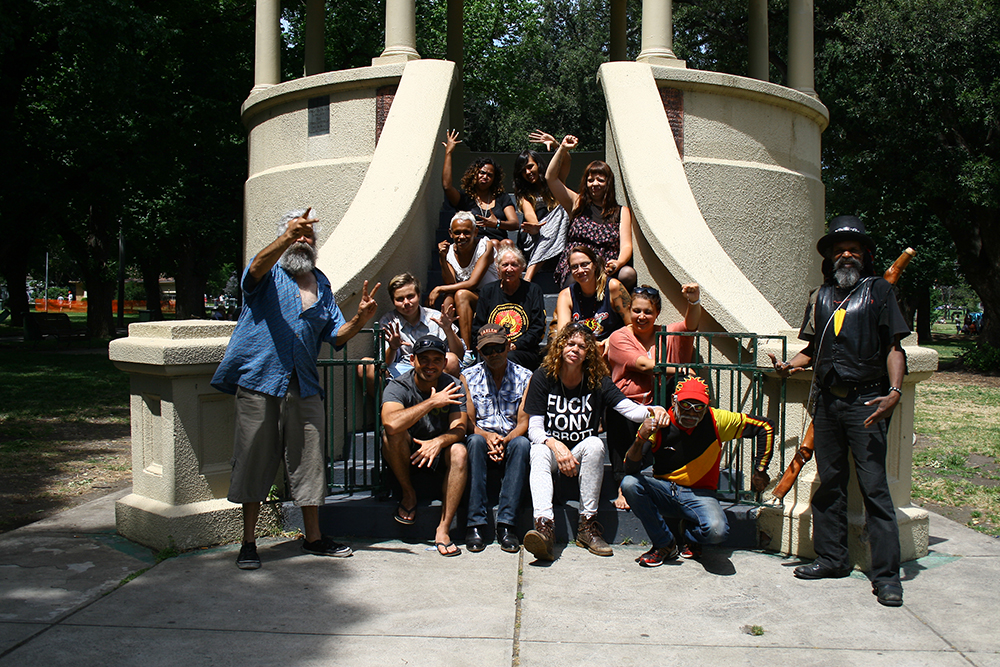
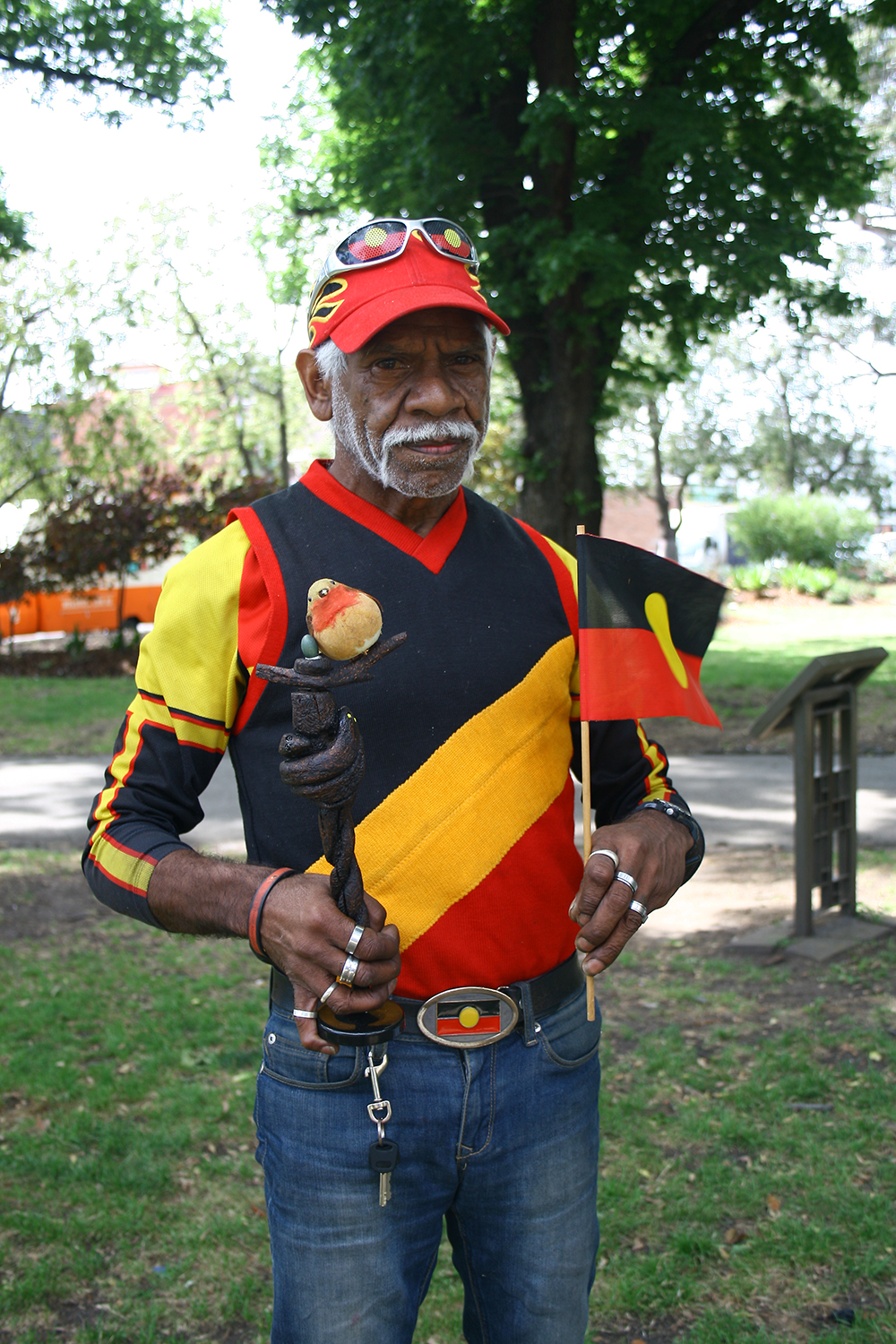
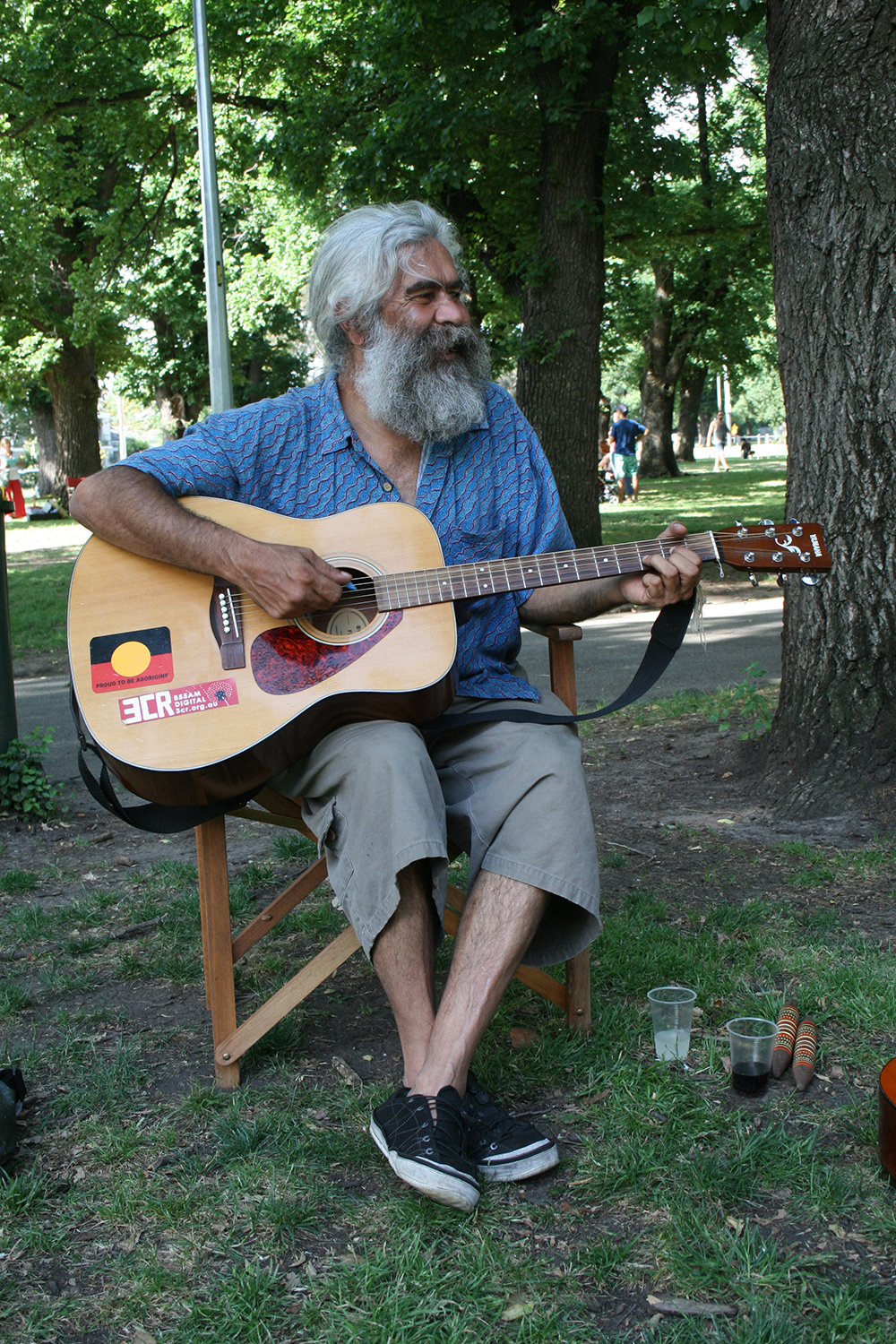
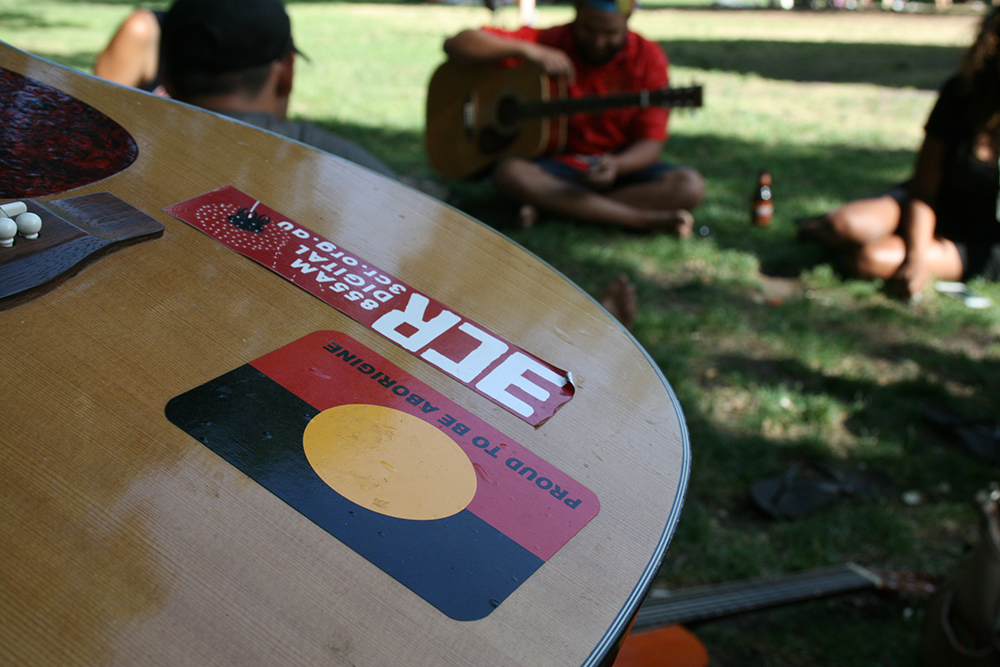
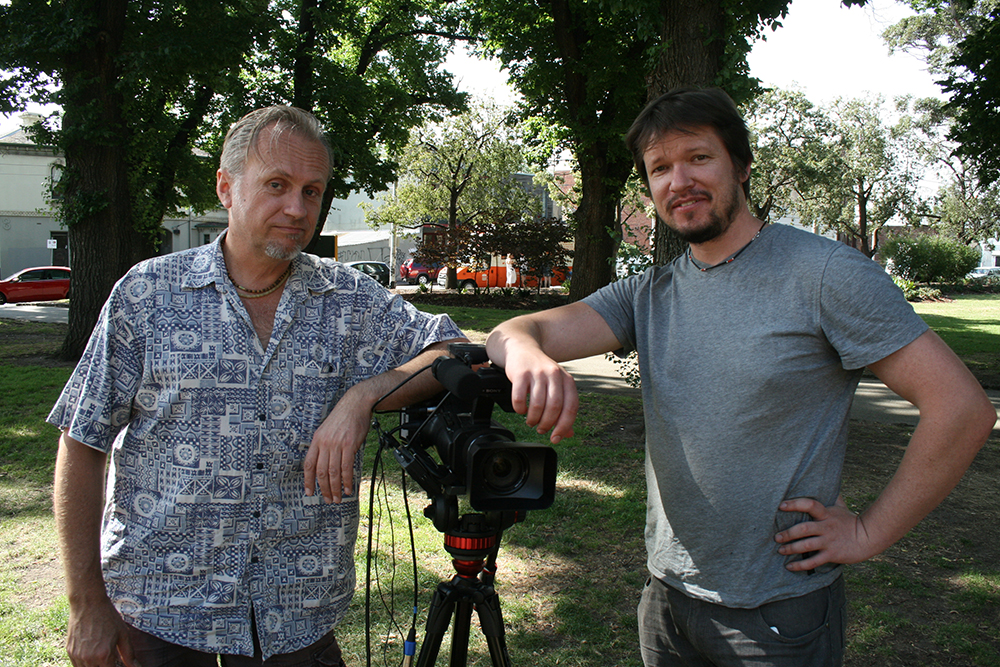
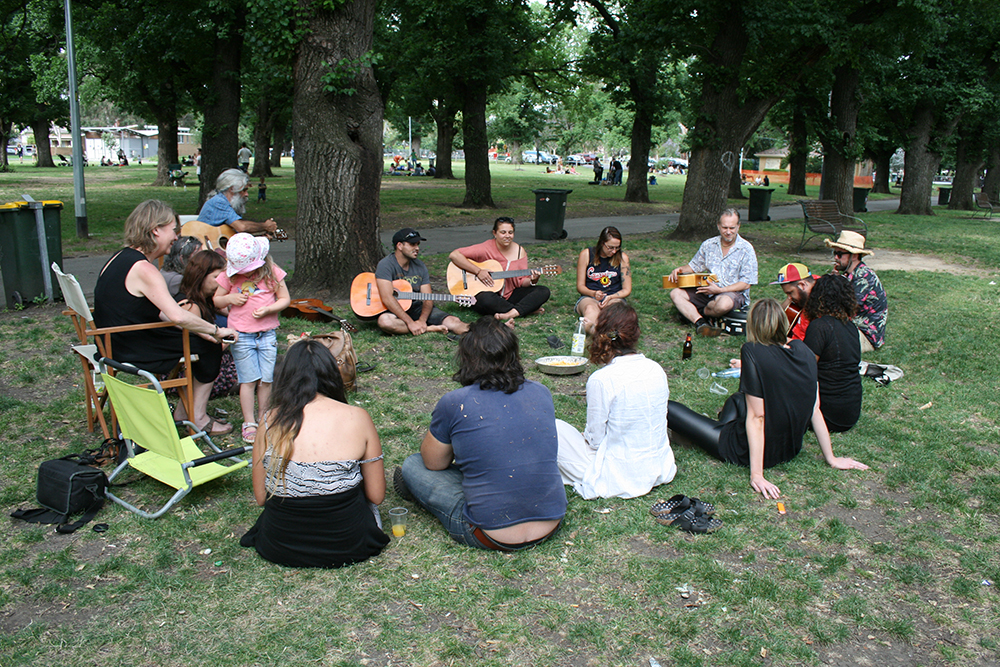
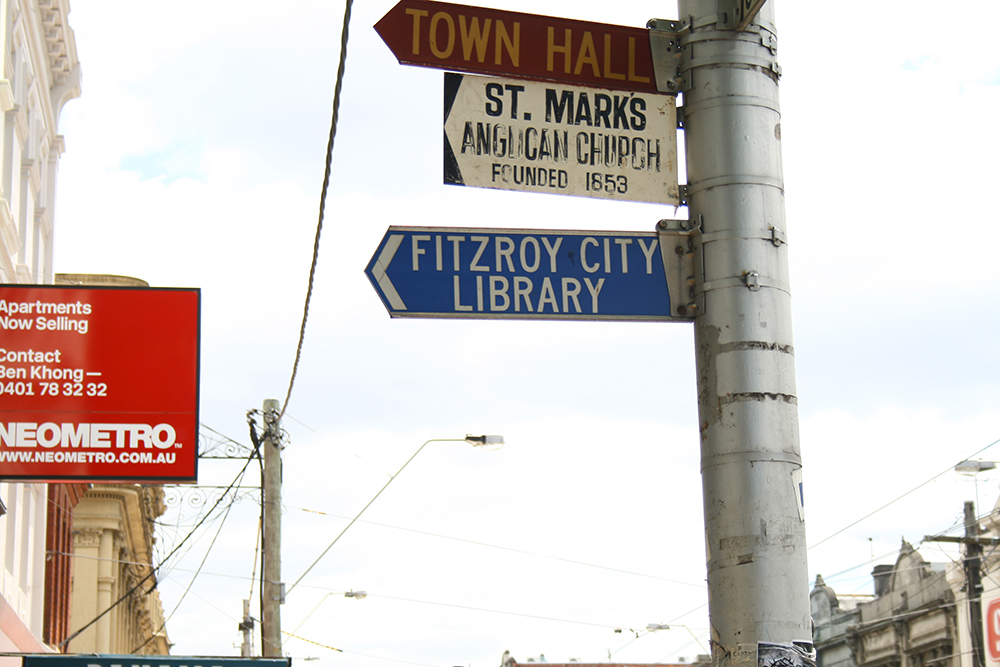
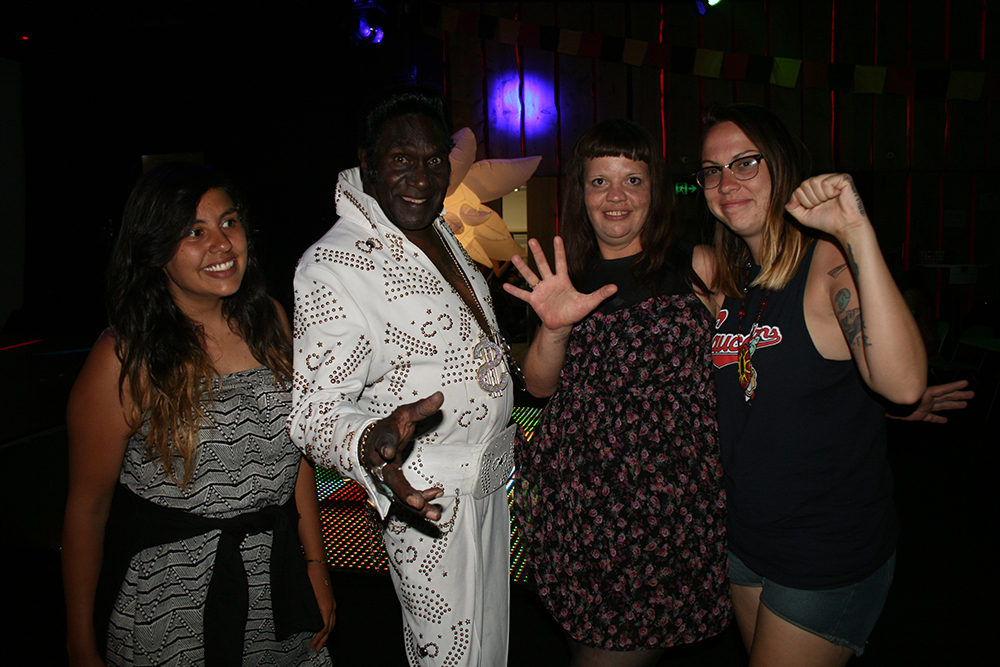
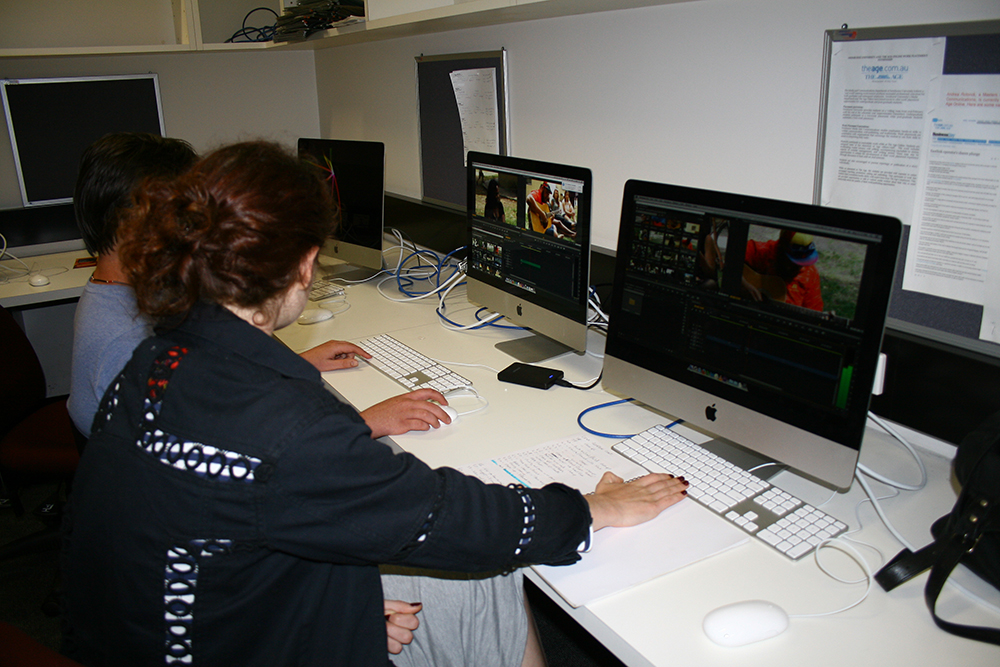

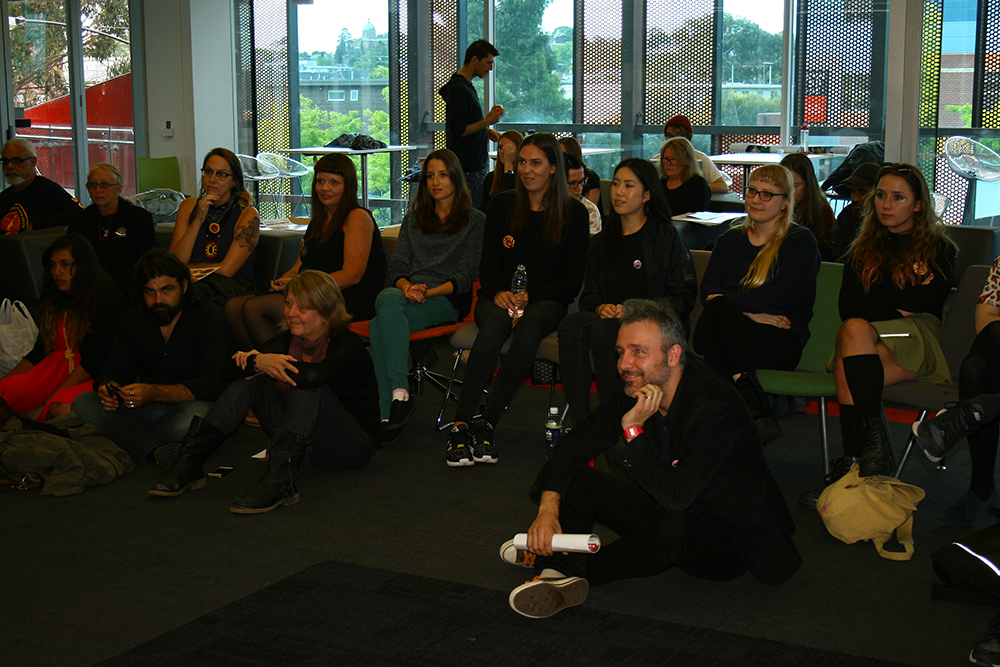
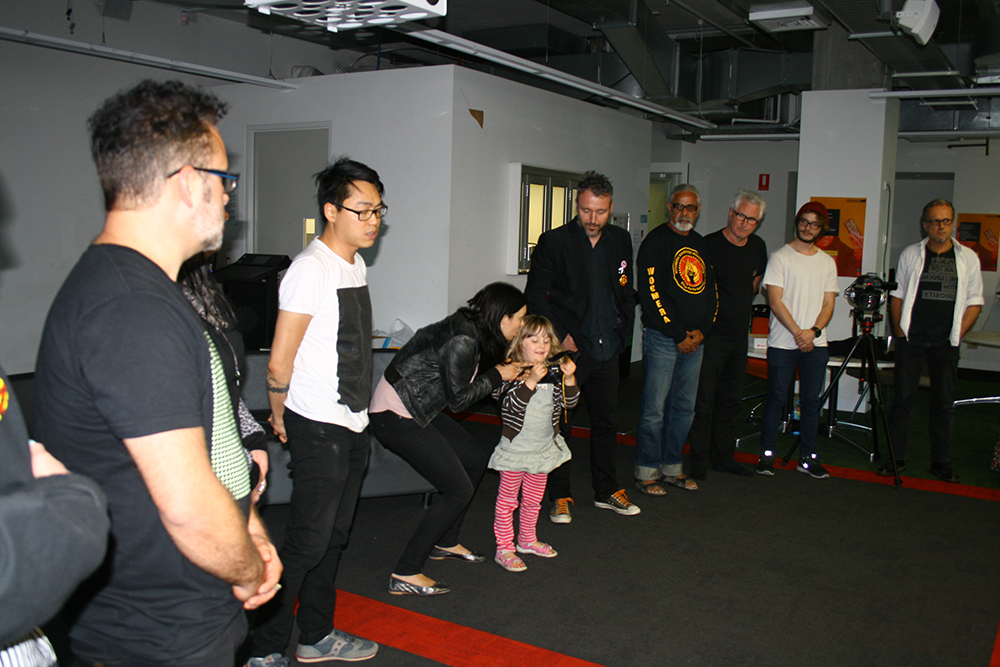
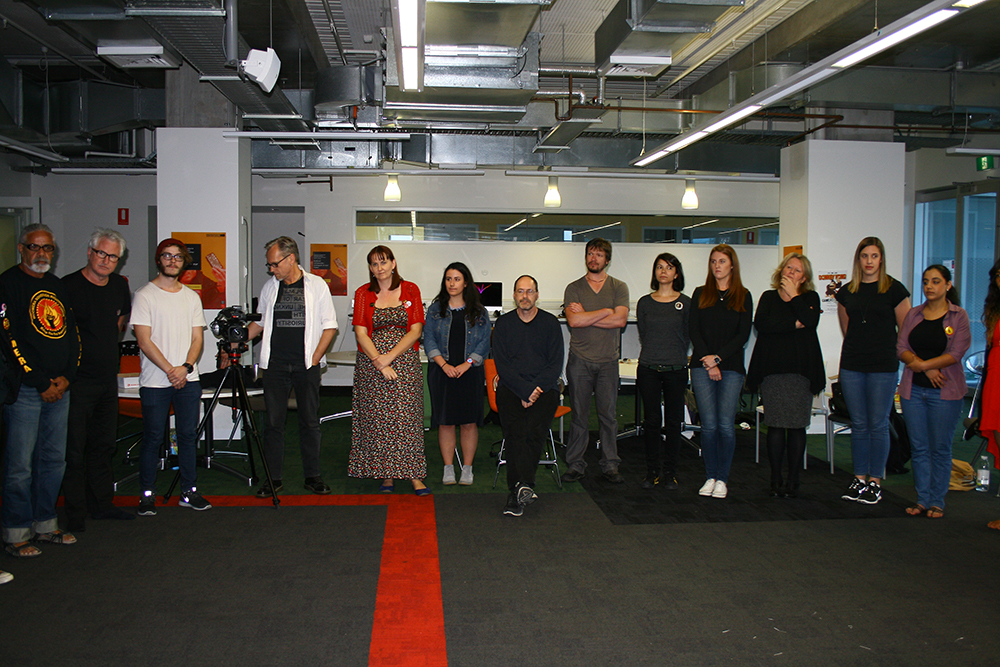
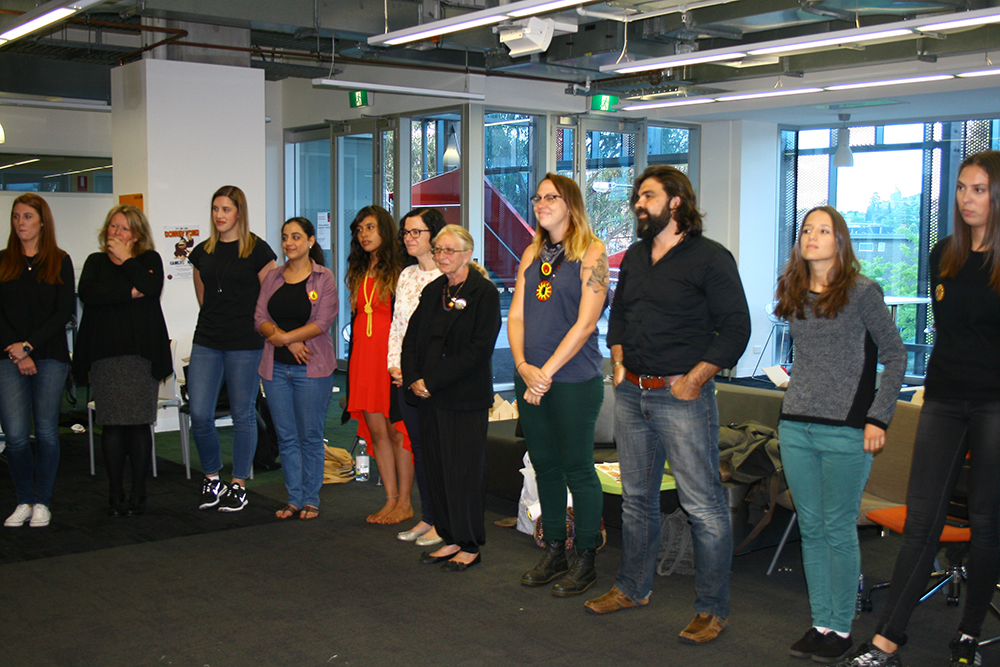
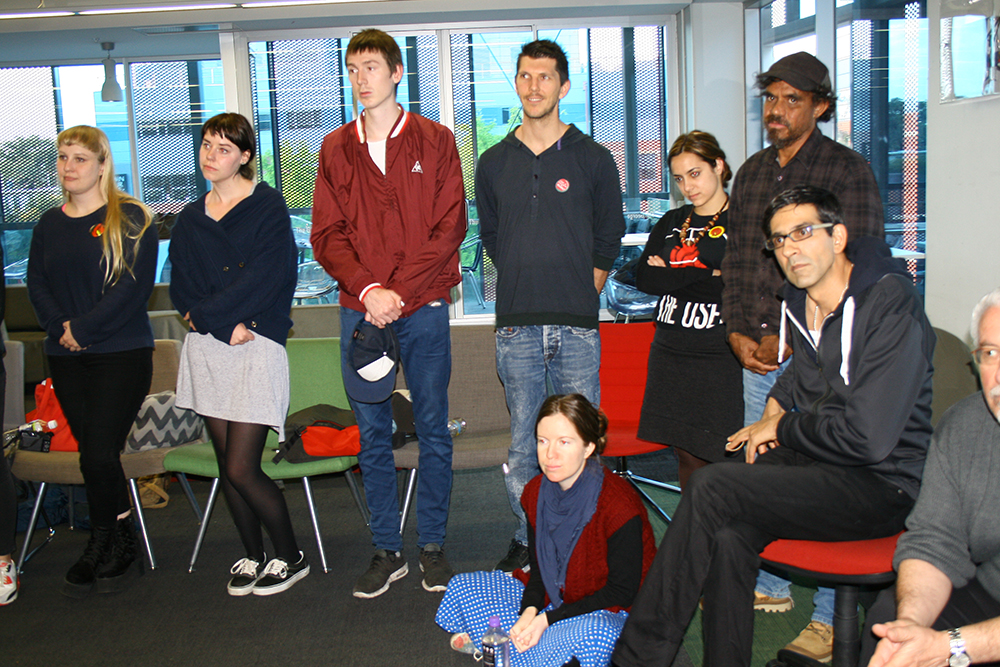
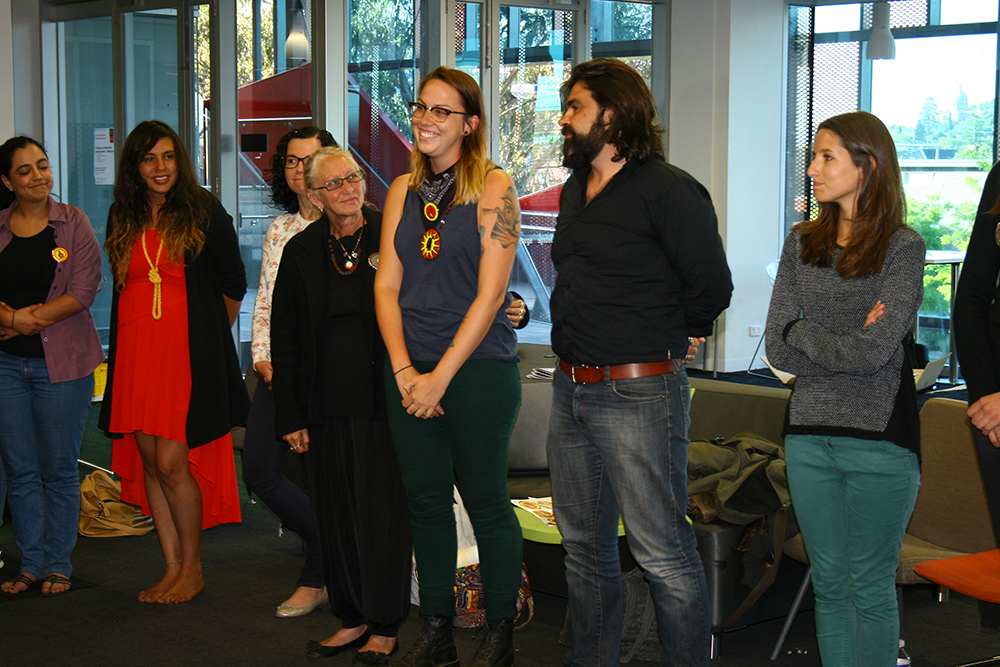
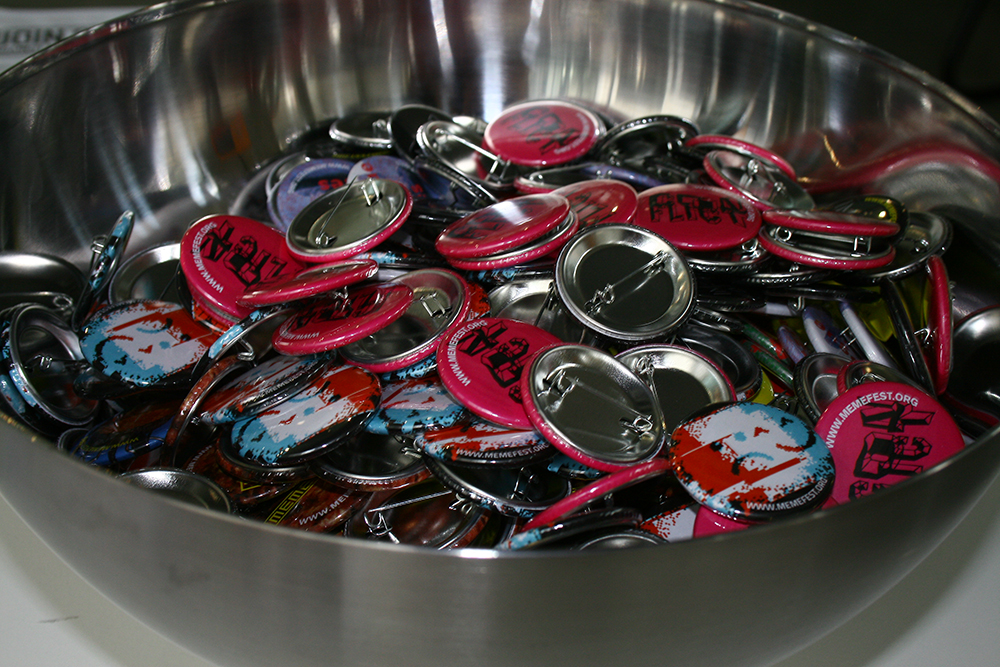
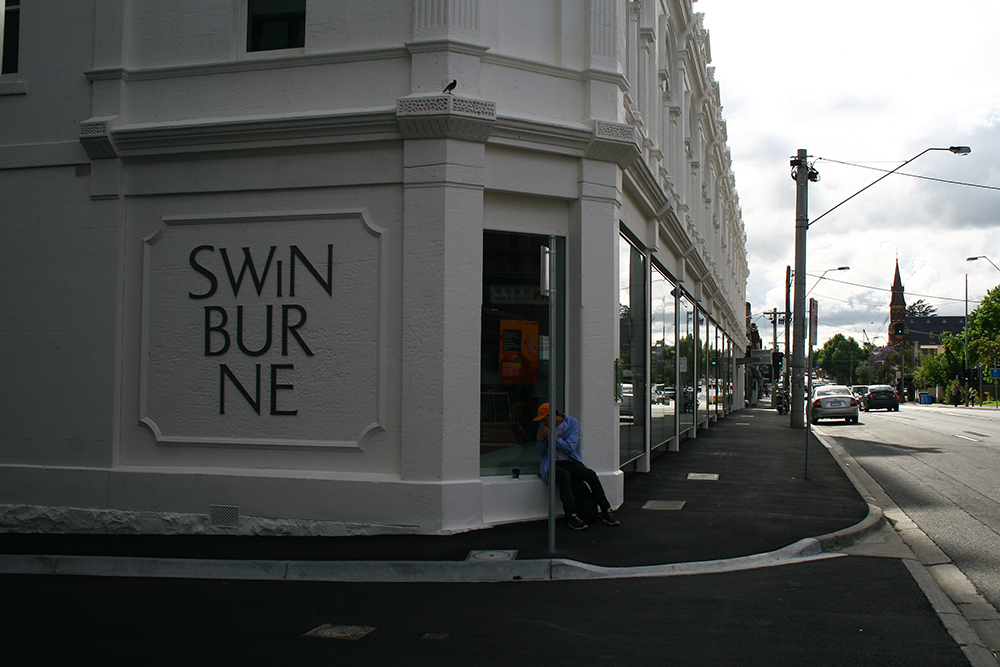
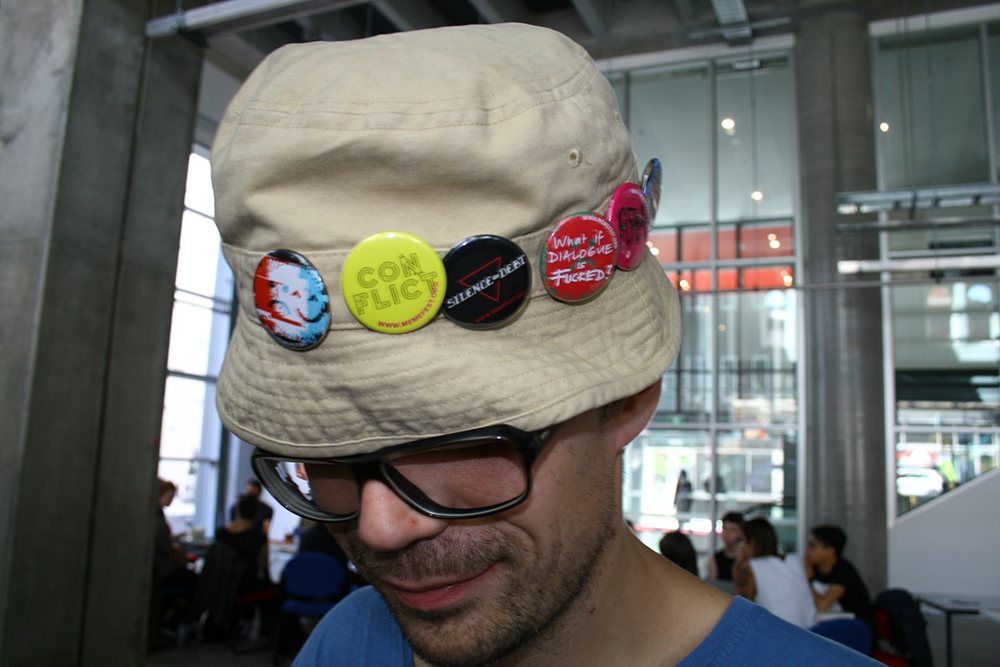



Comments
8 years, 4 months

To comment, please create a Memefest account, it will take you only 2 minutes! Login here if you already have one.